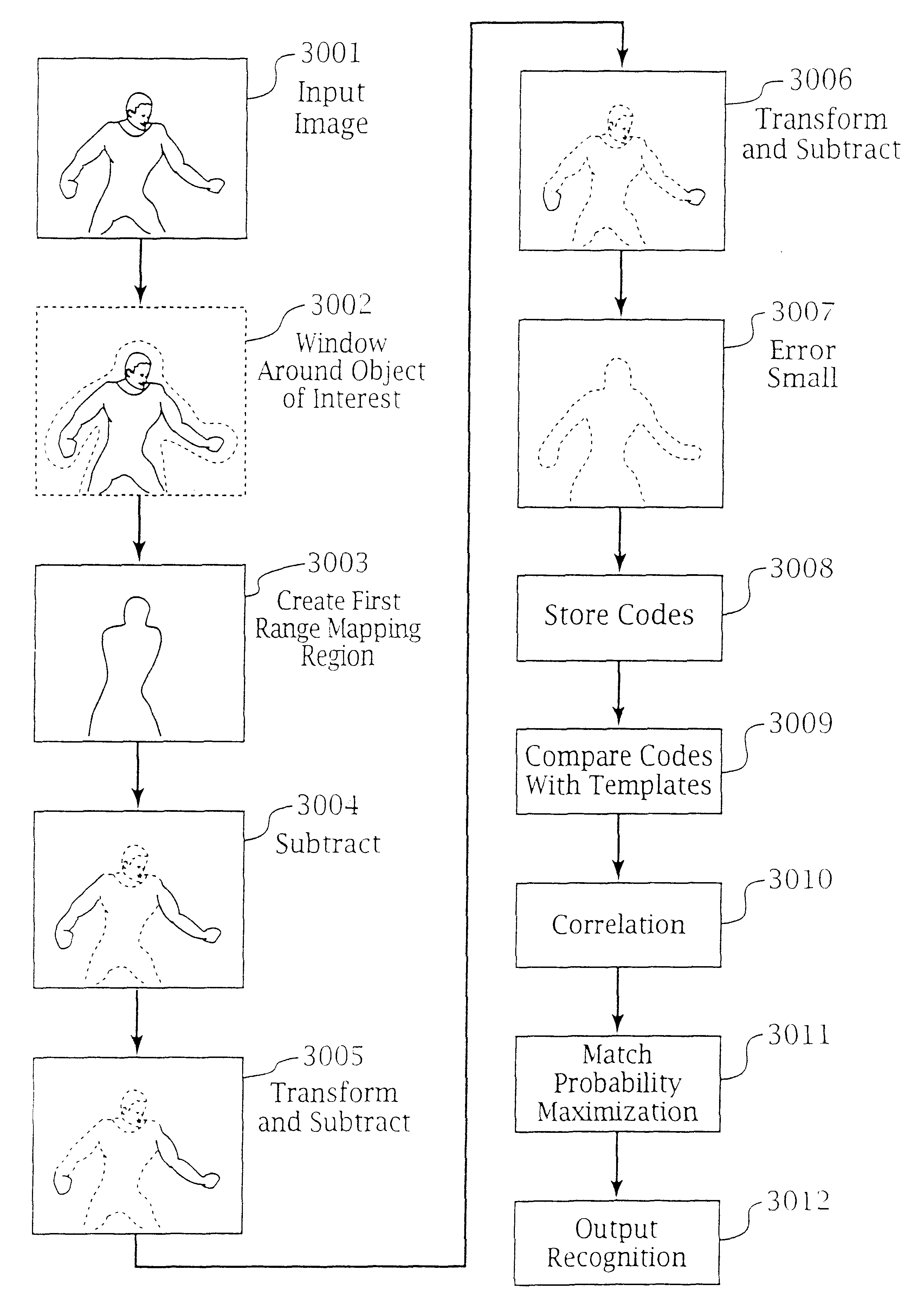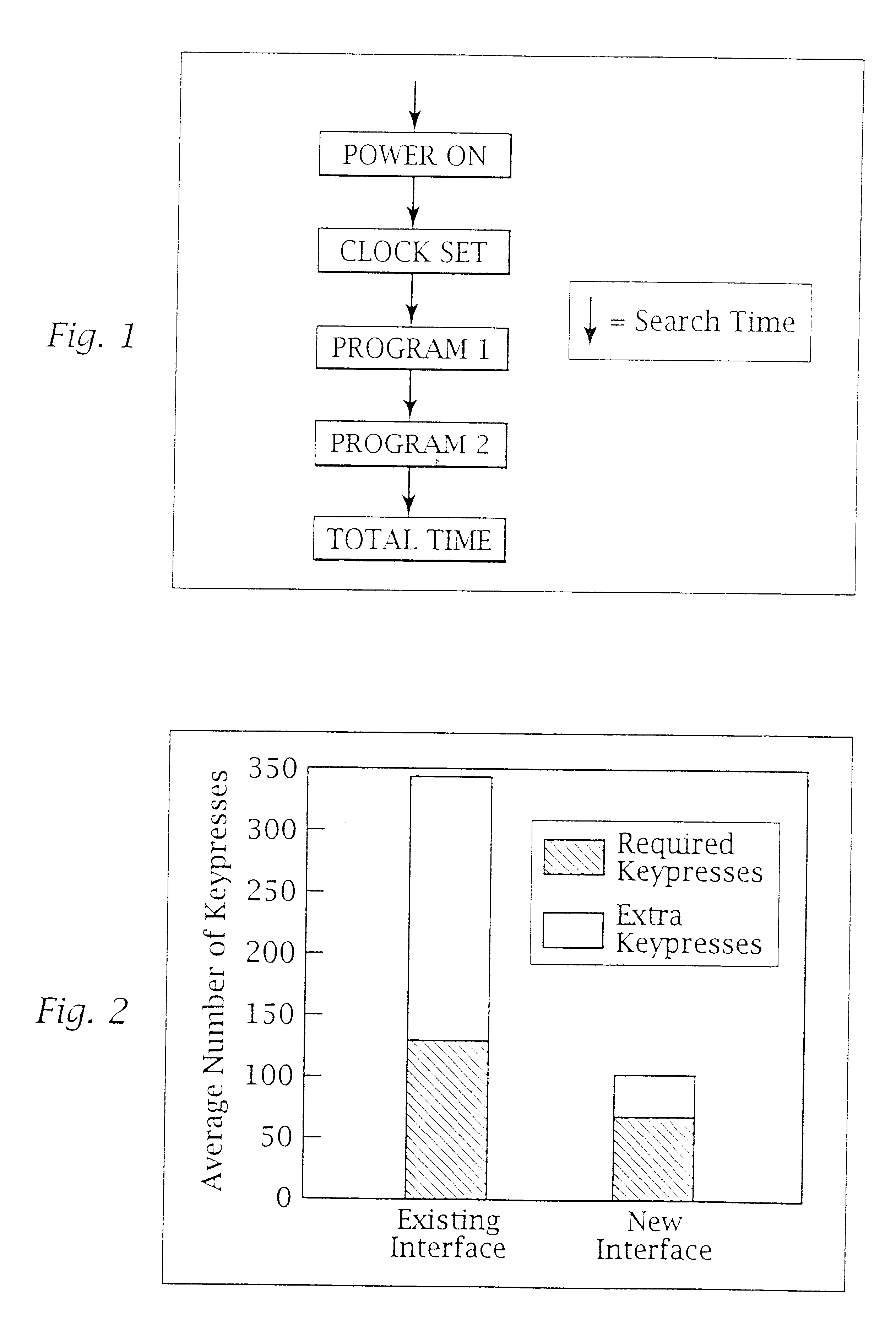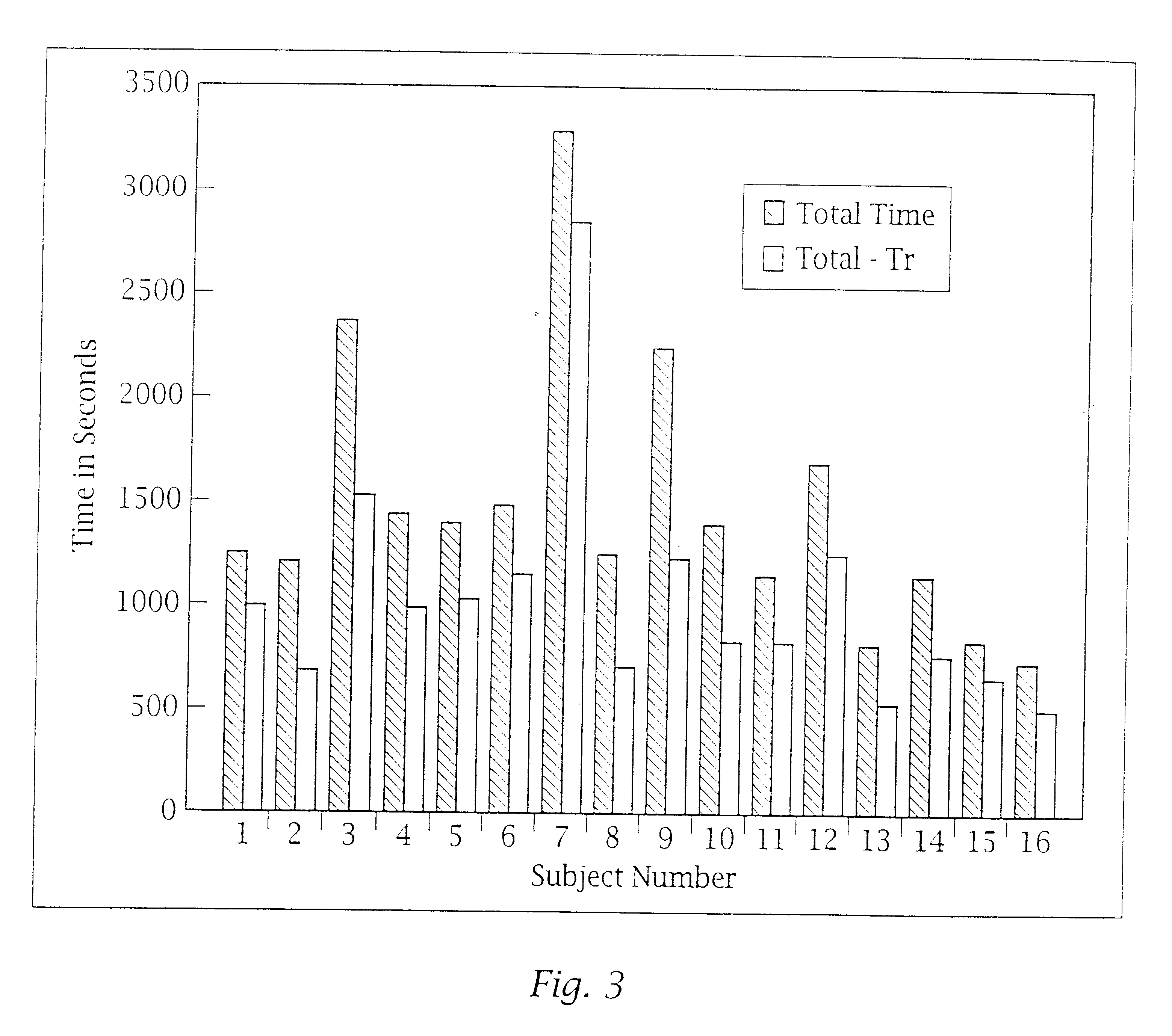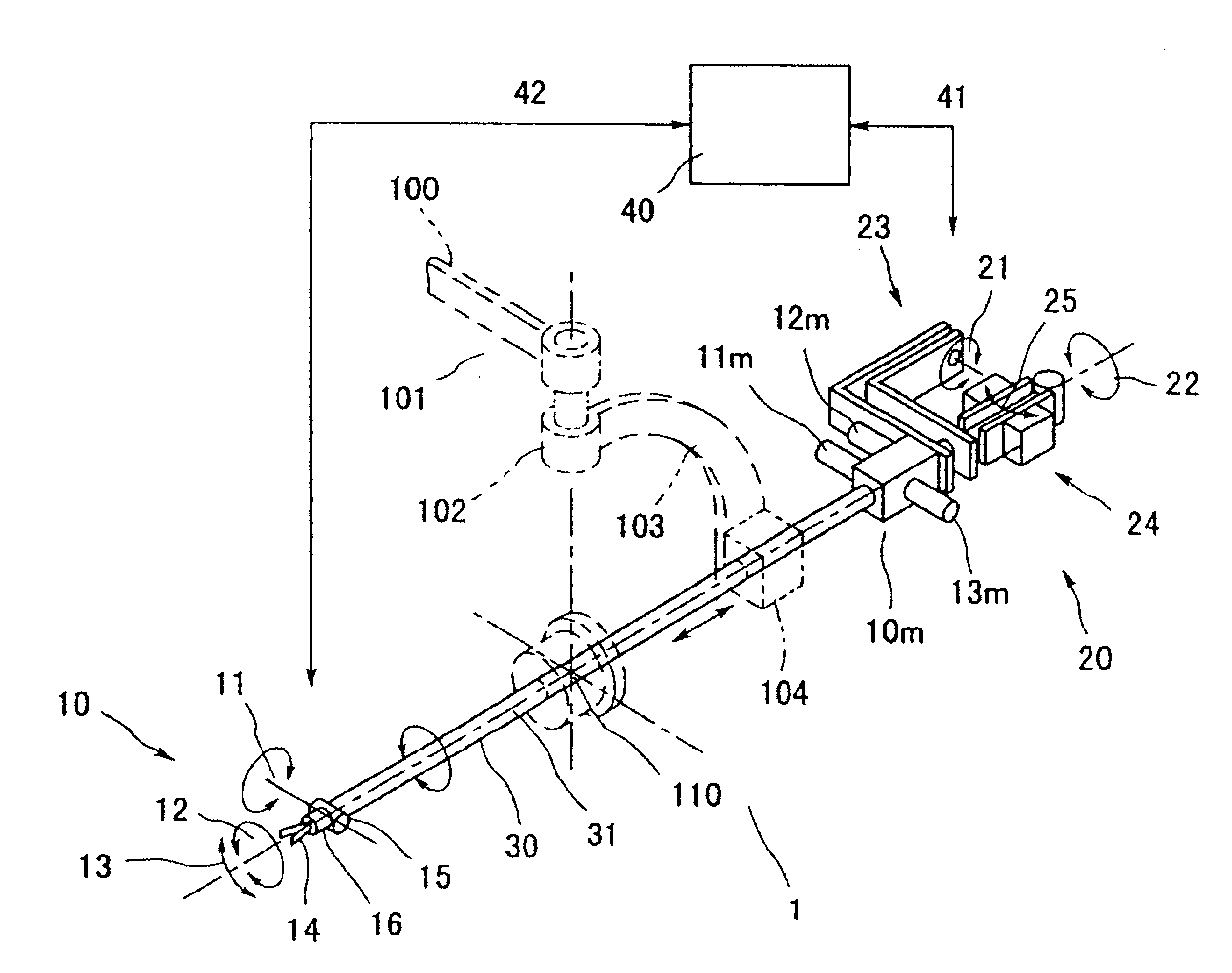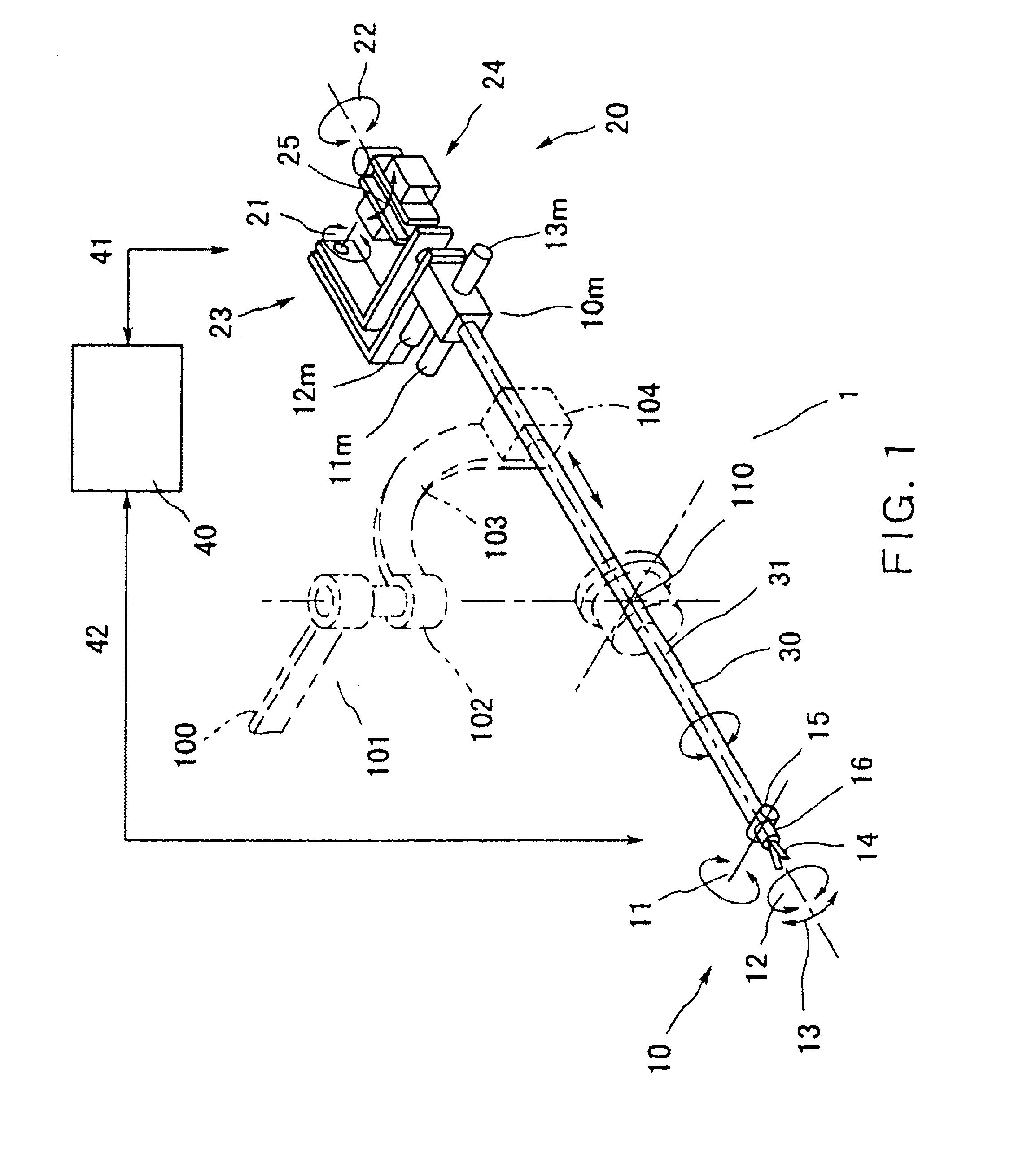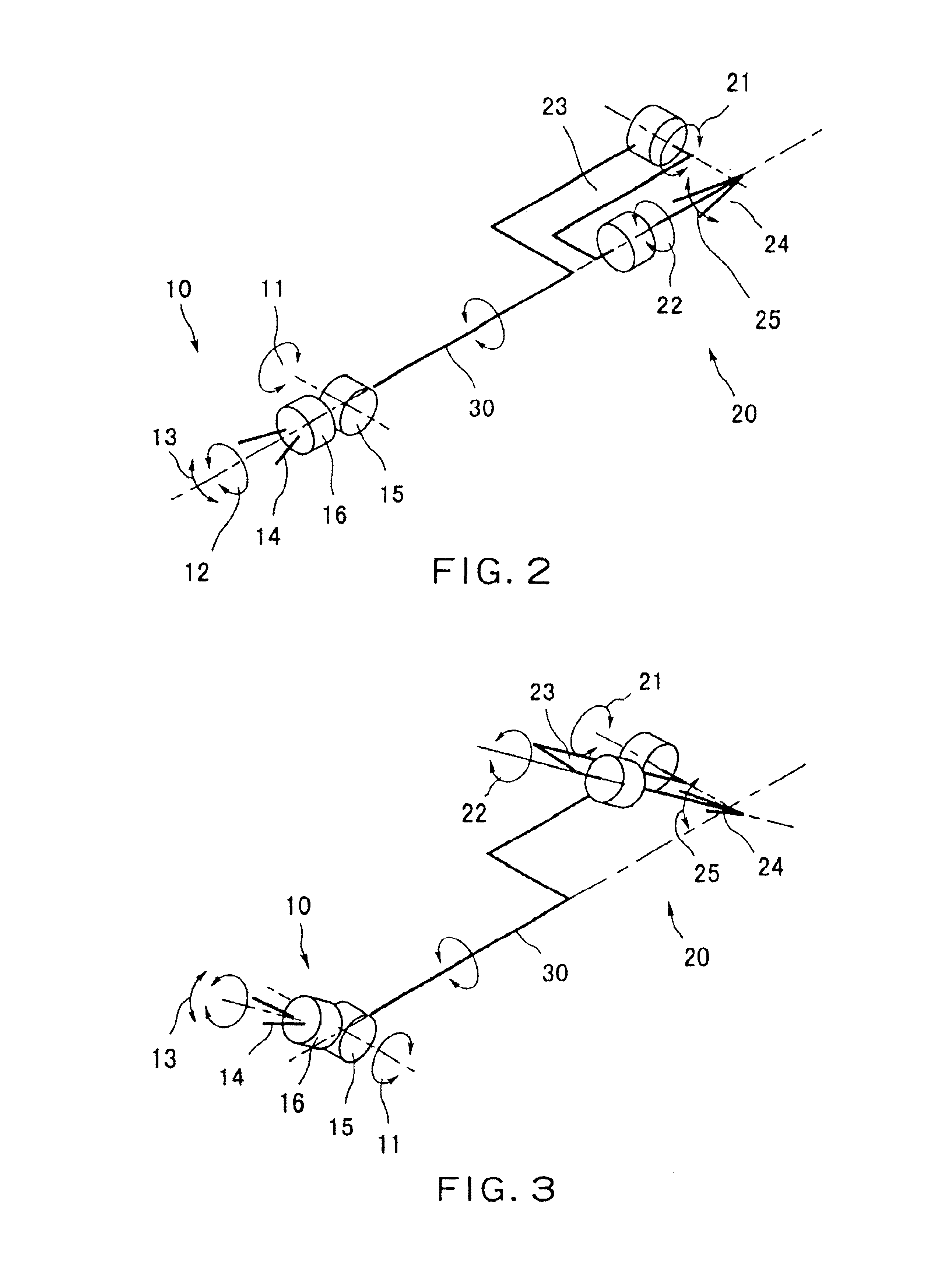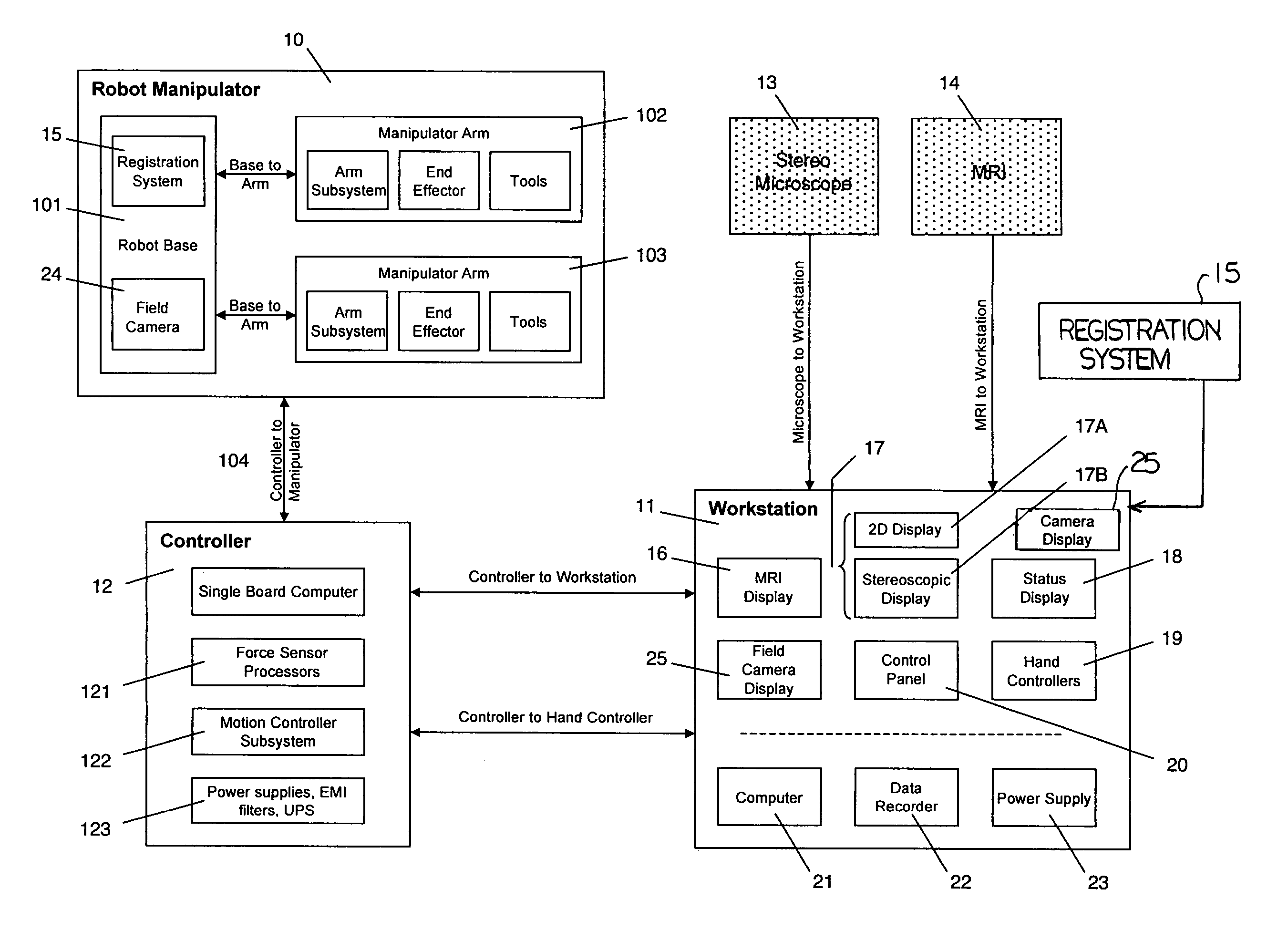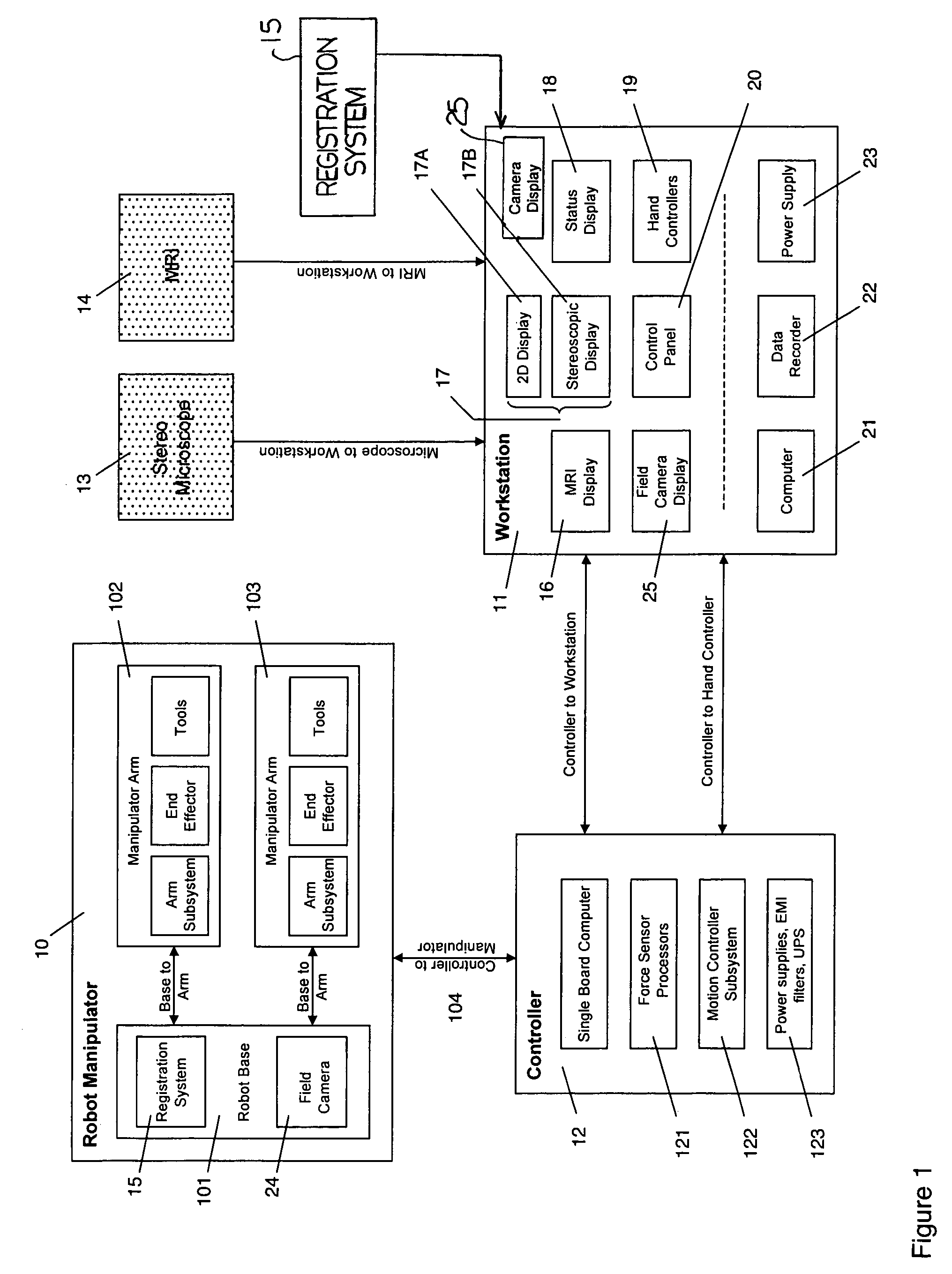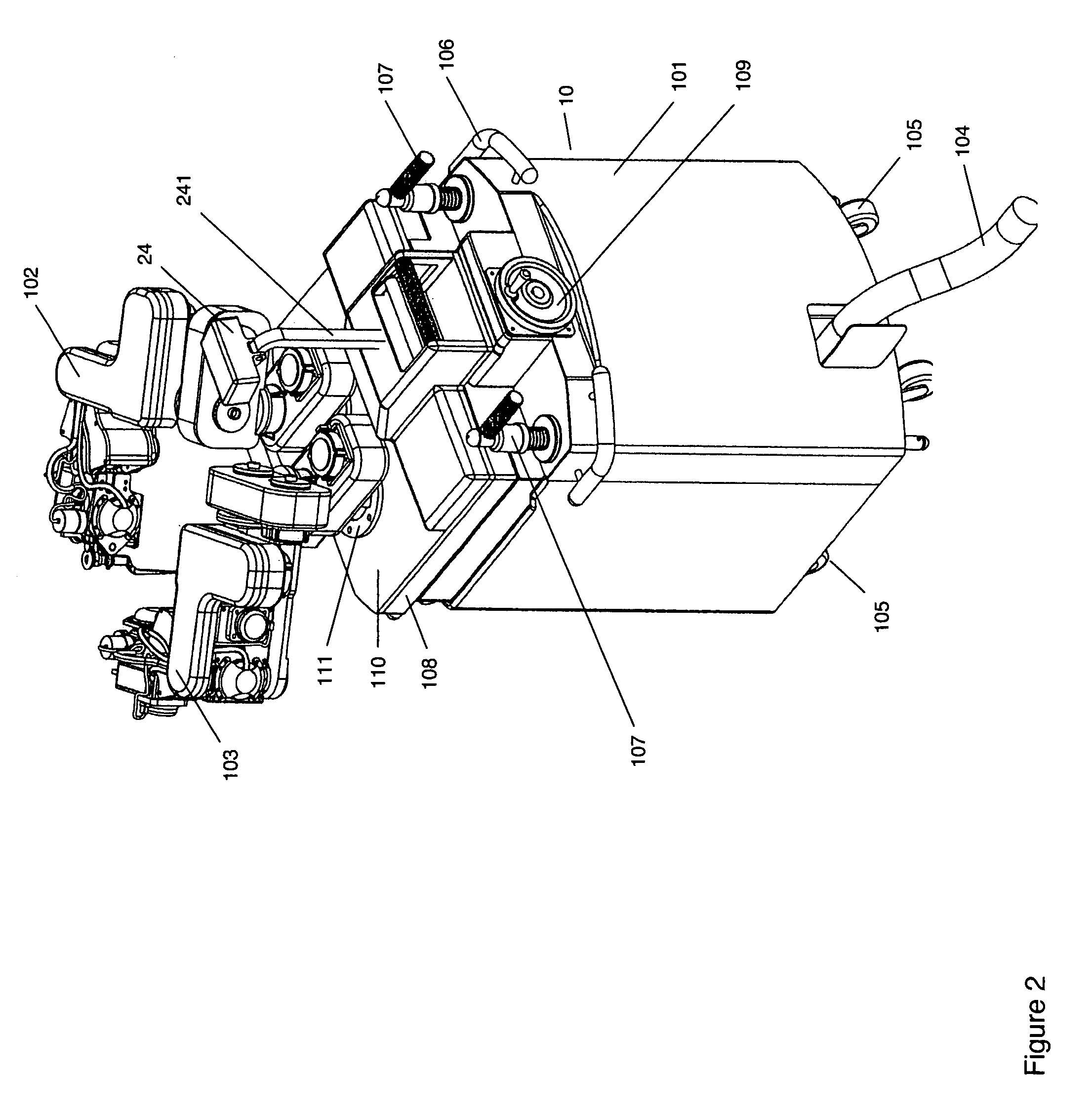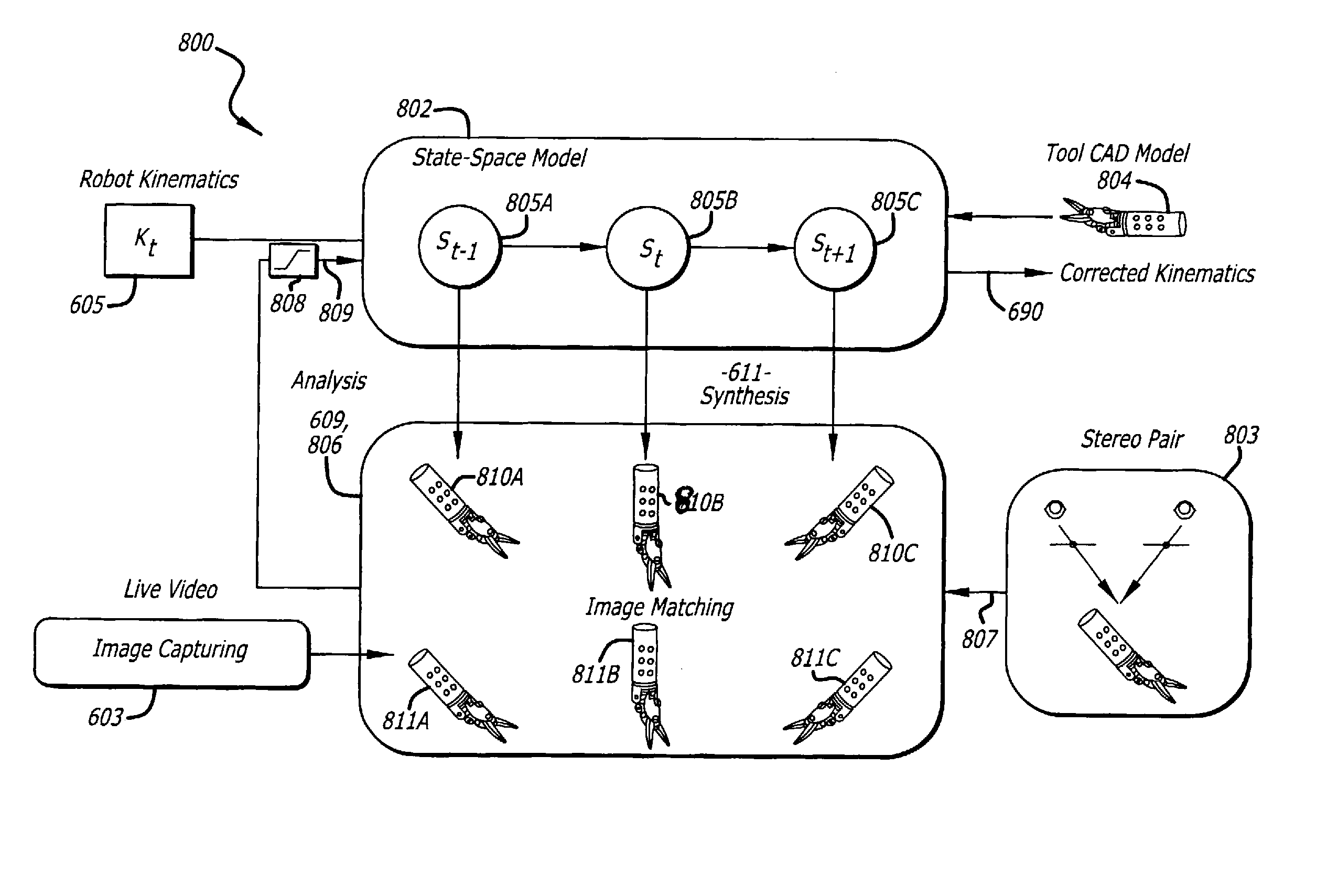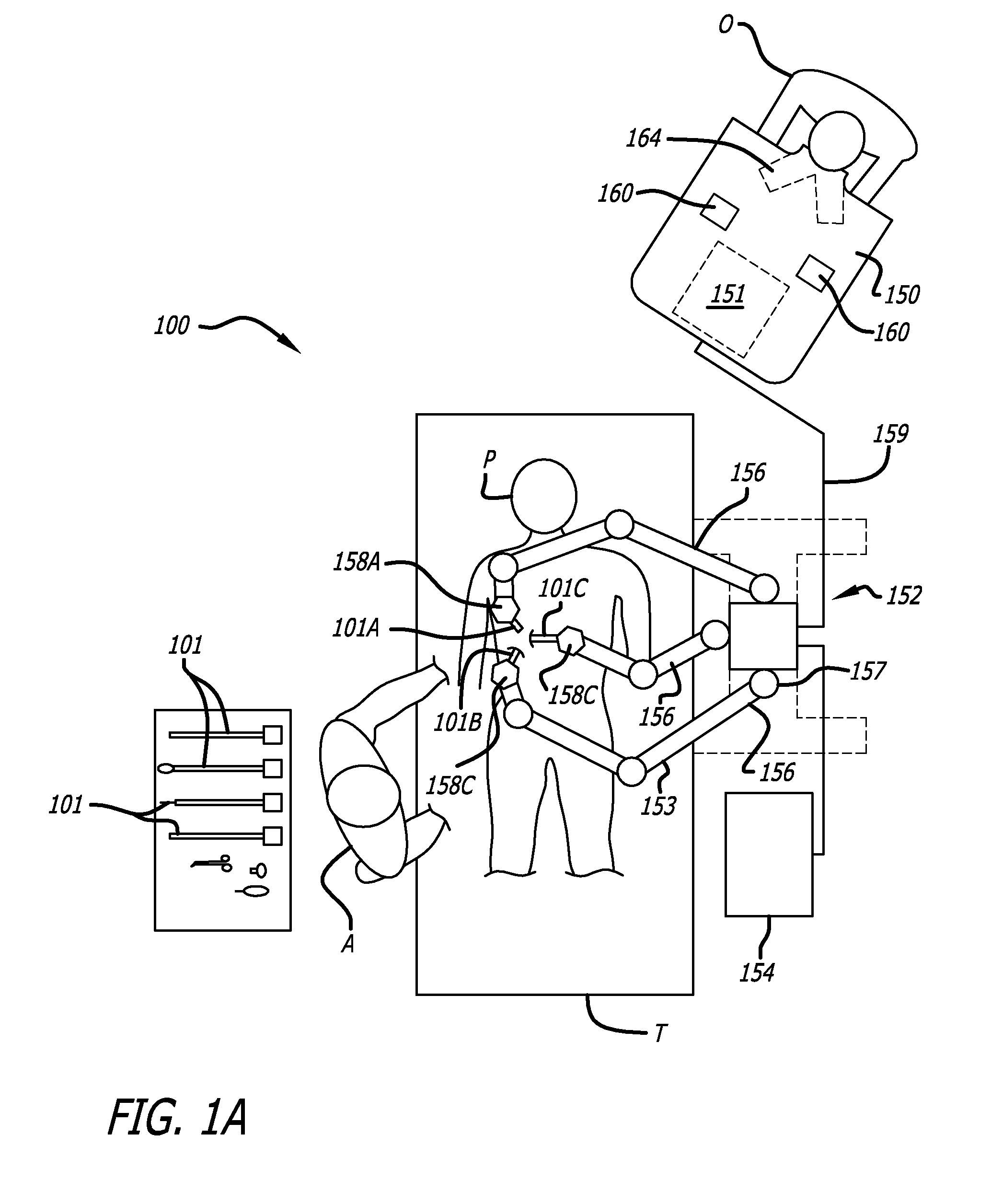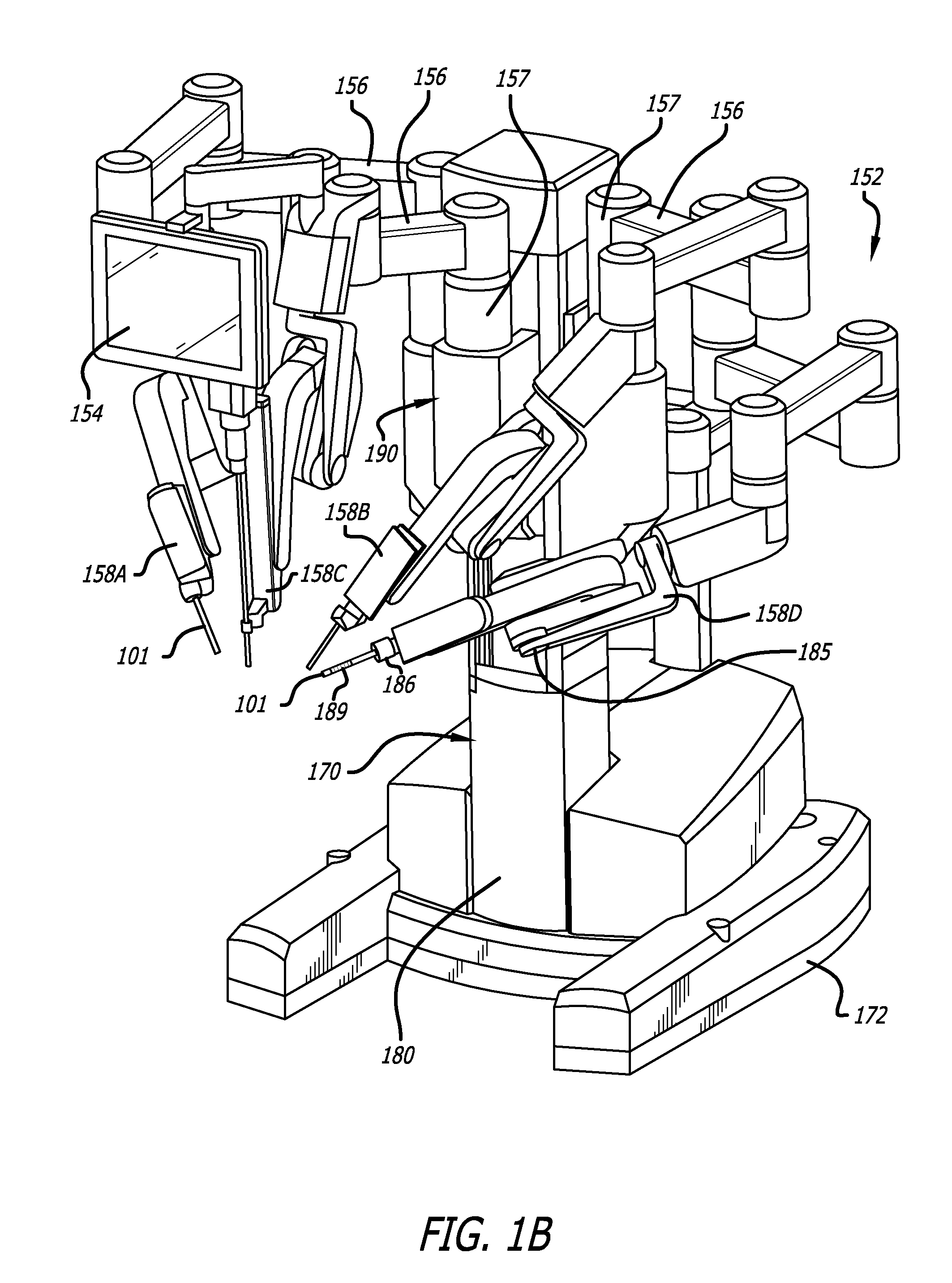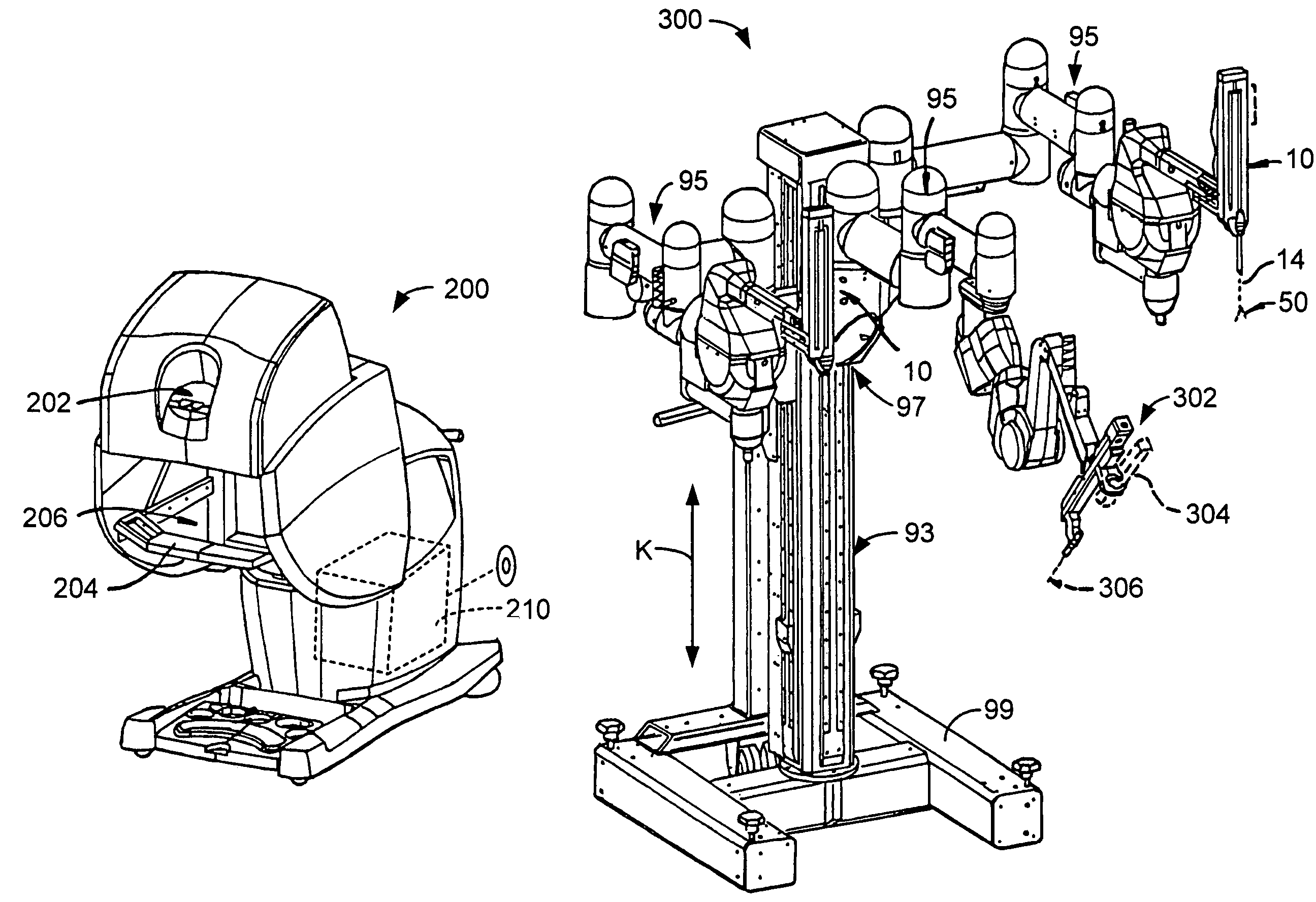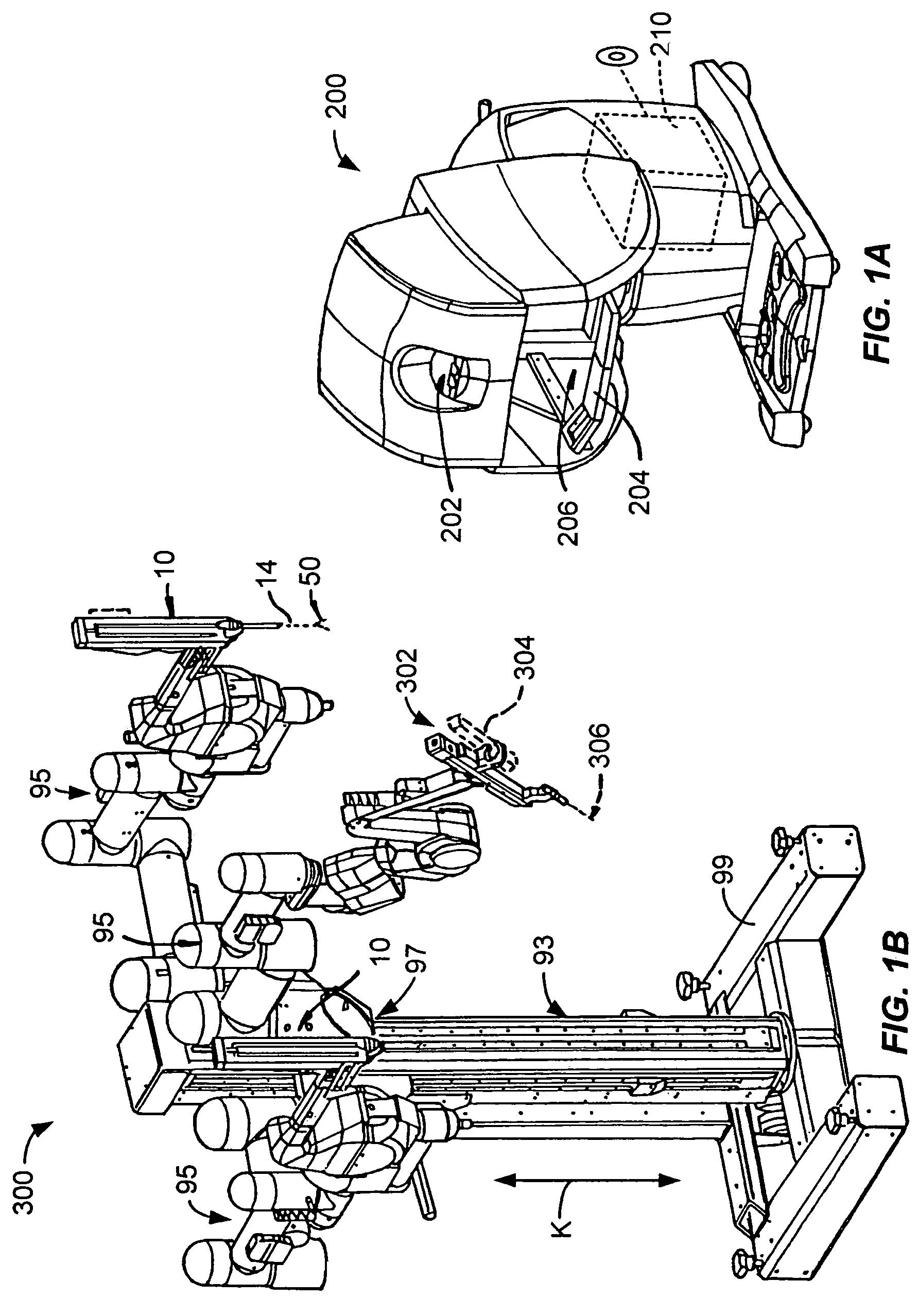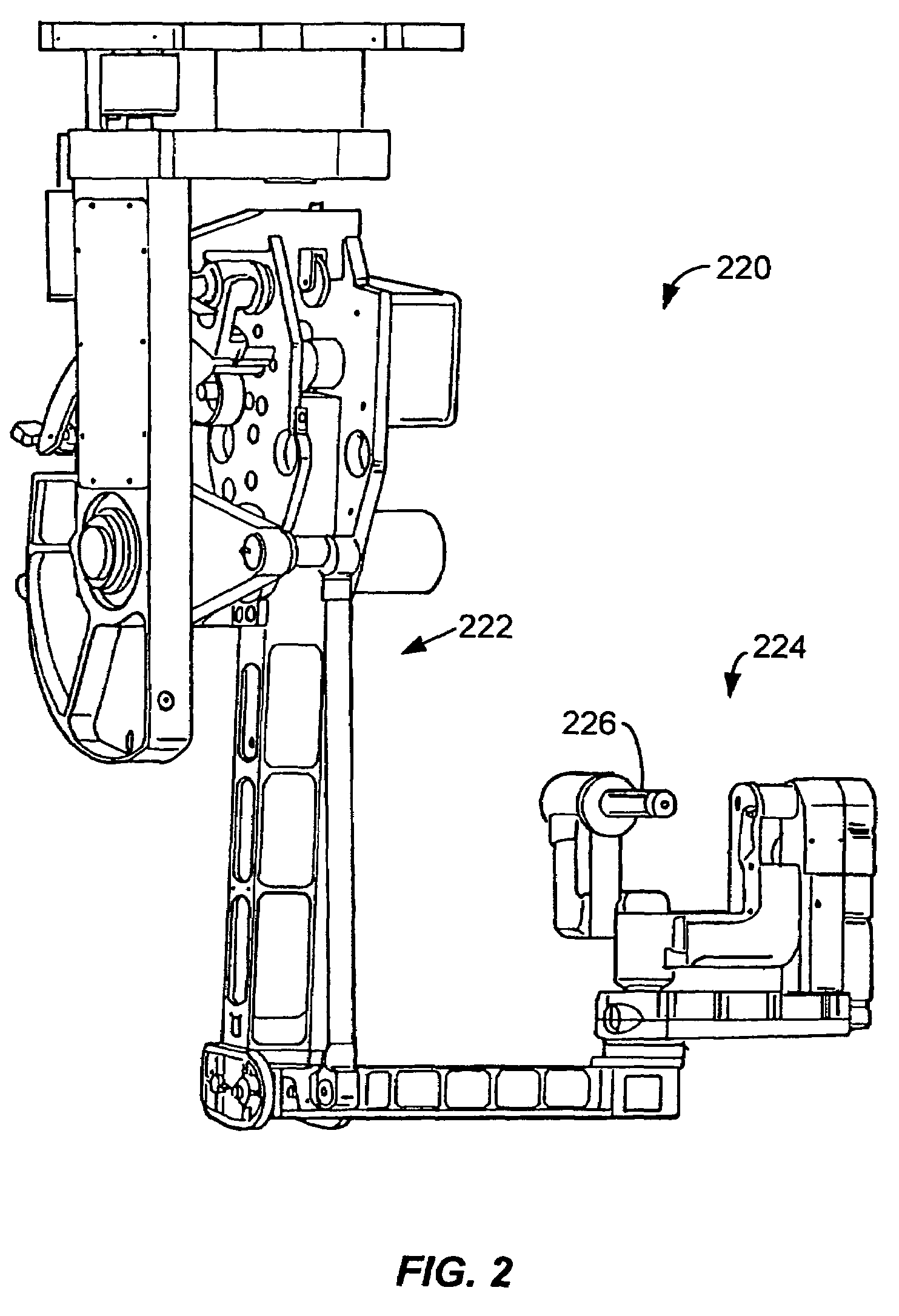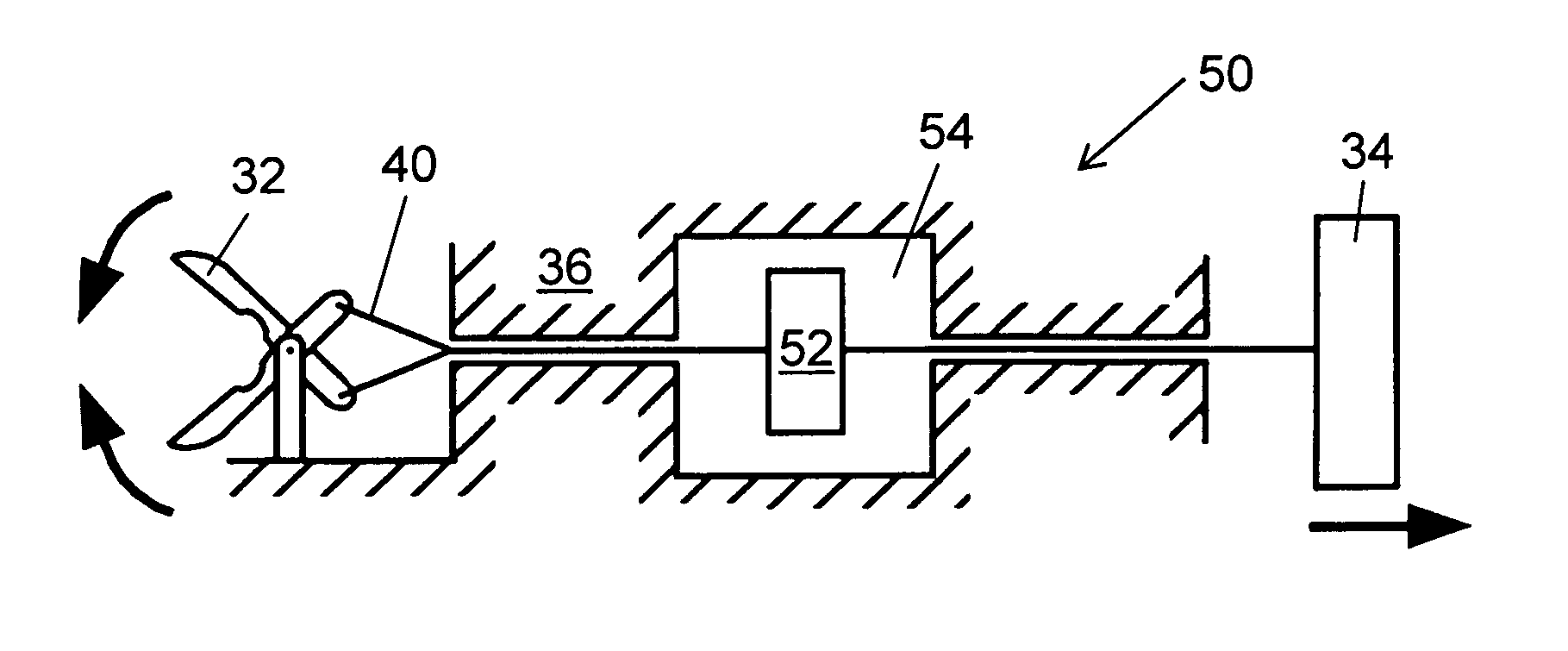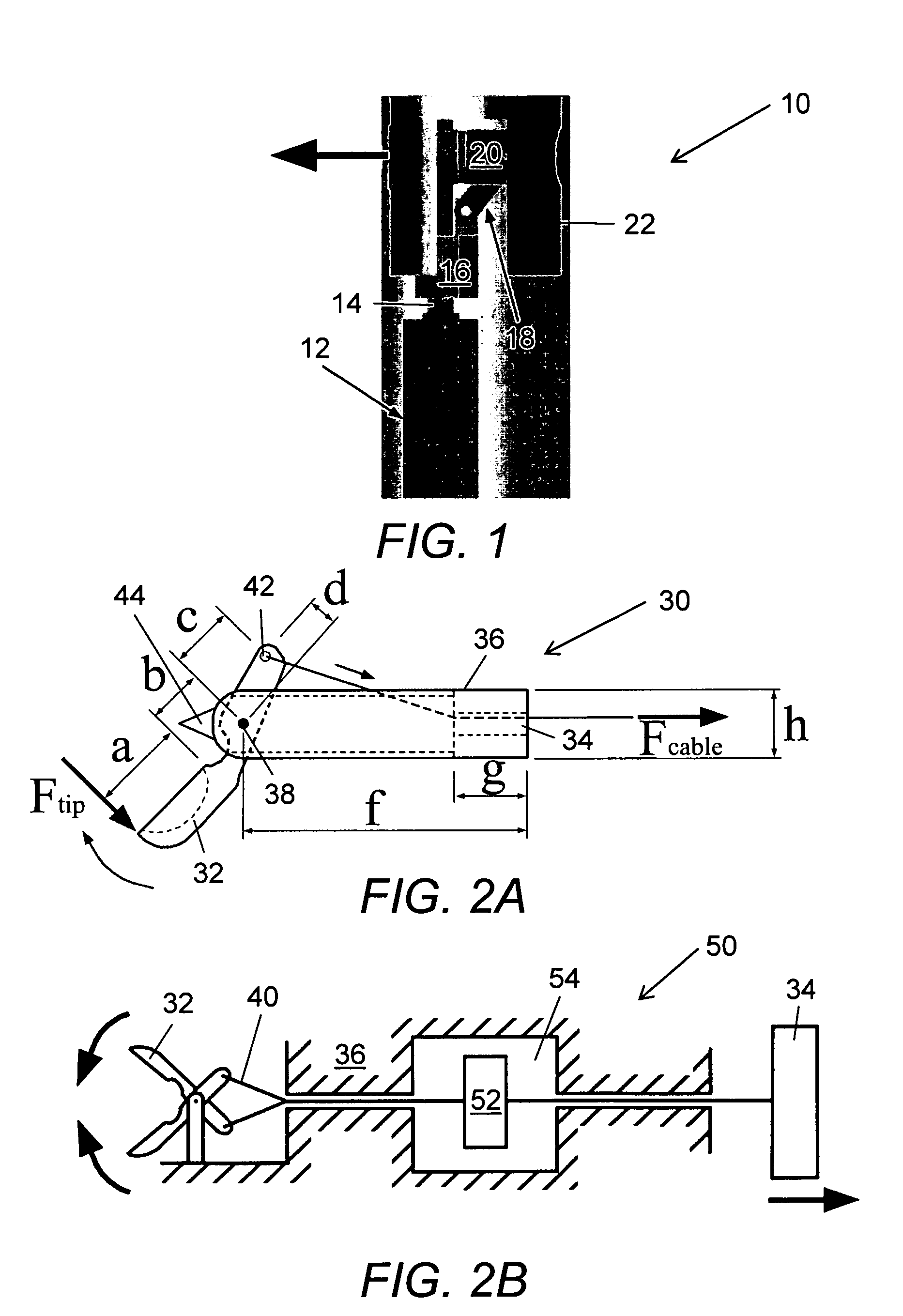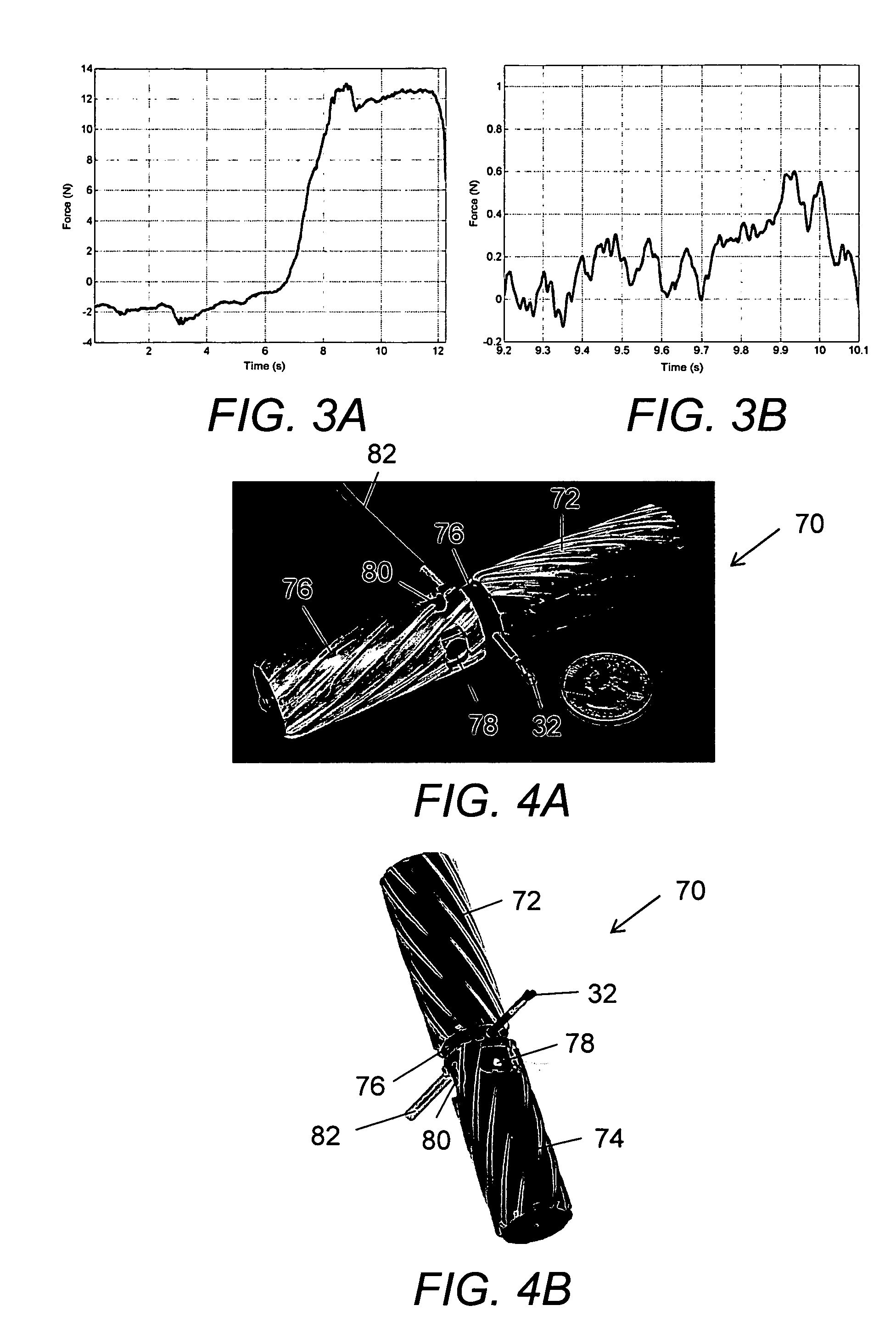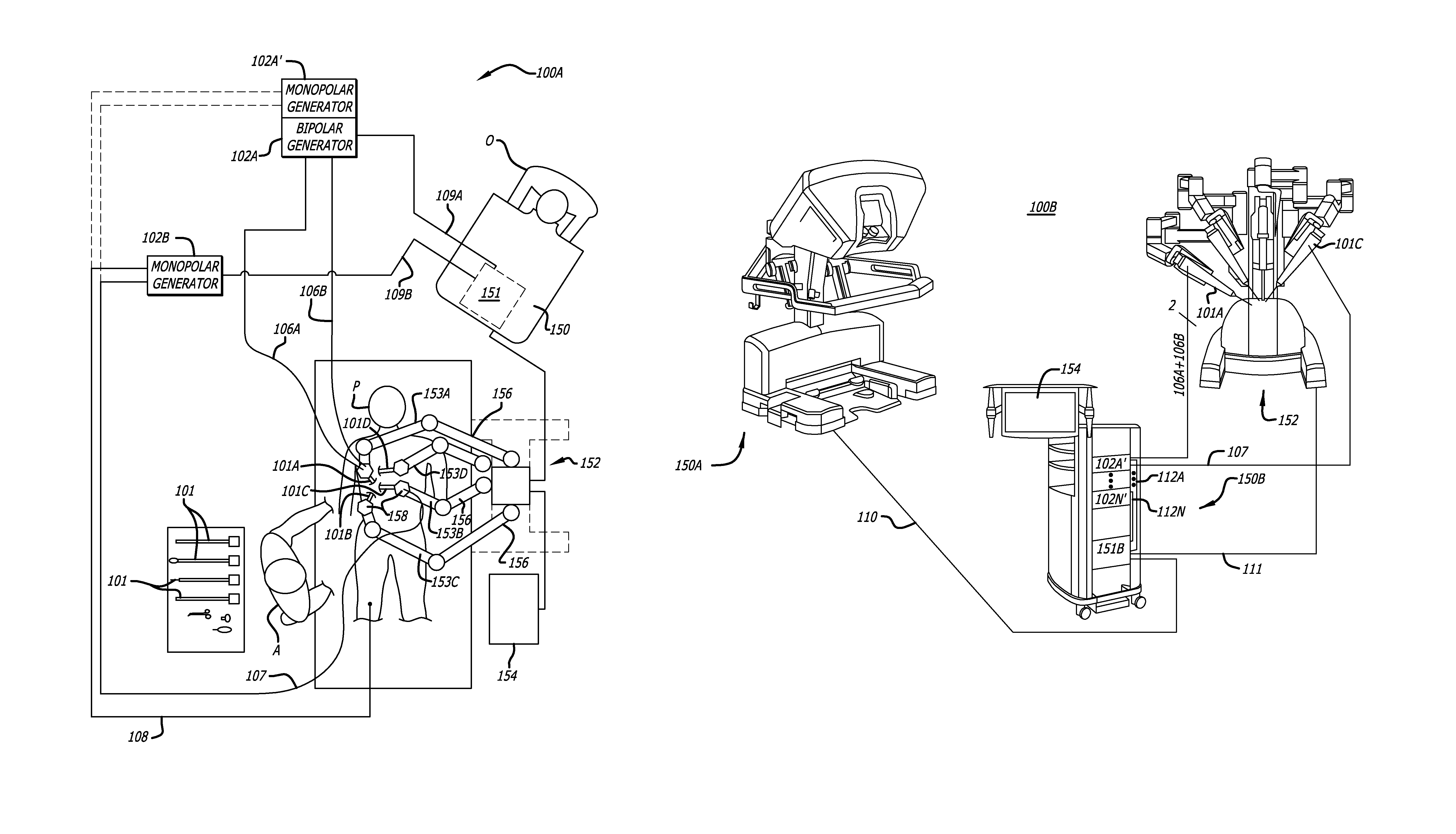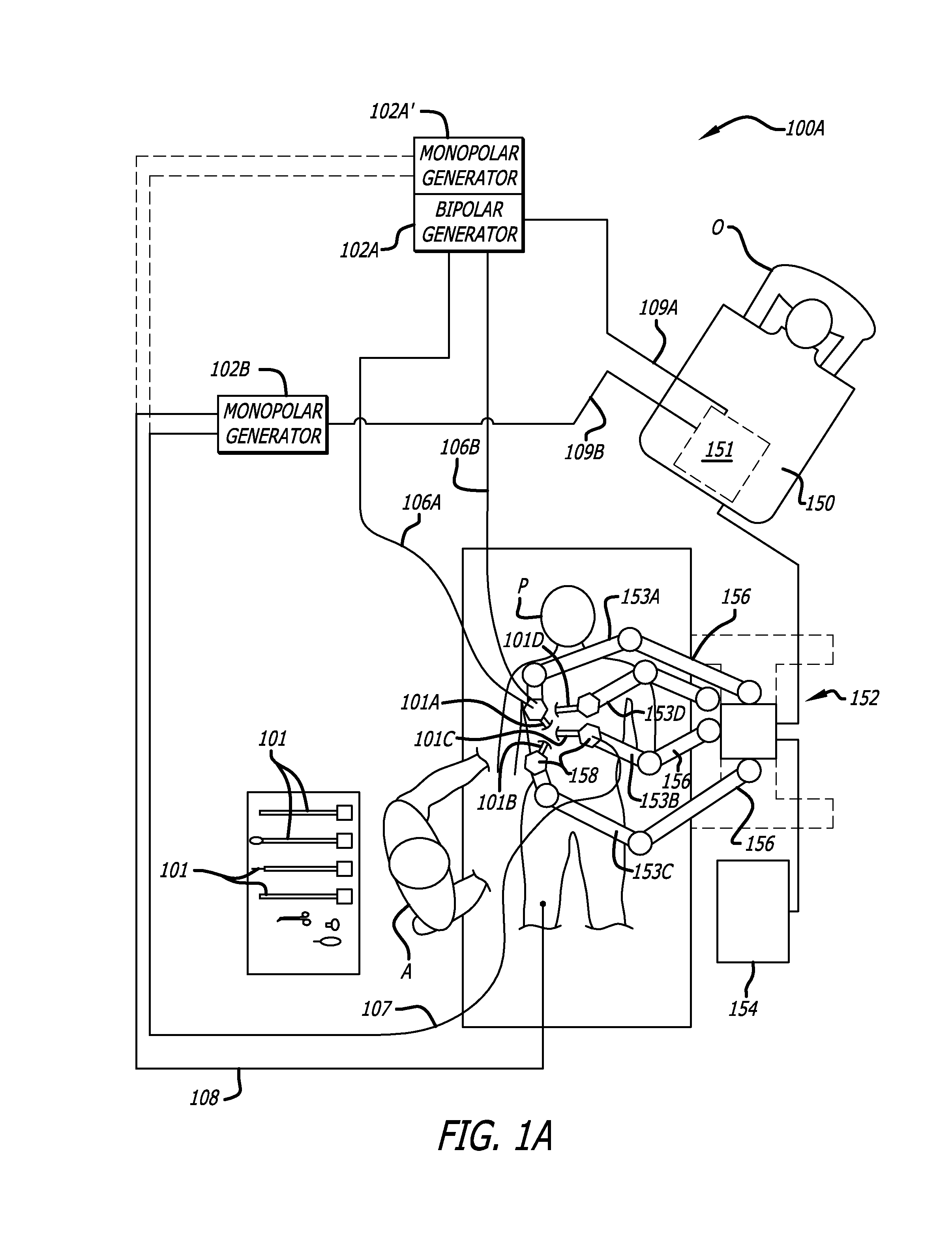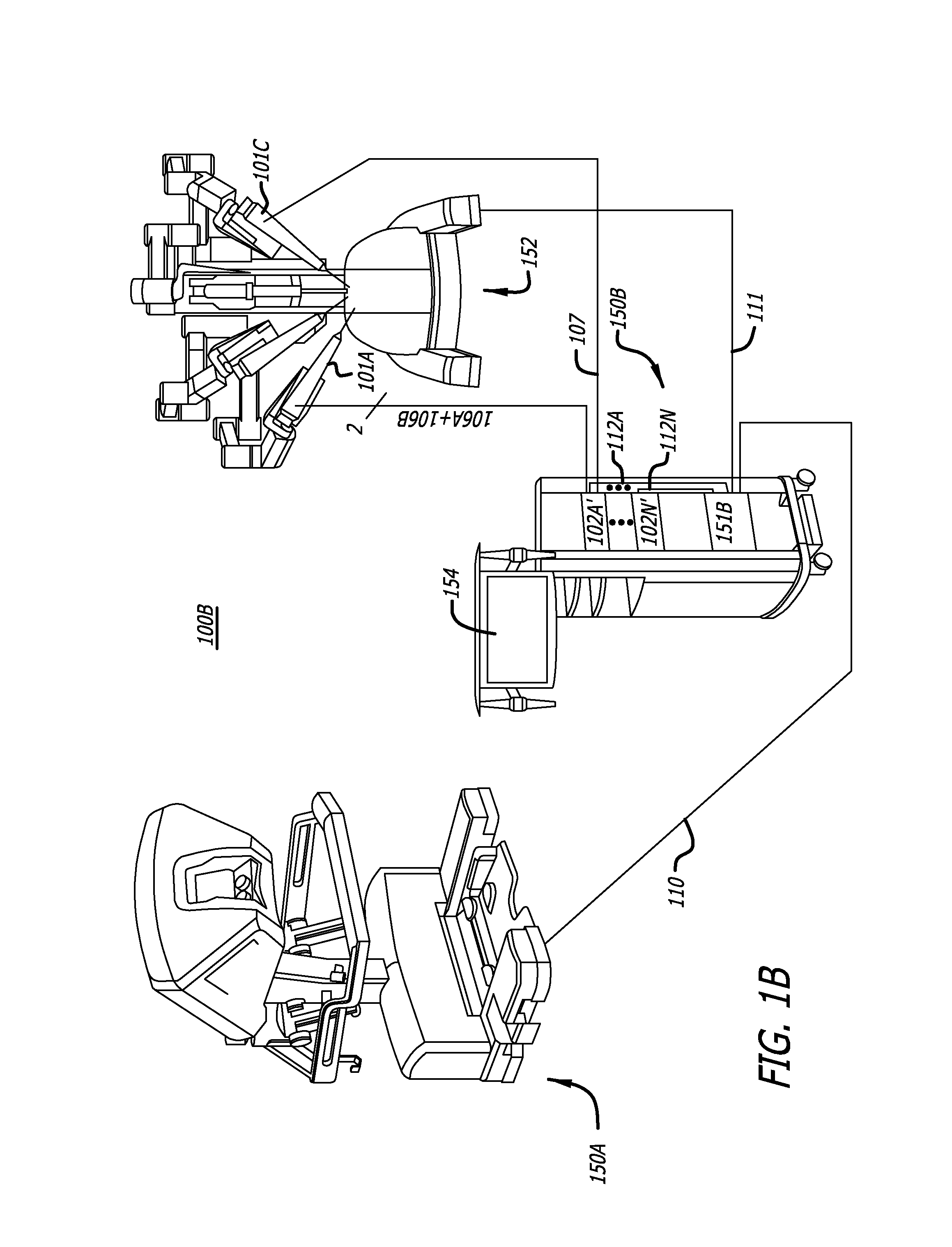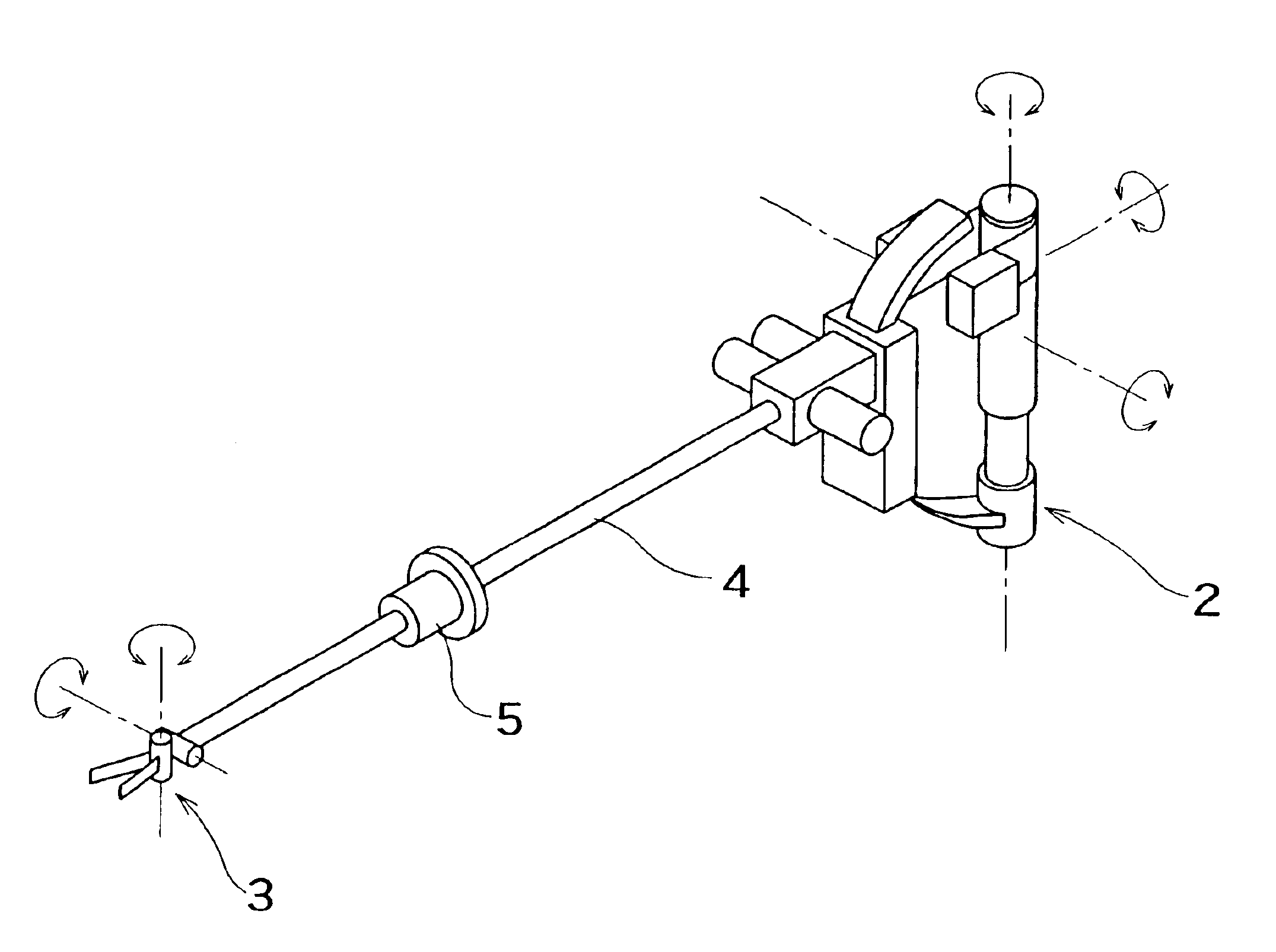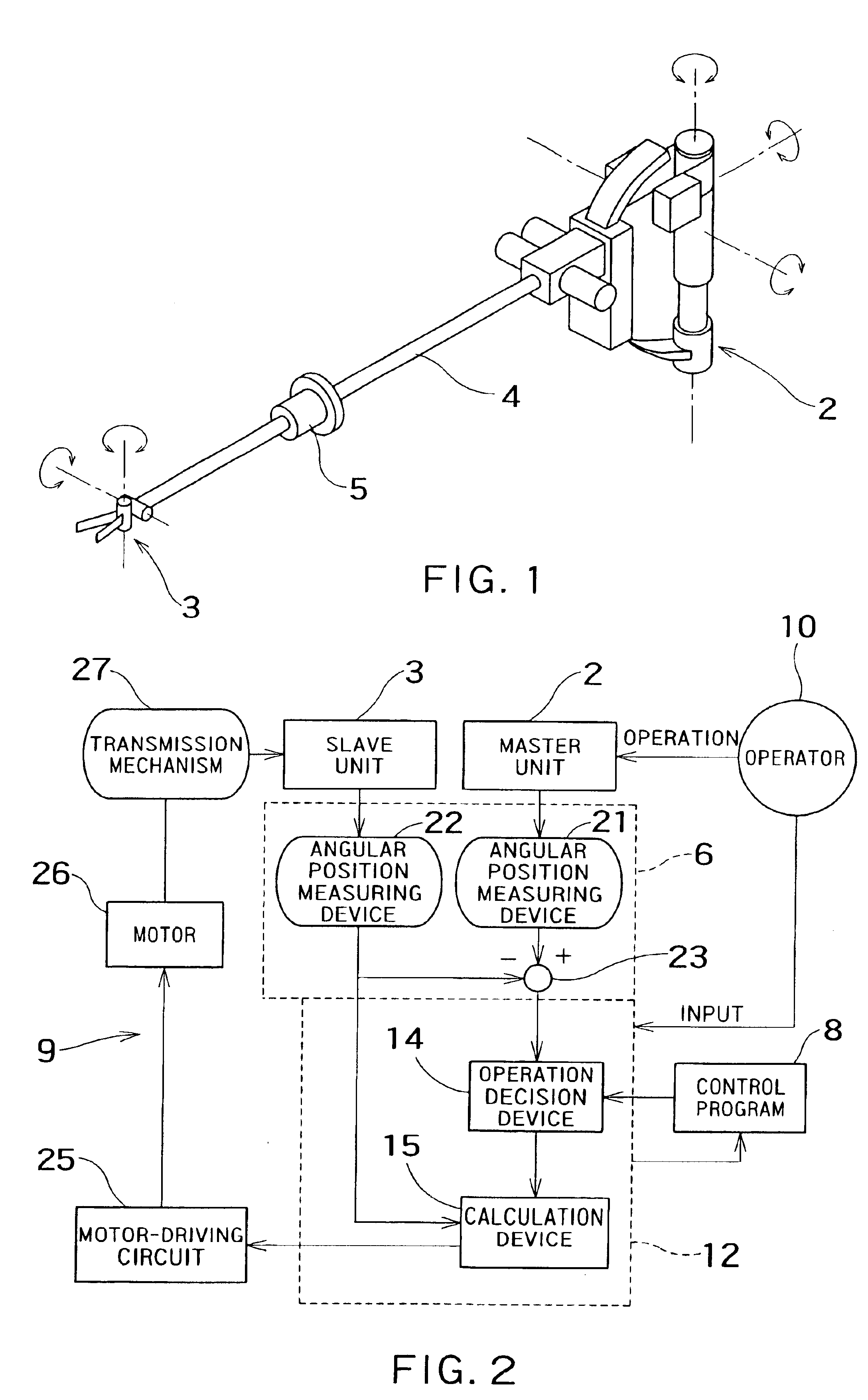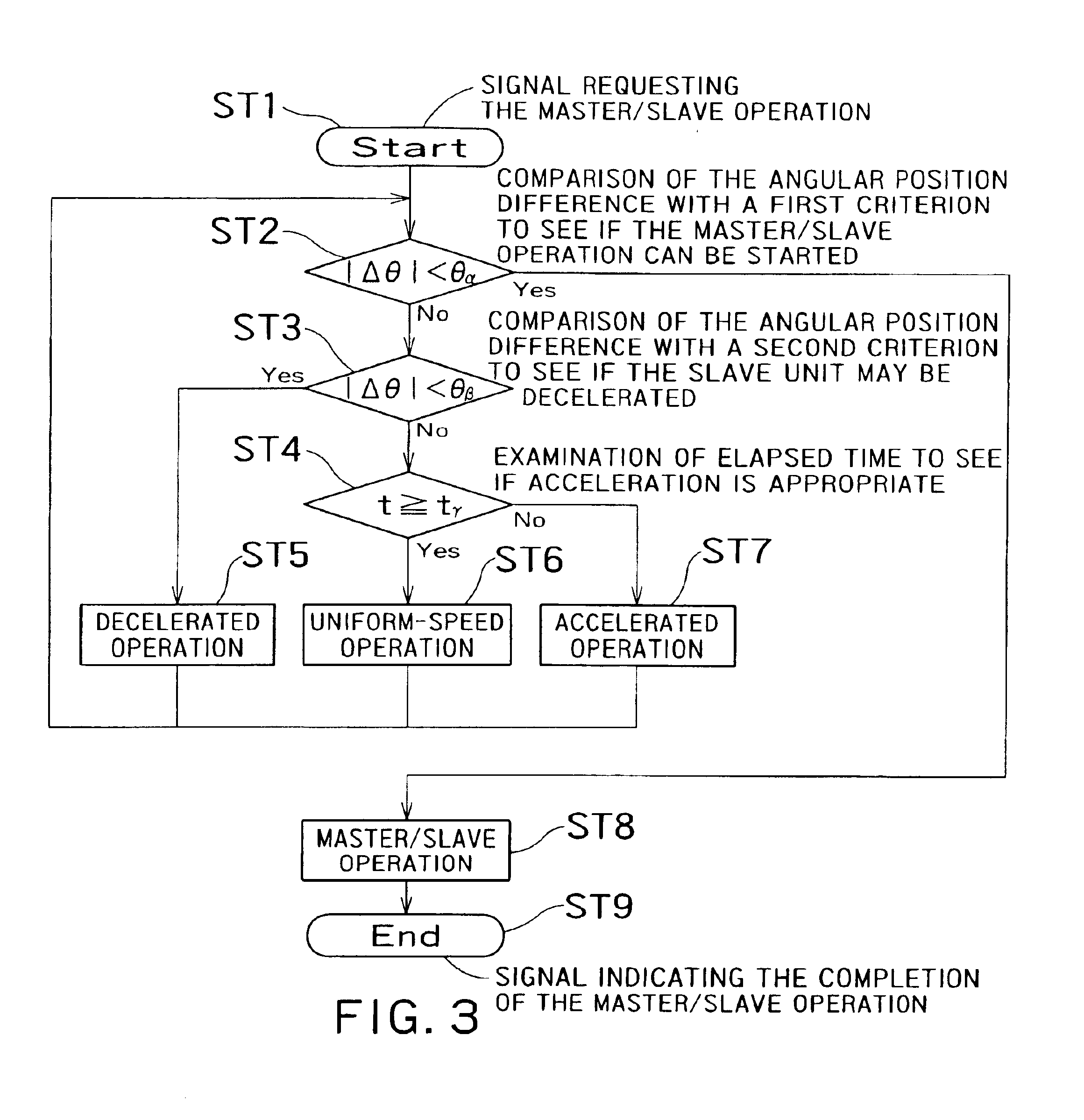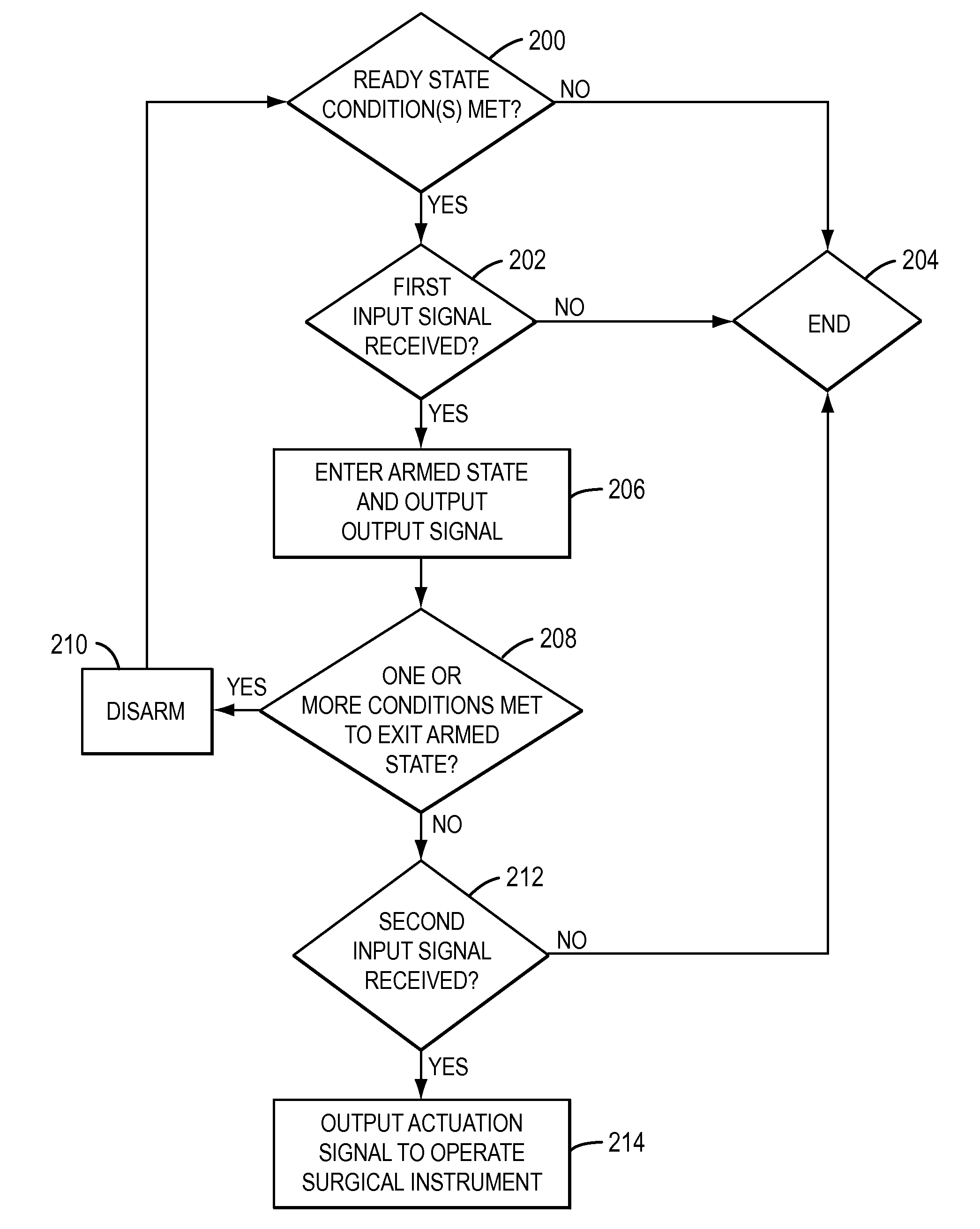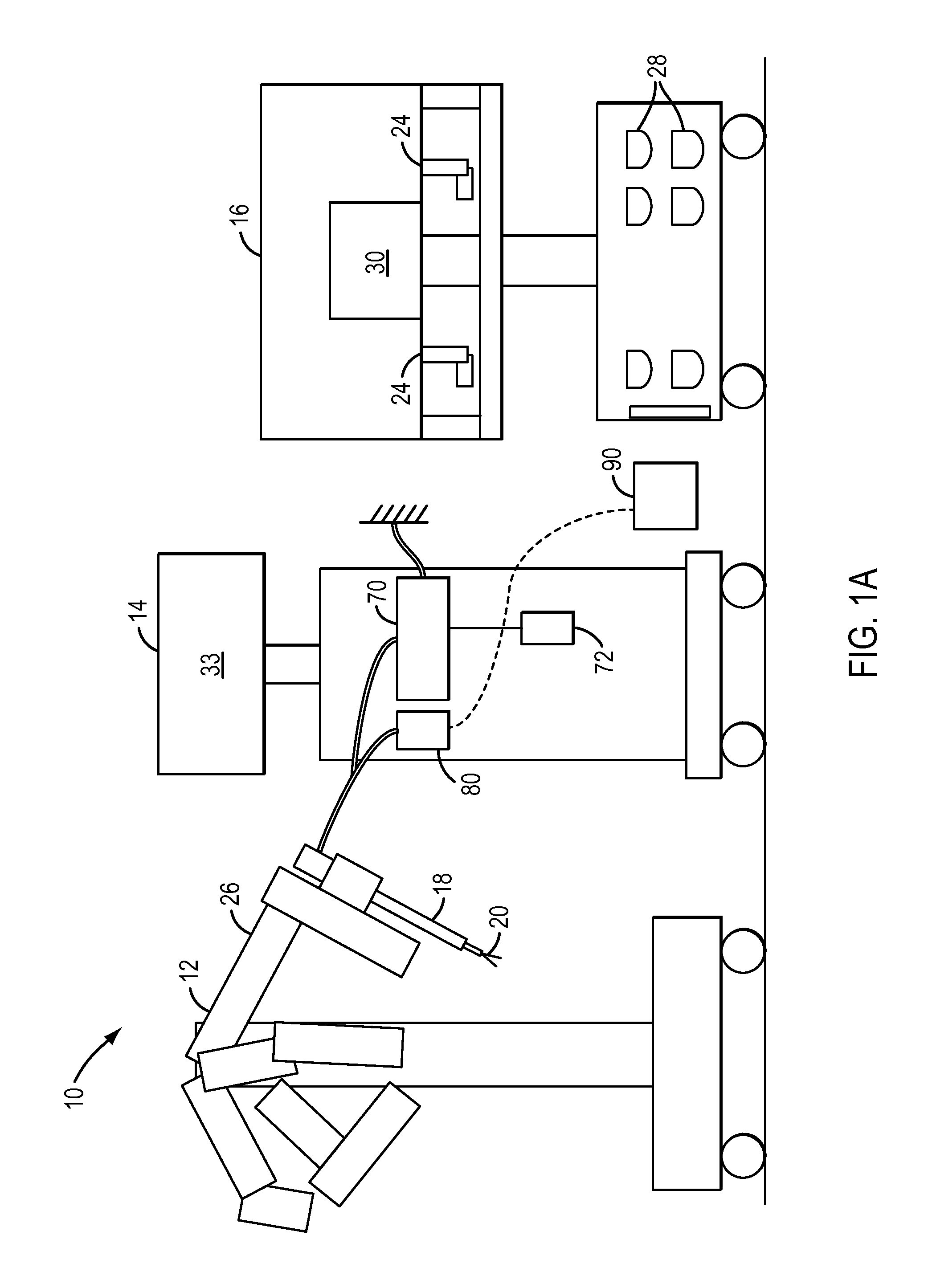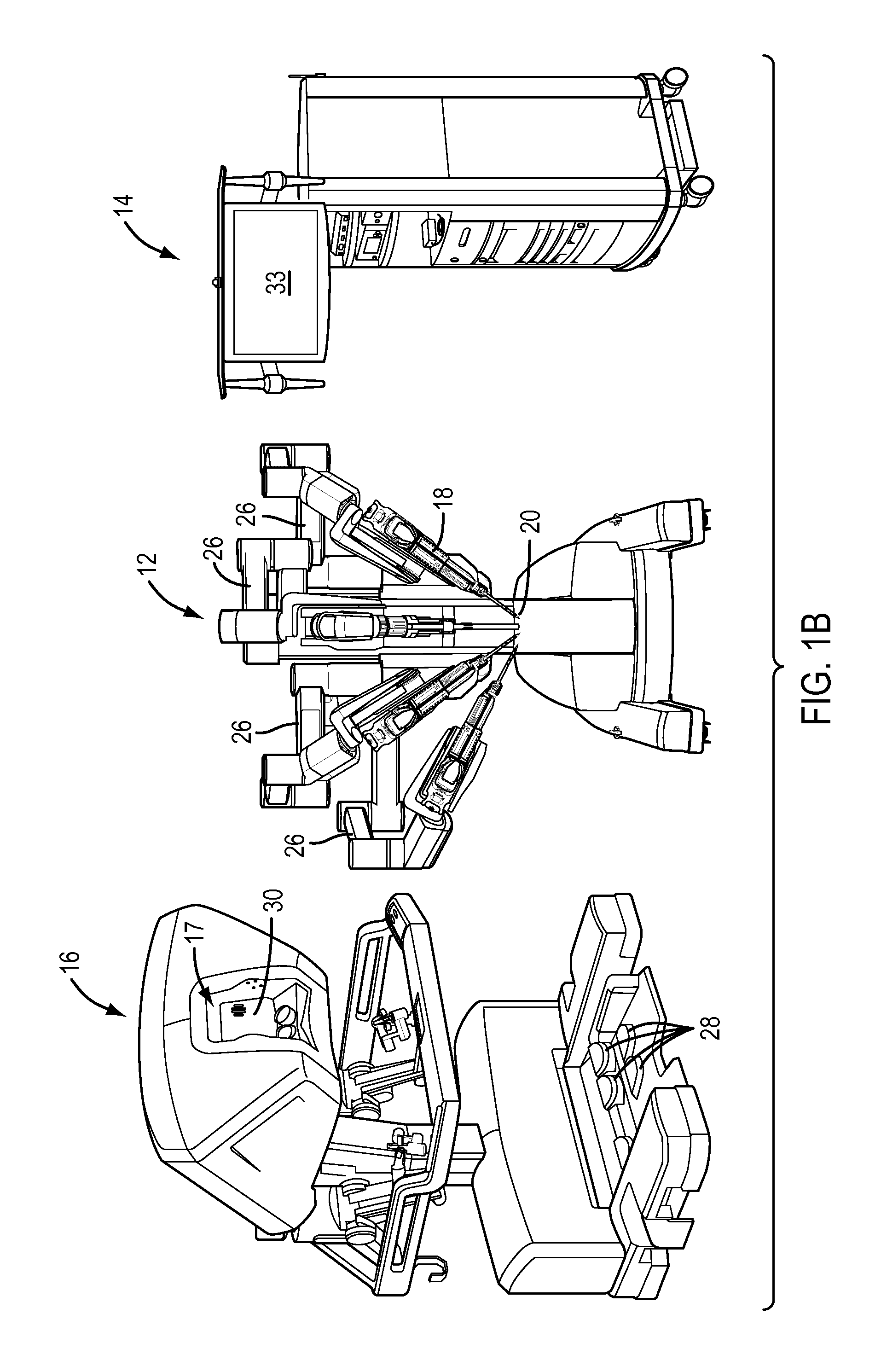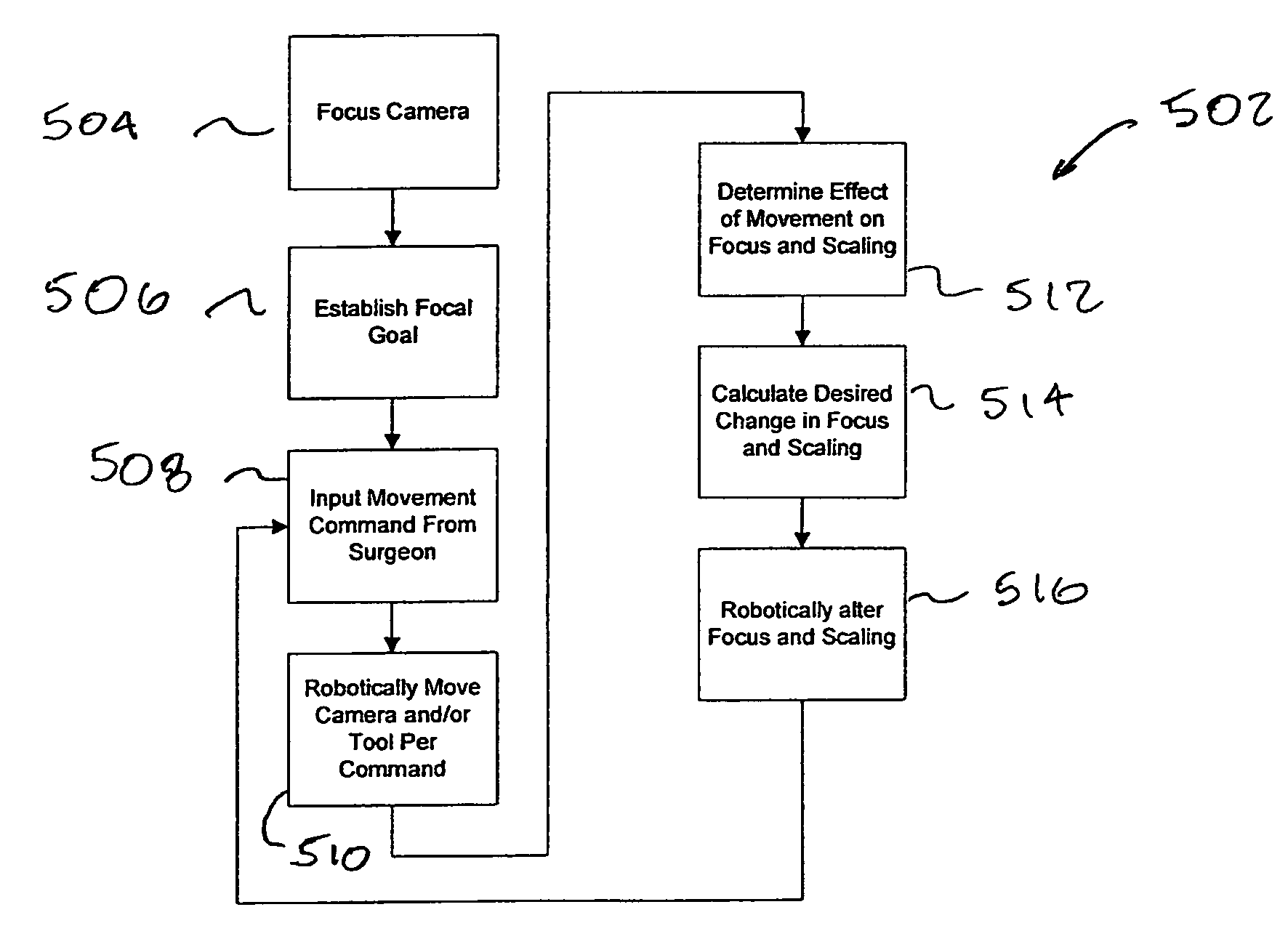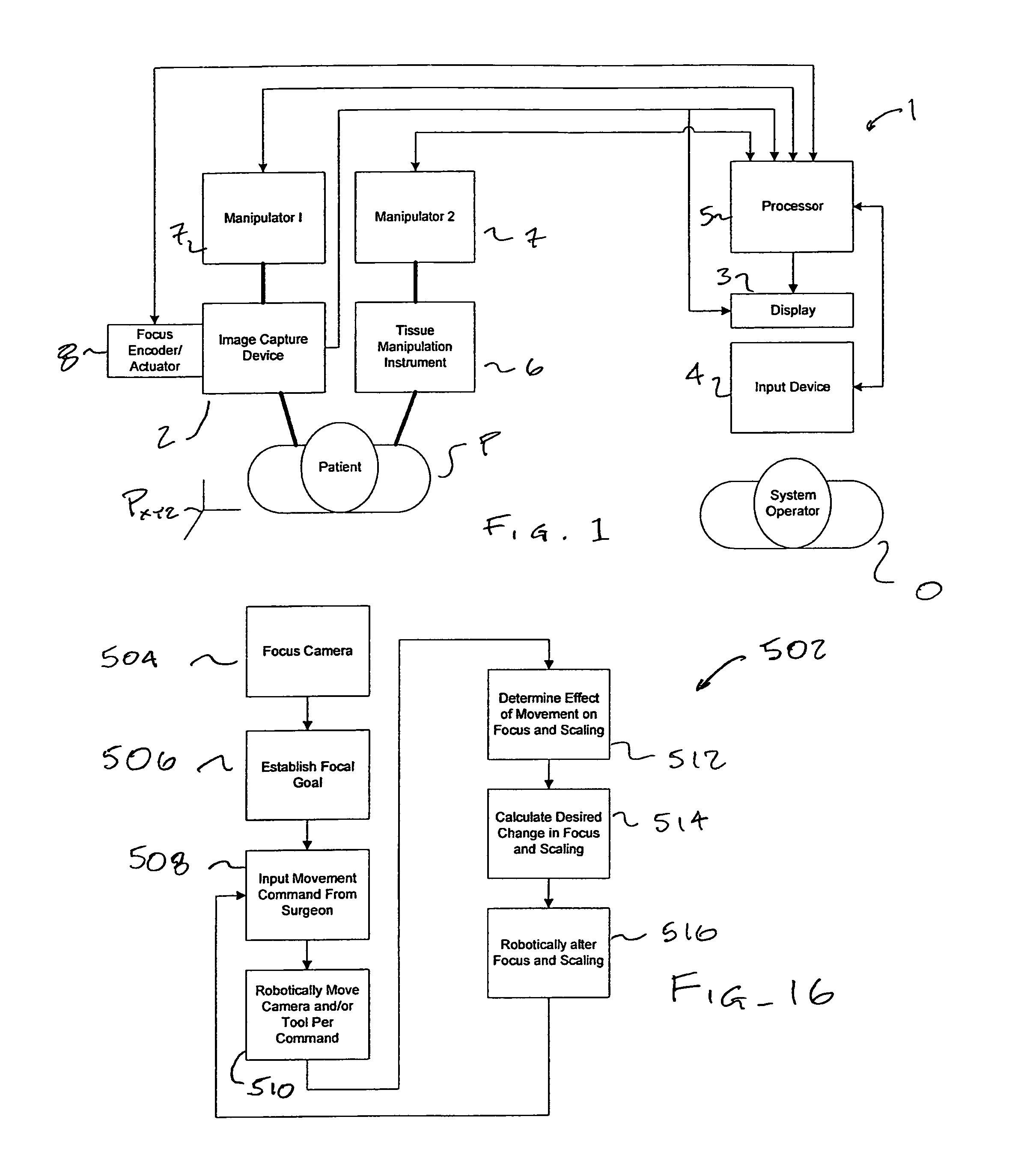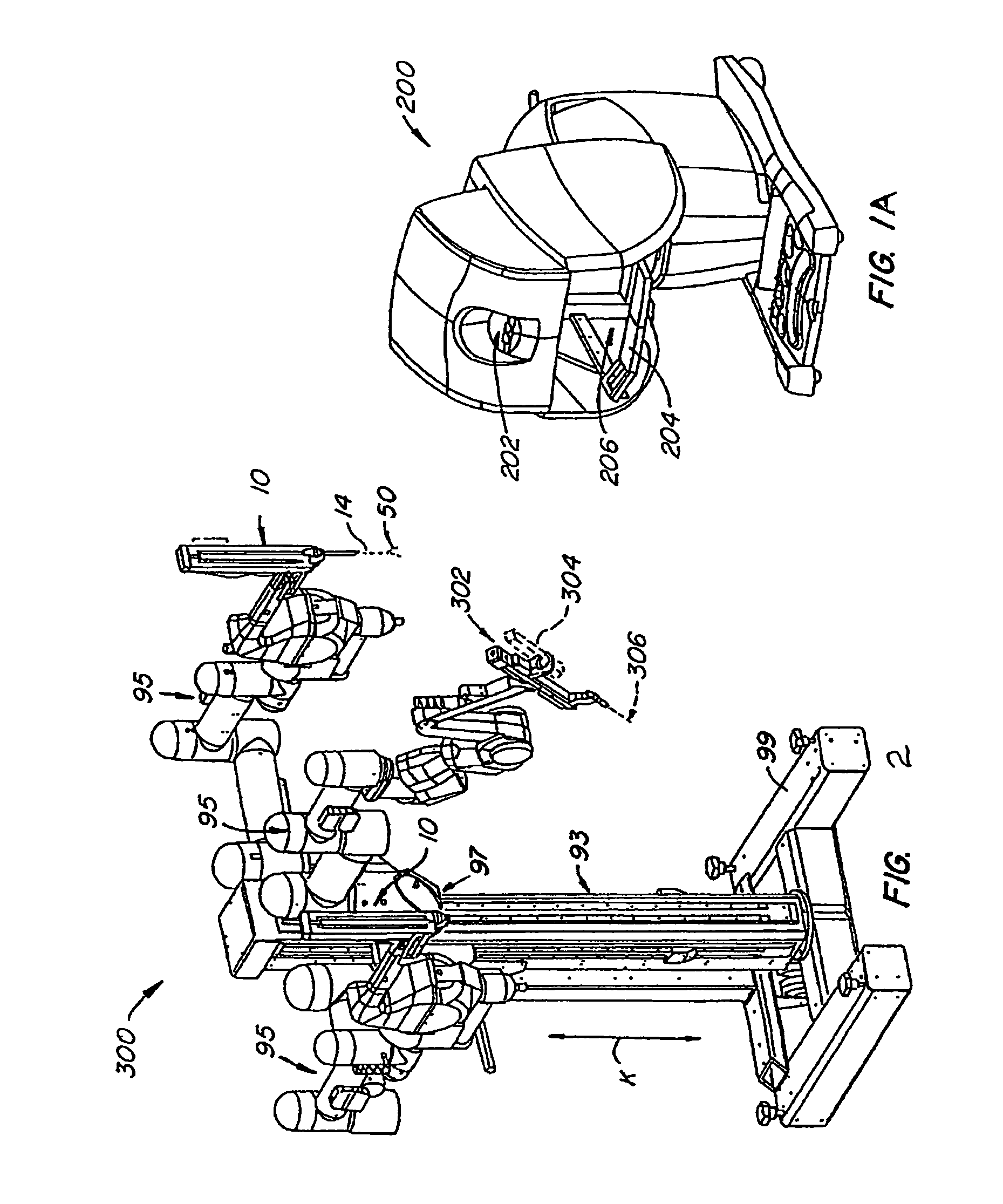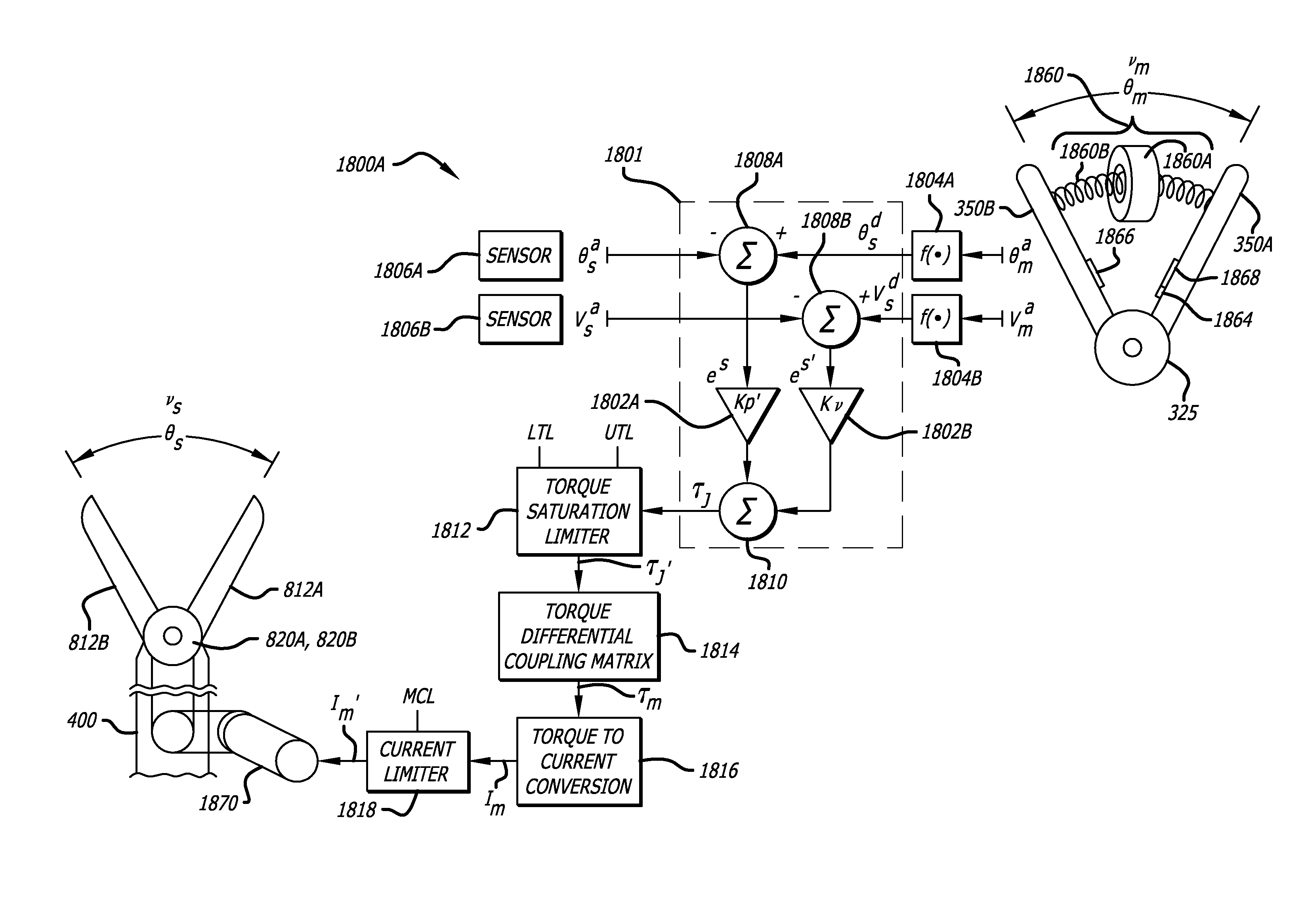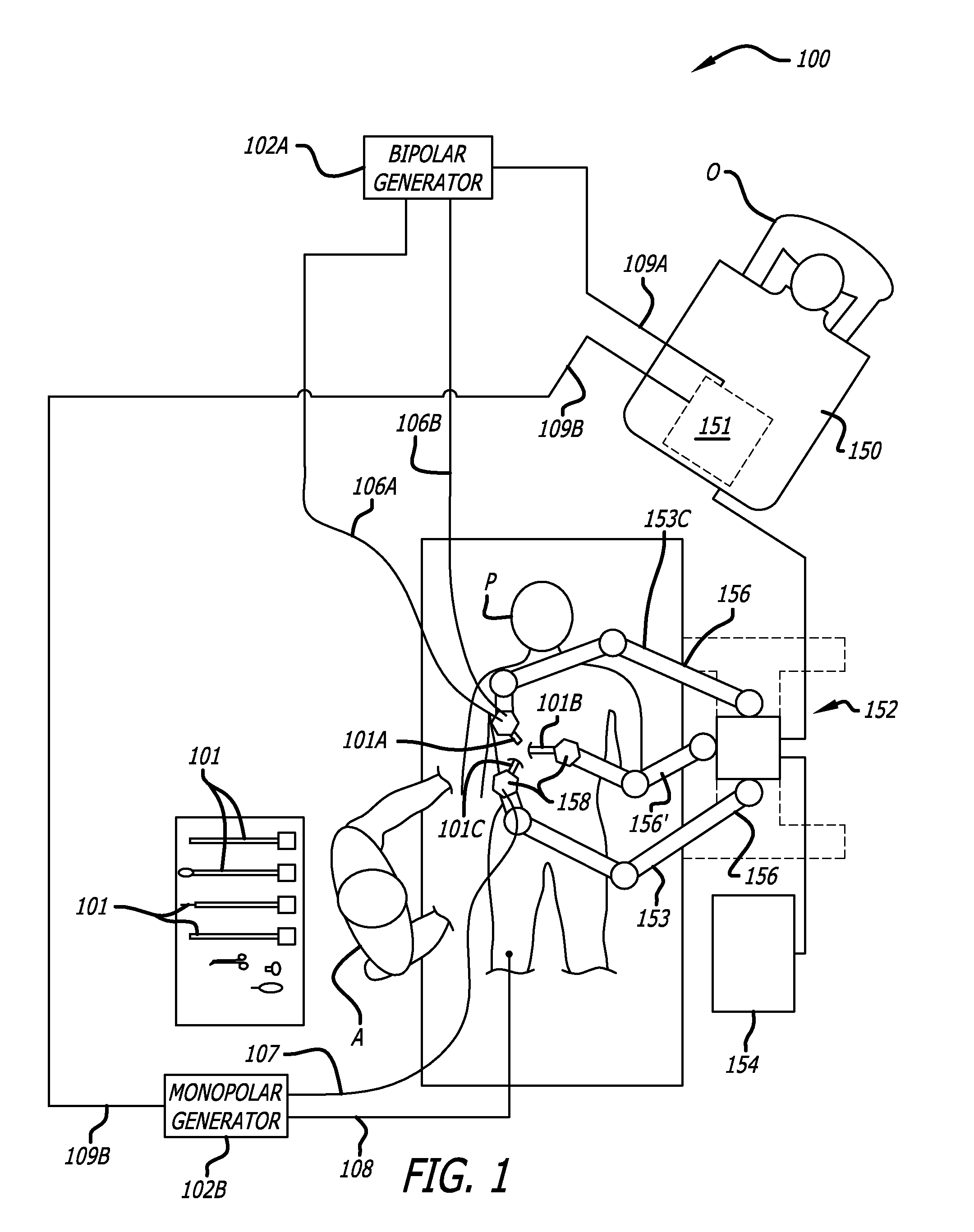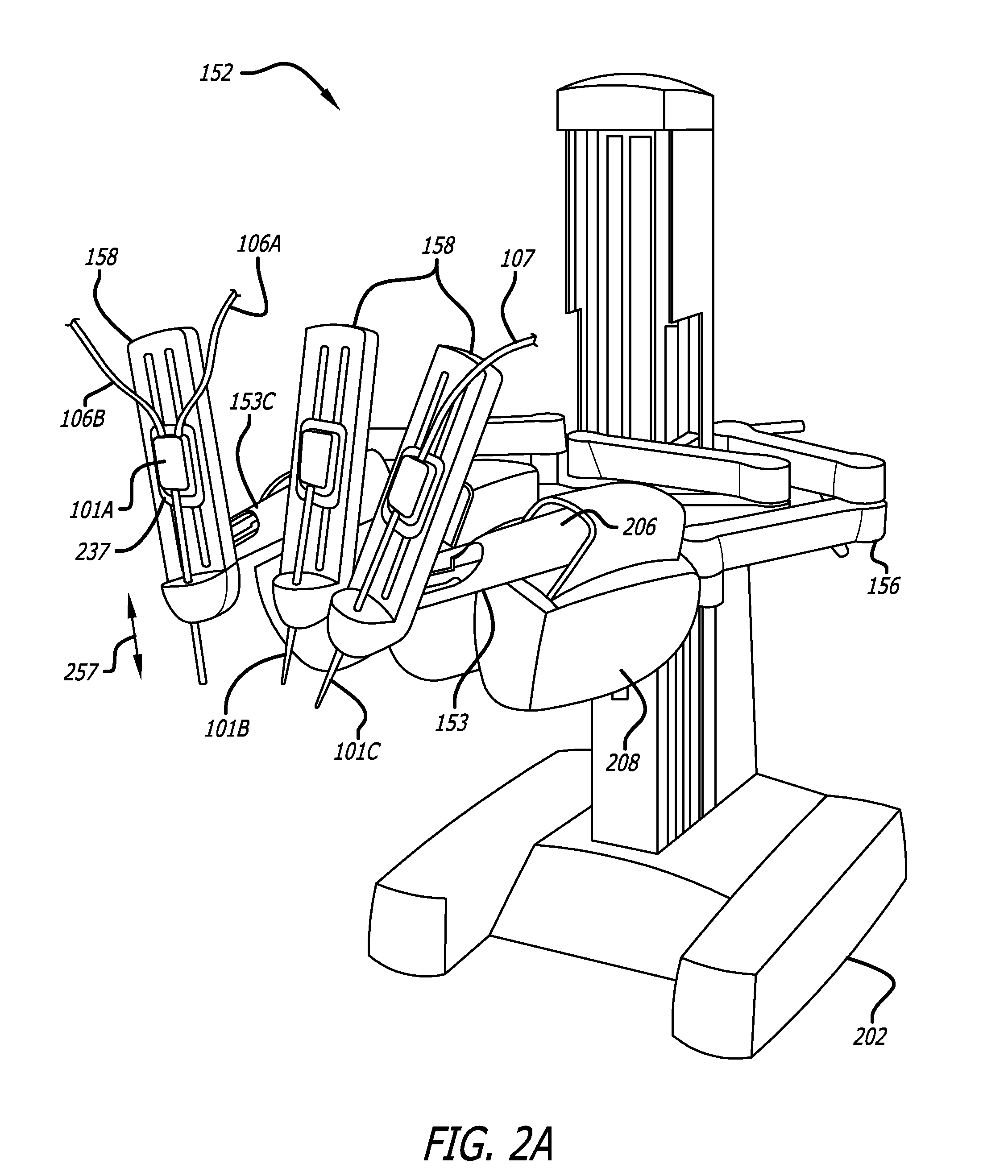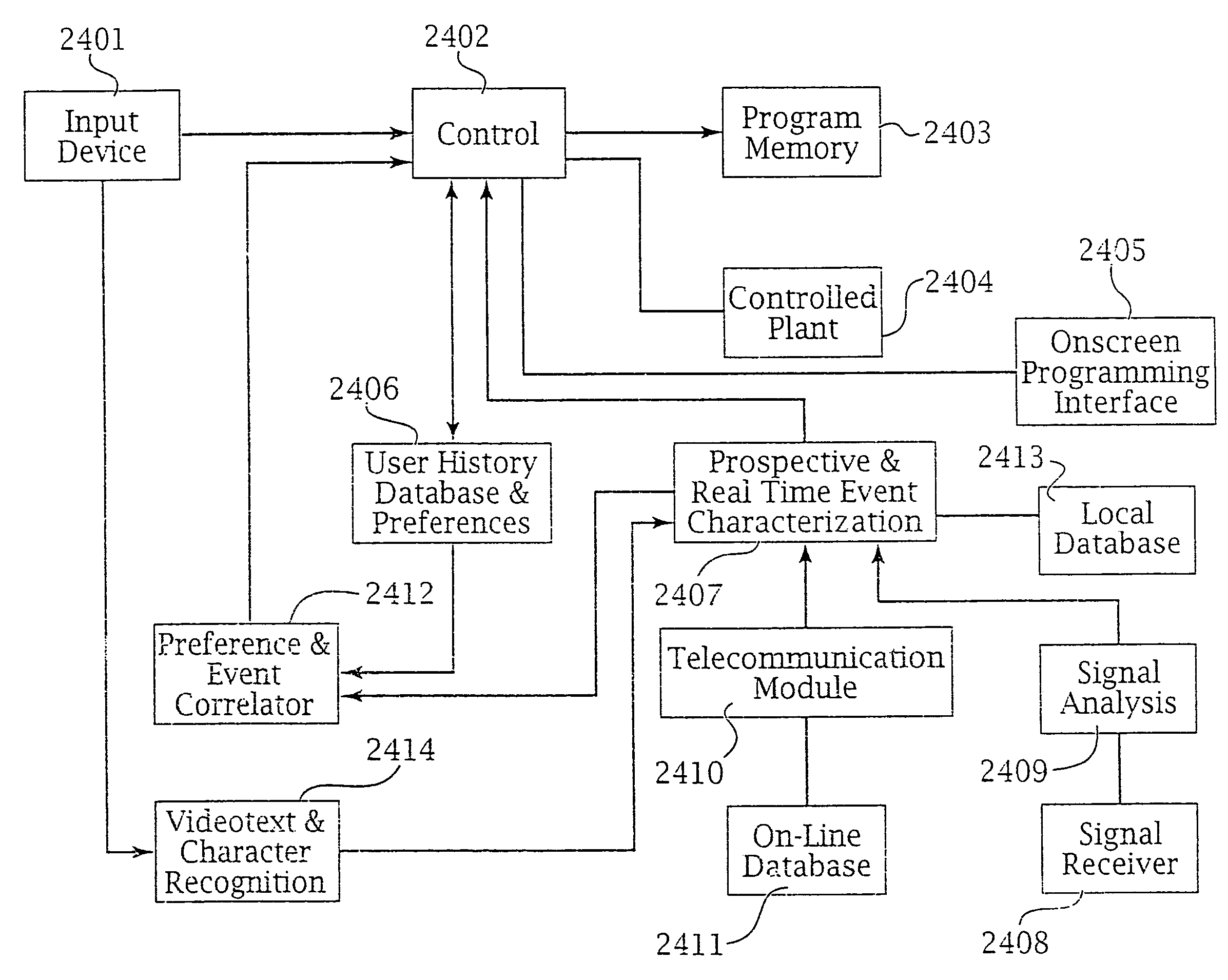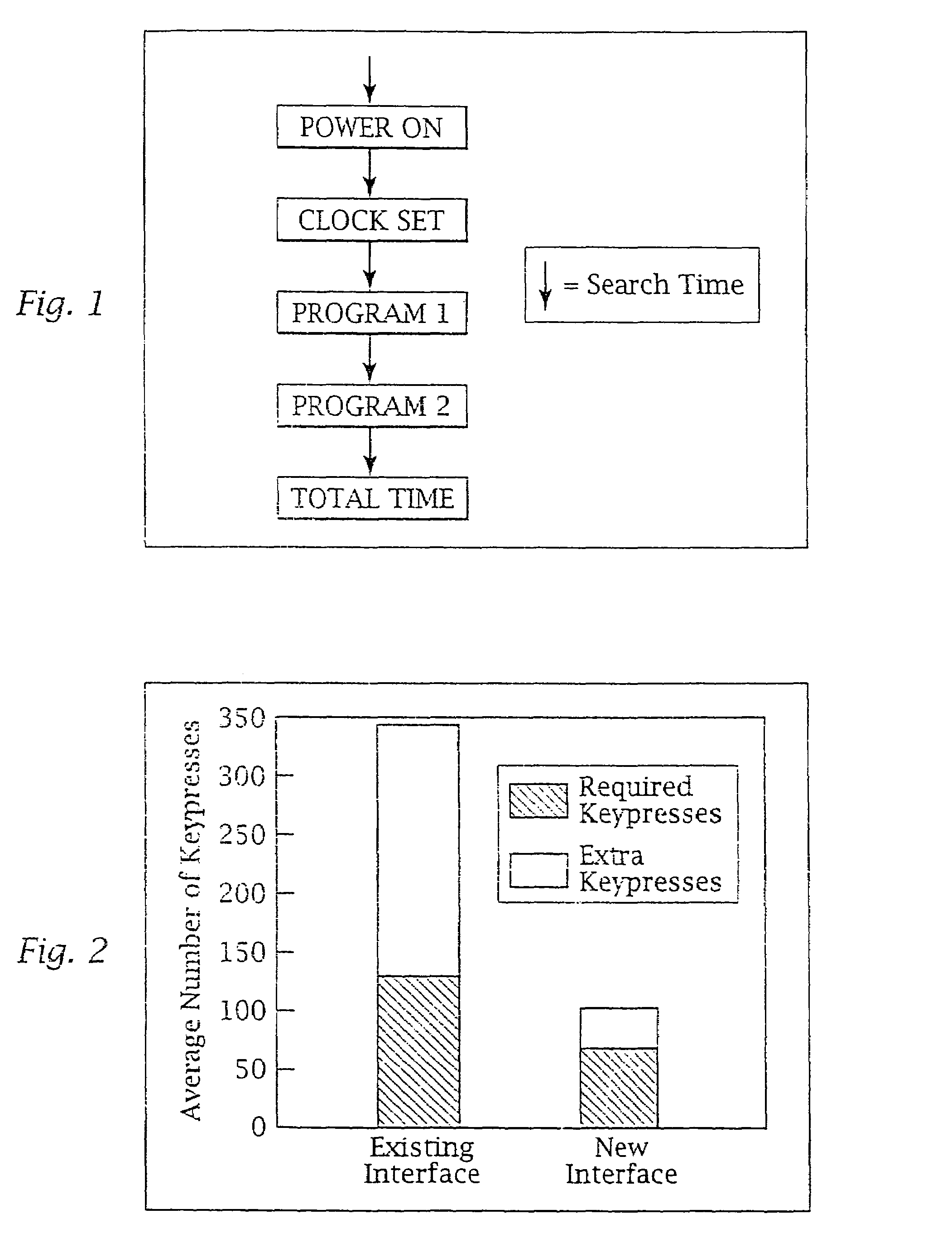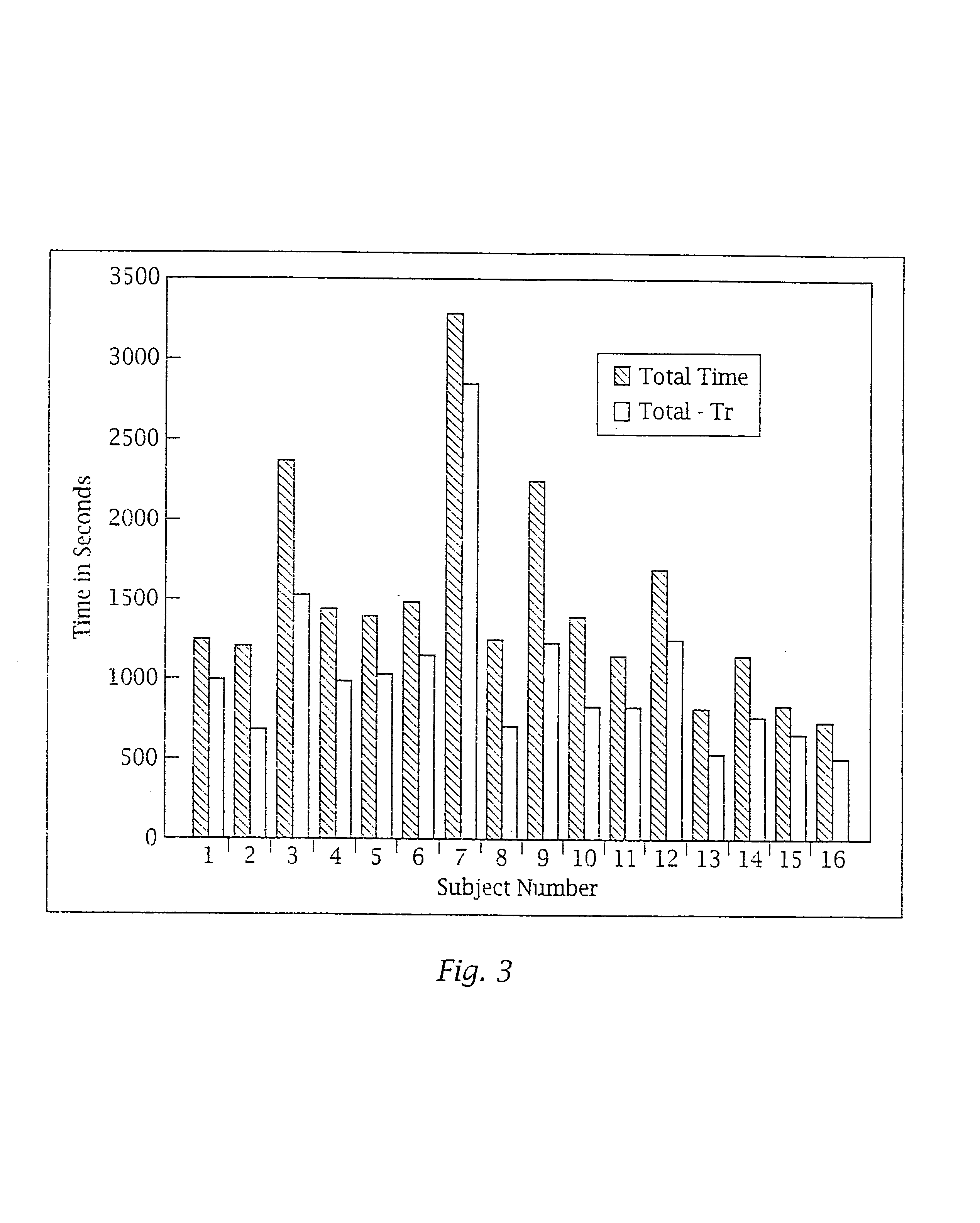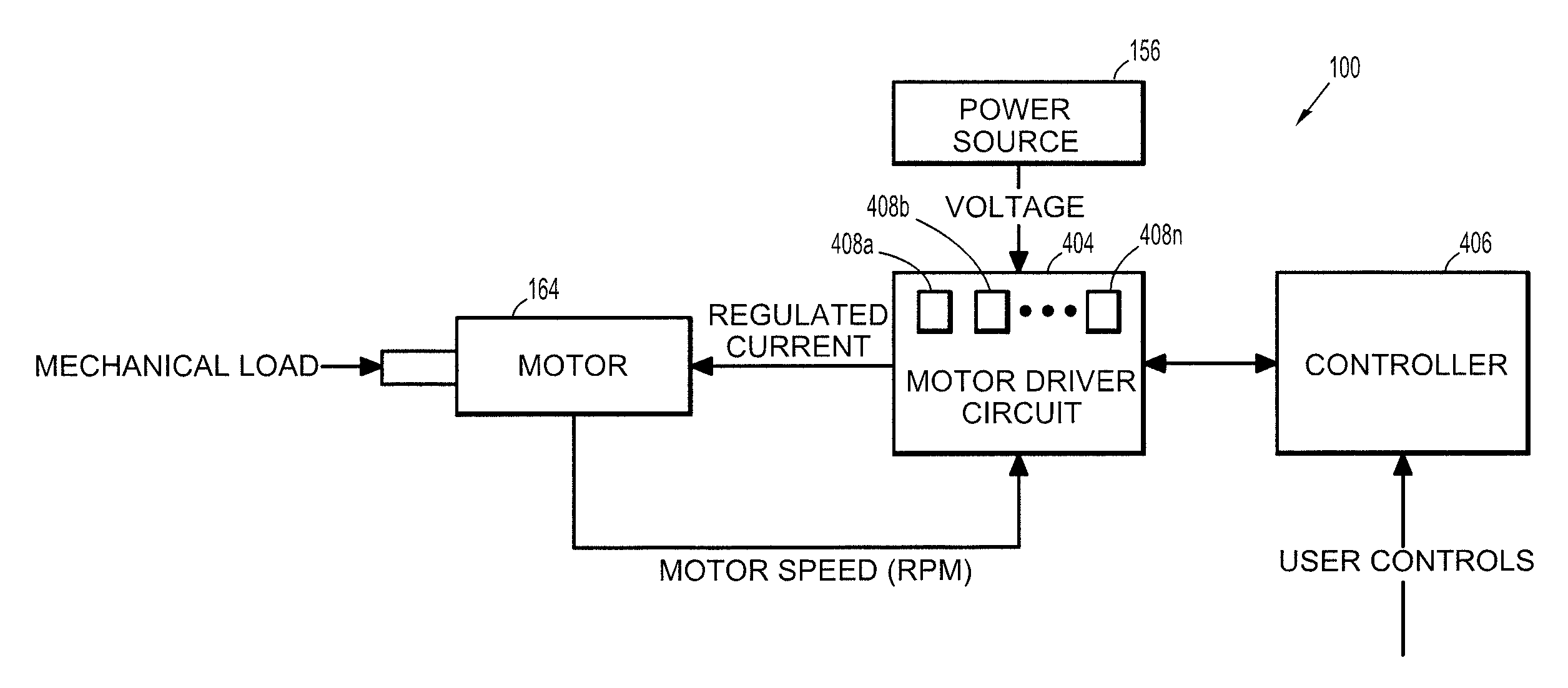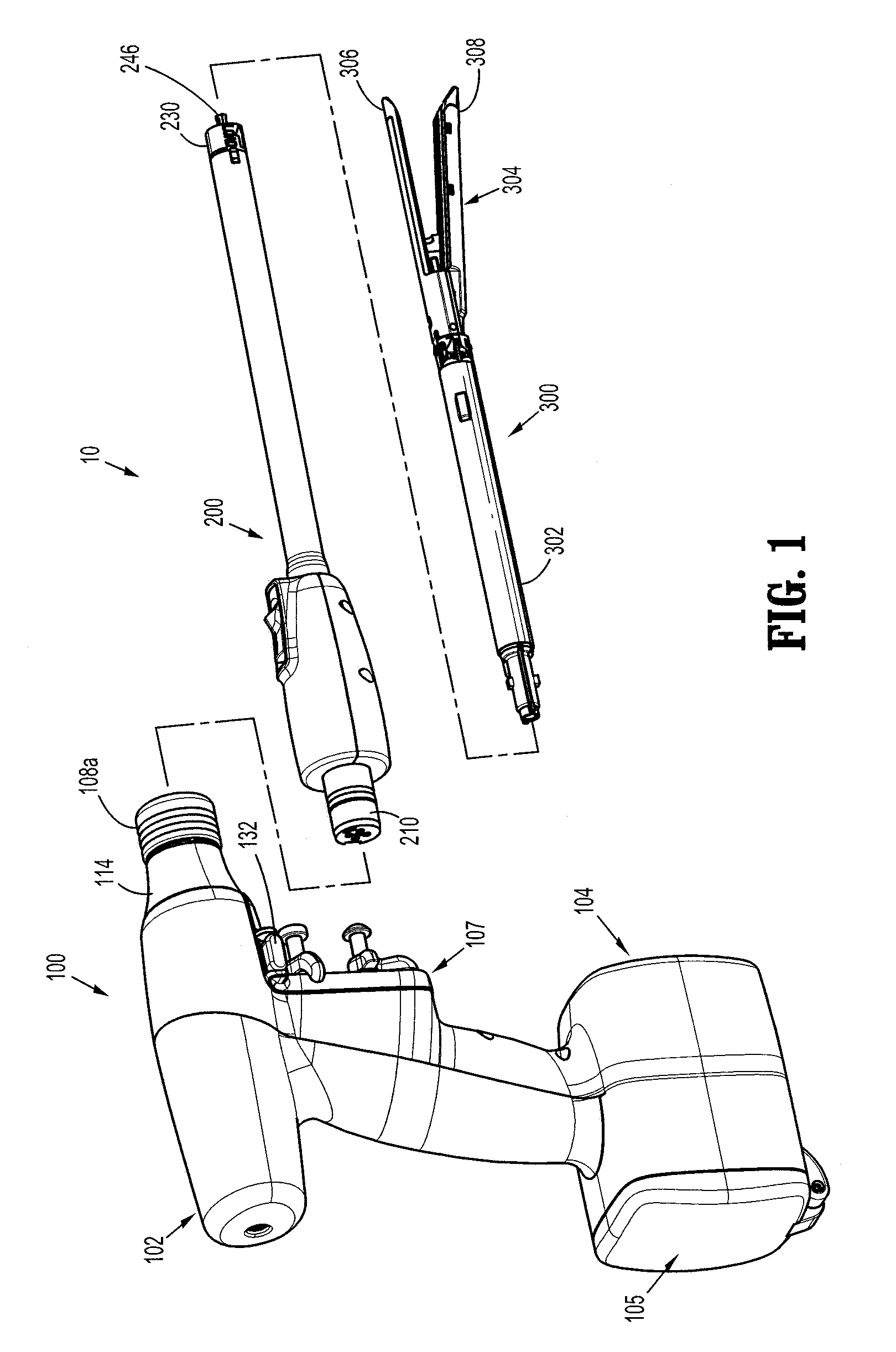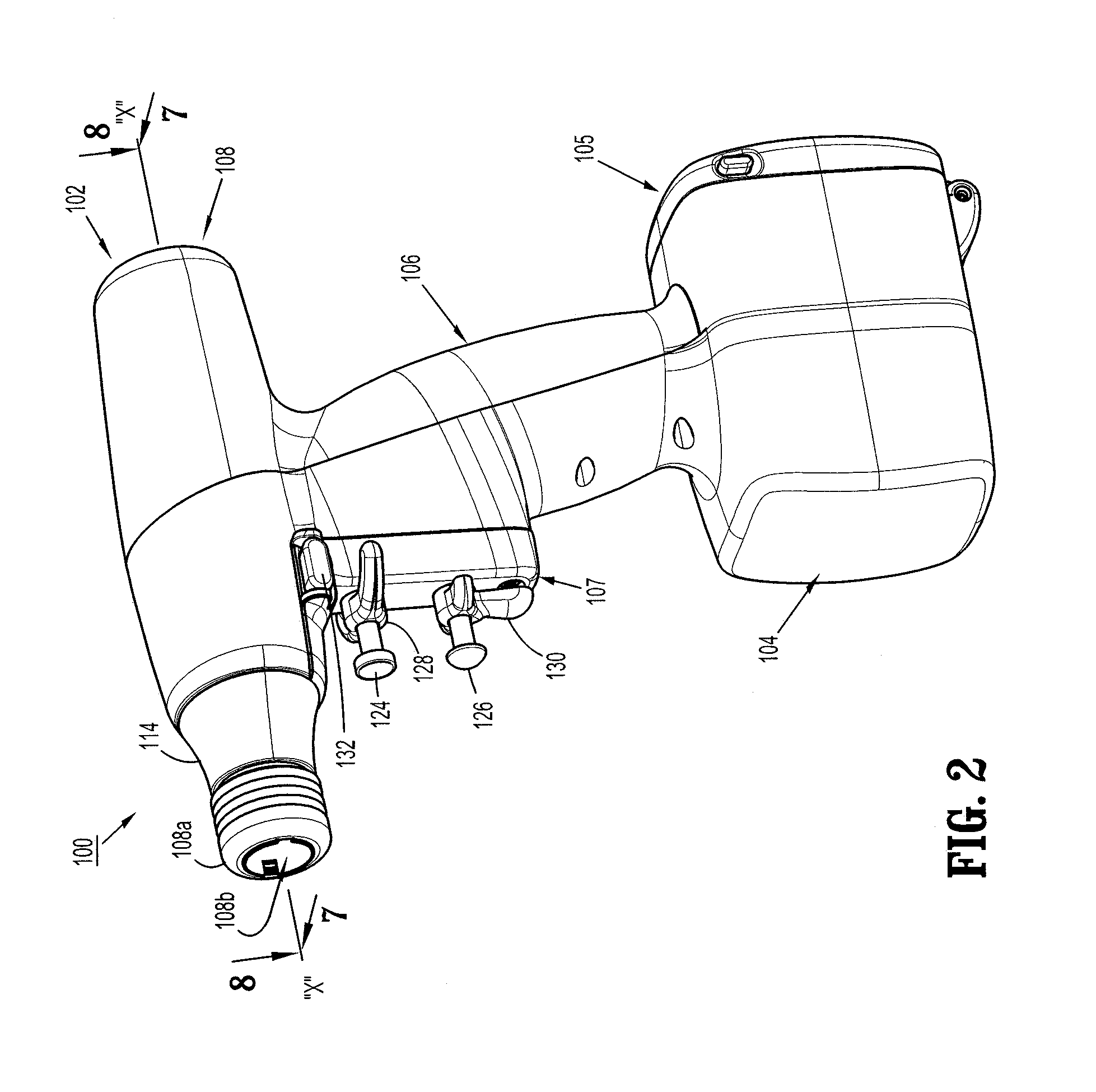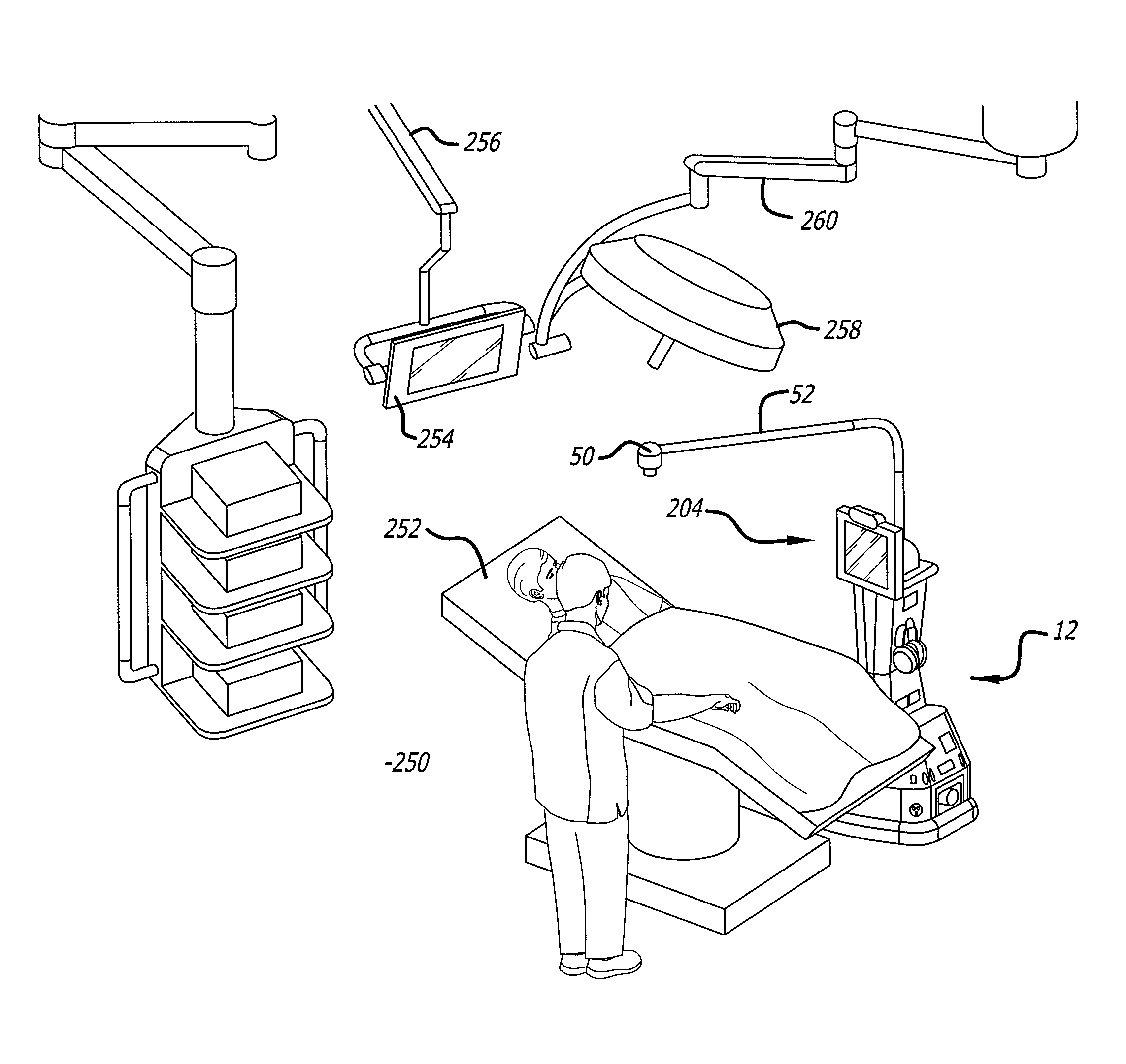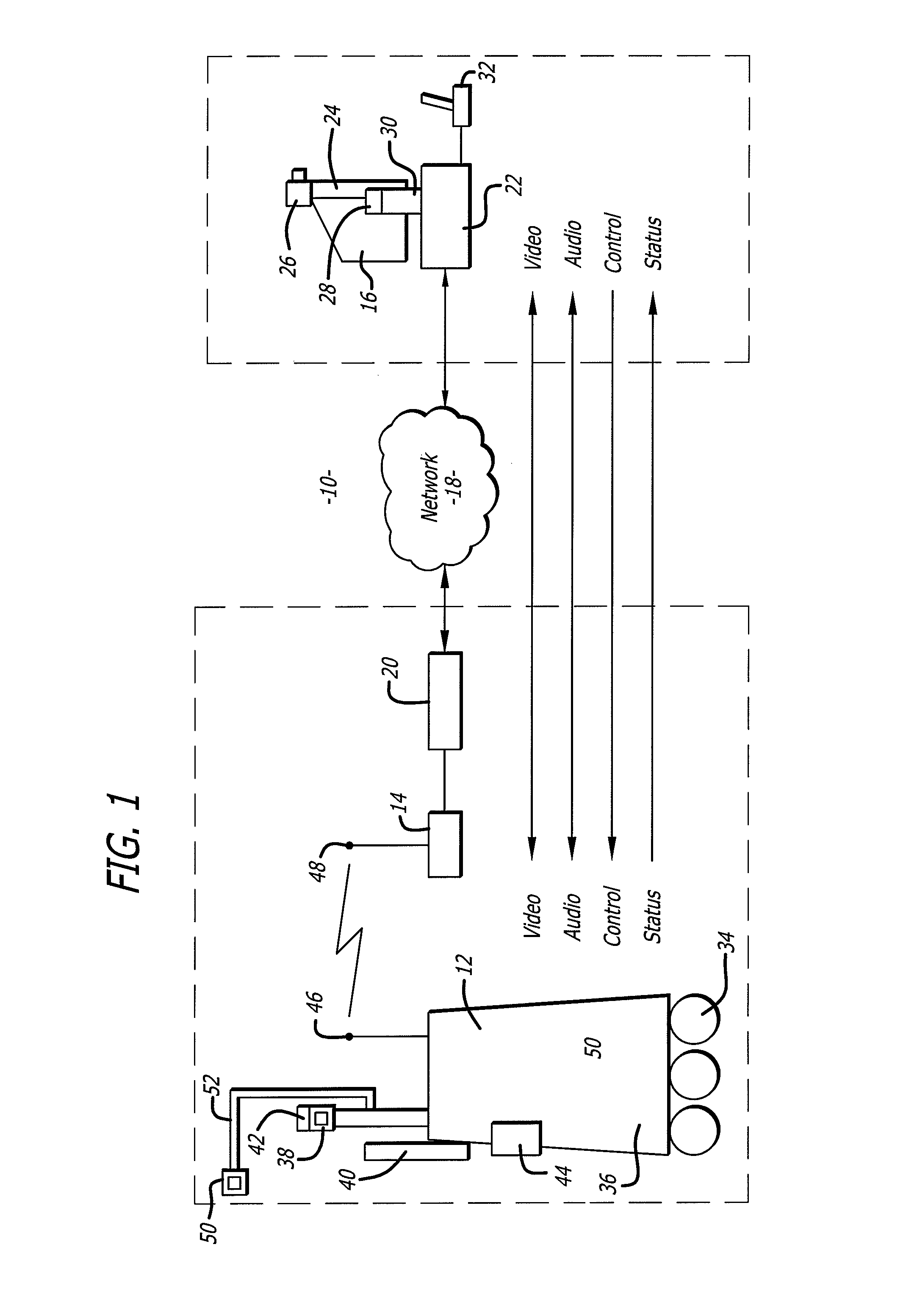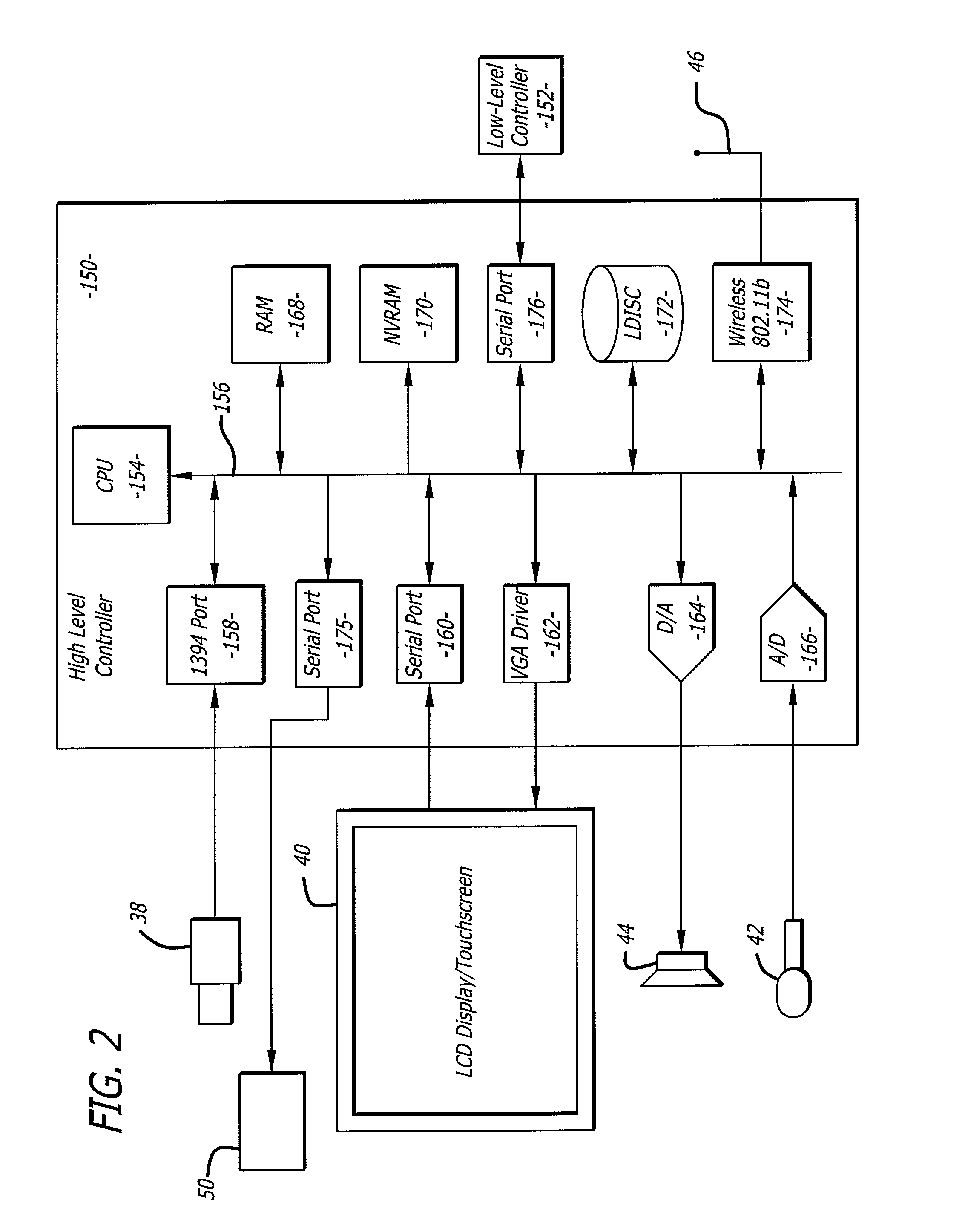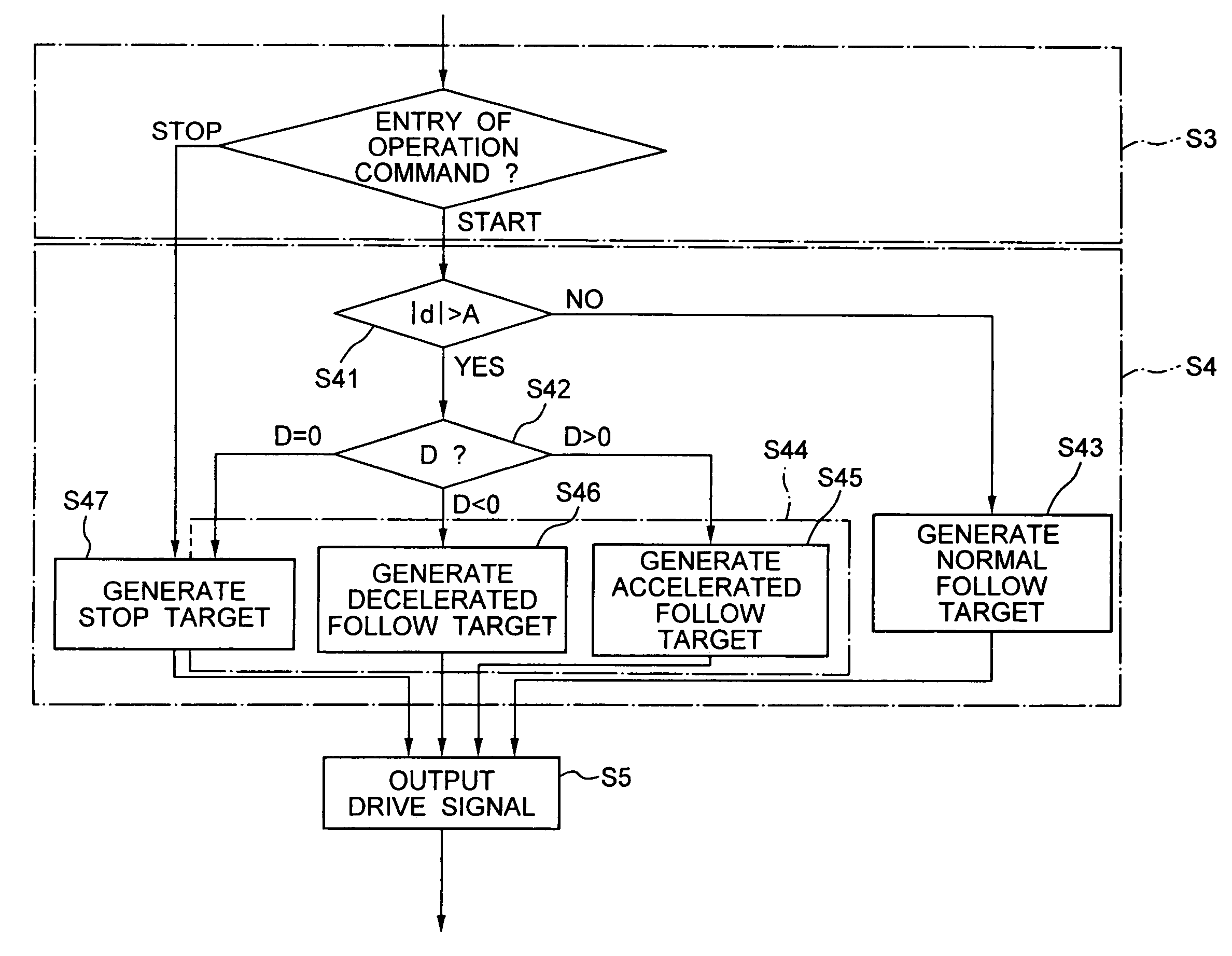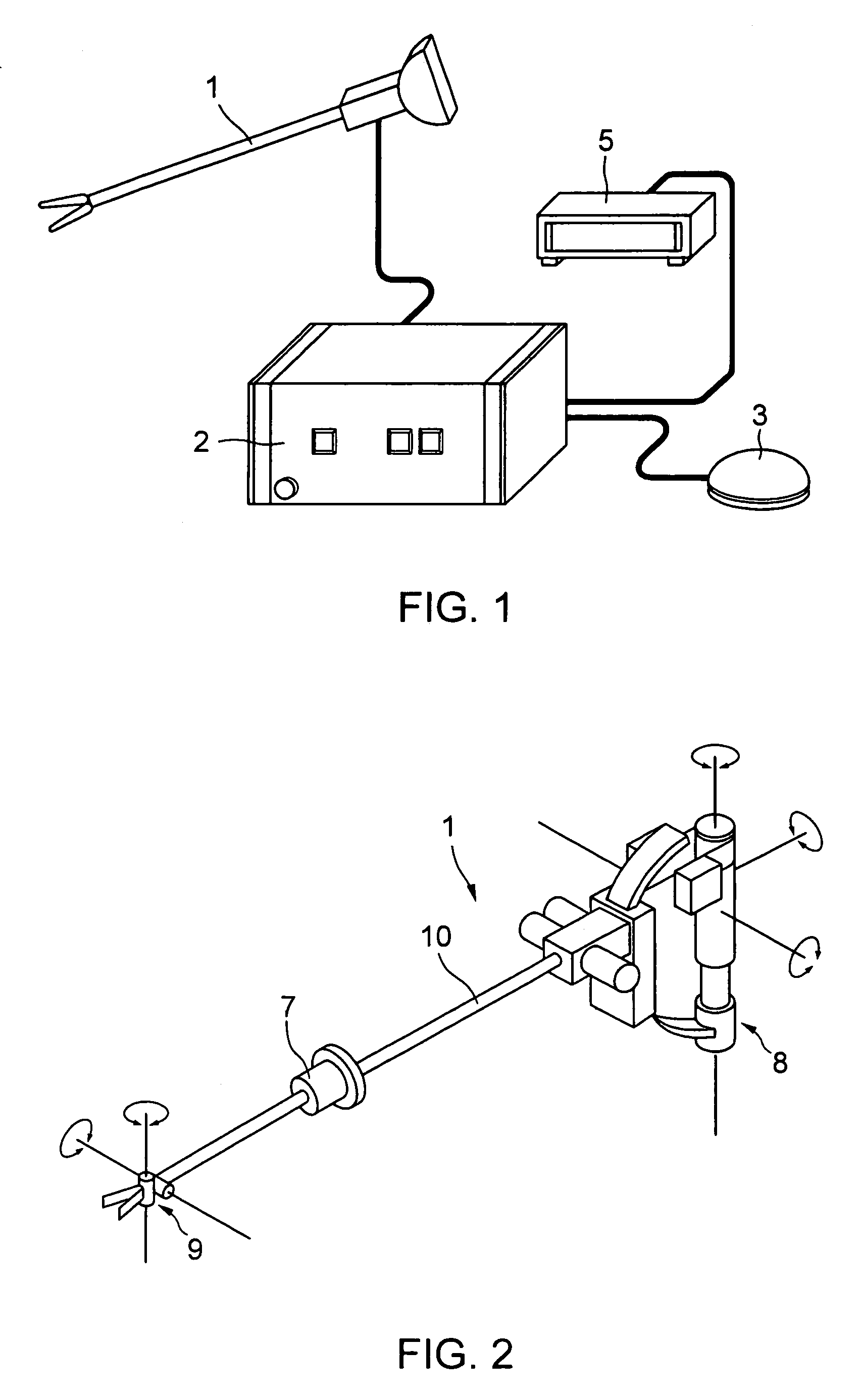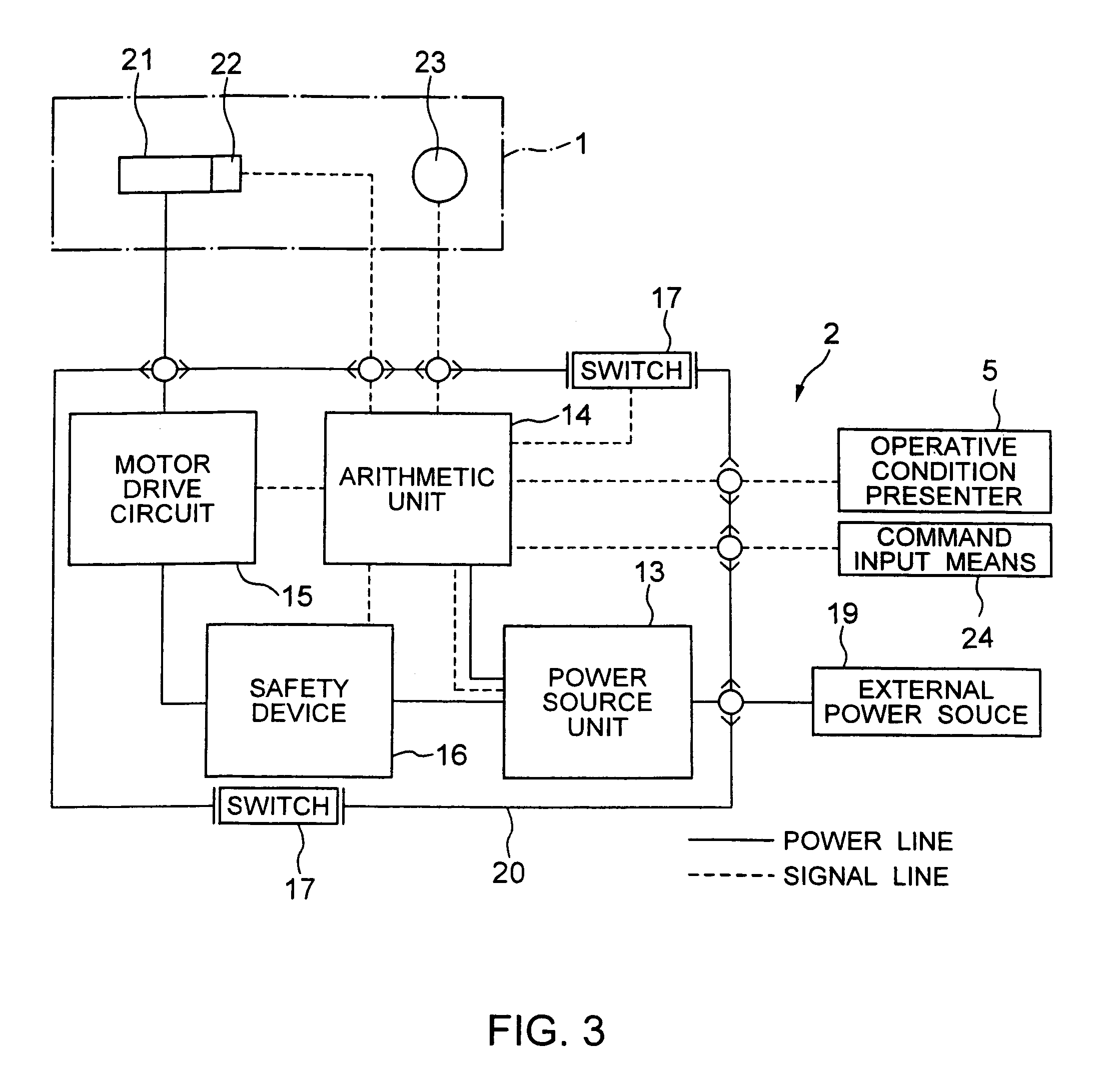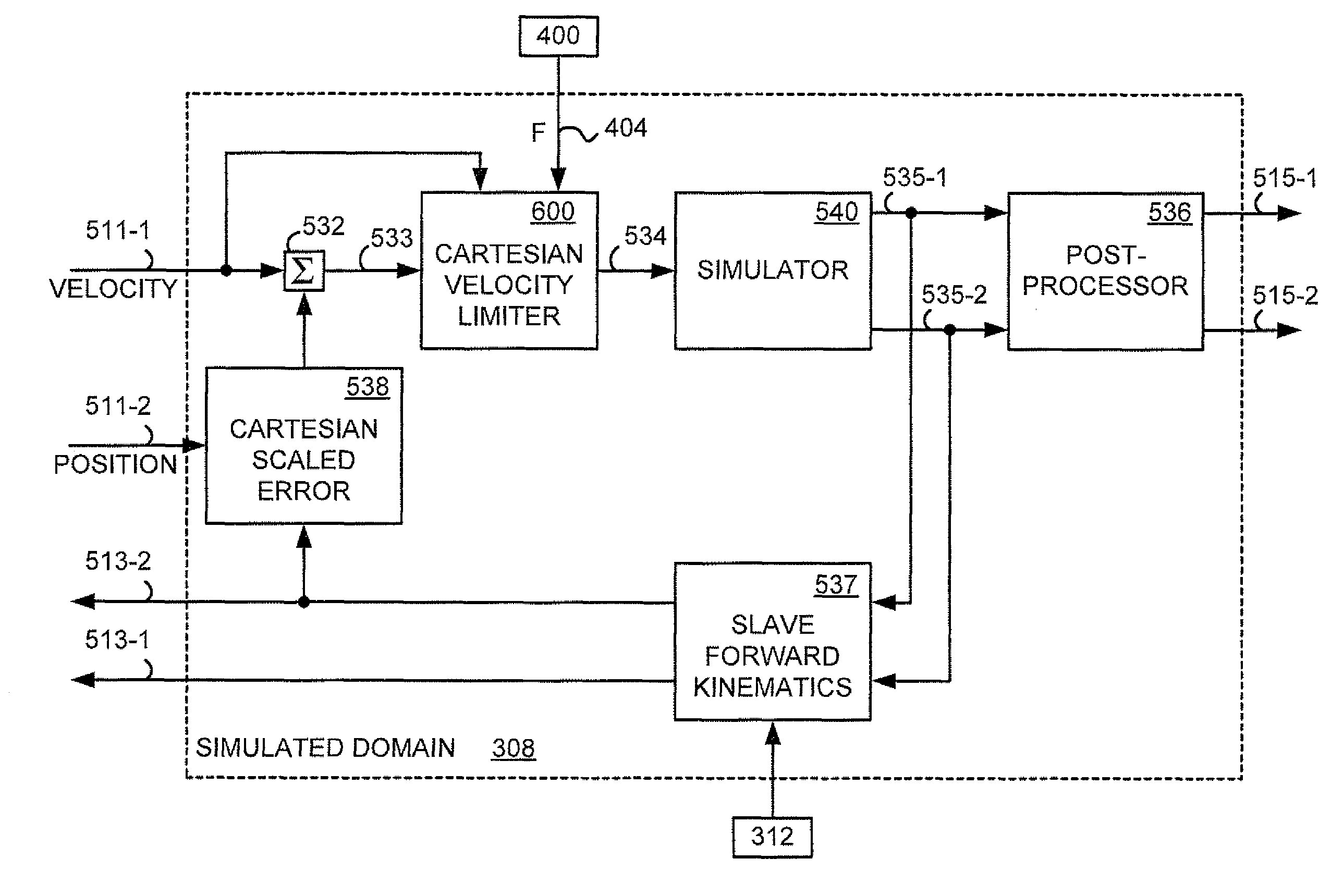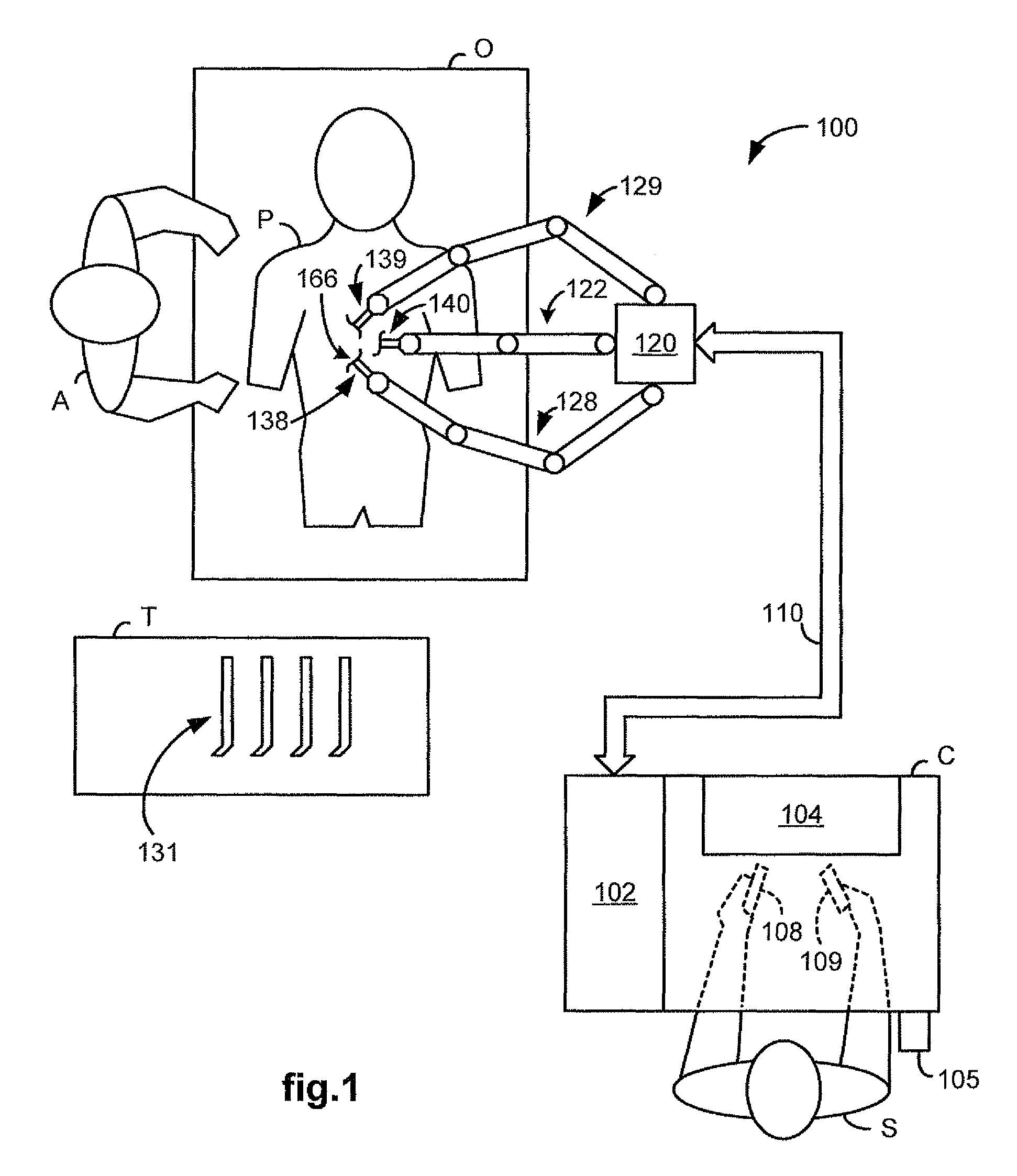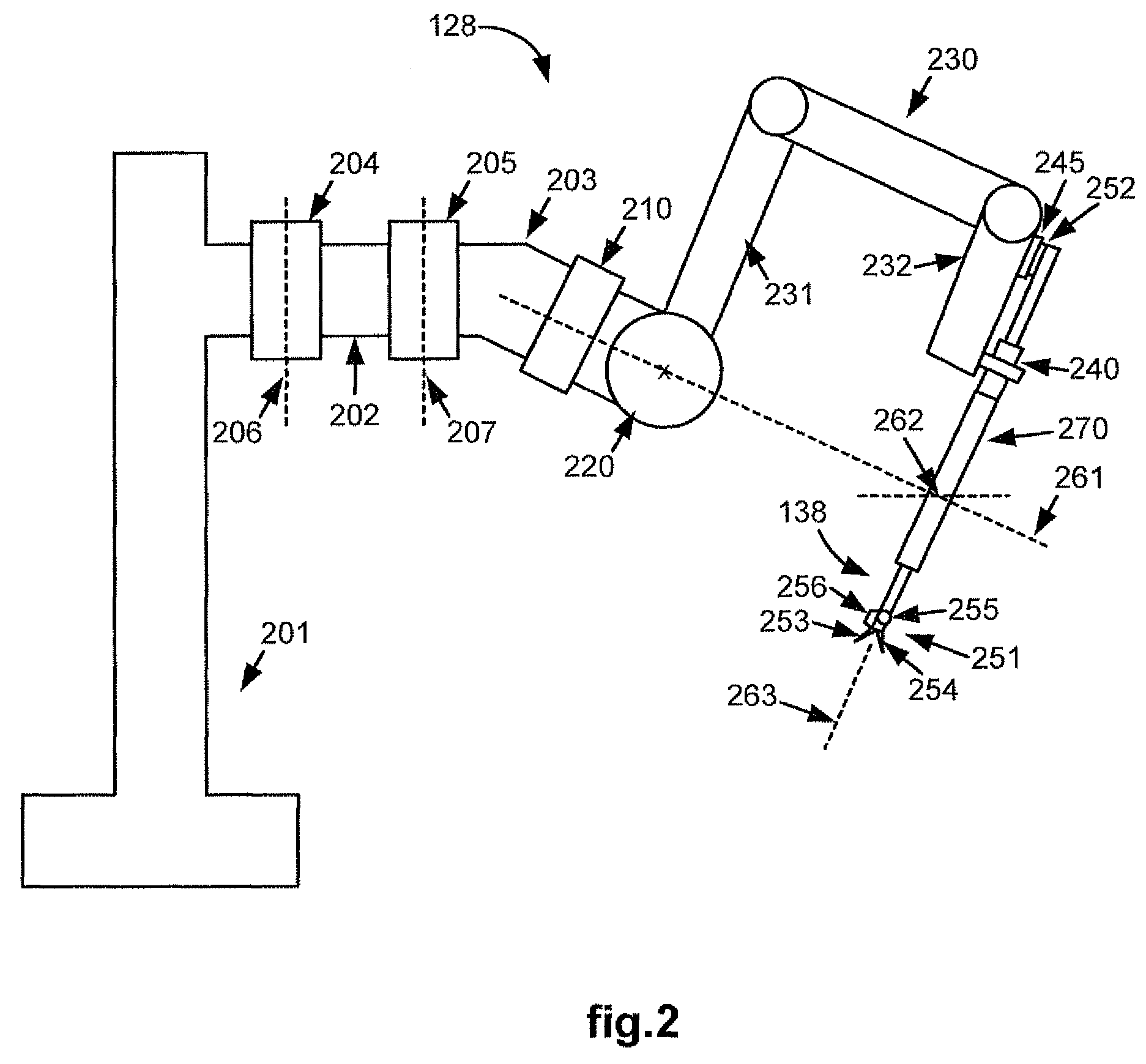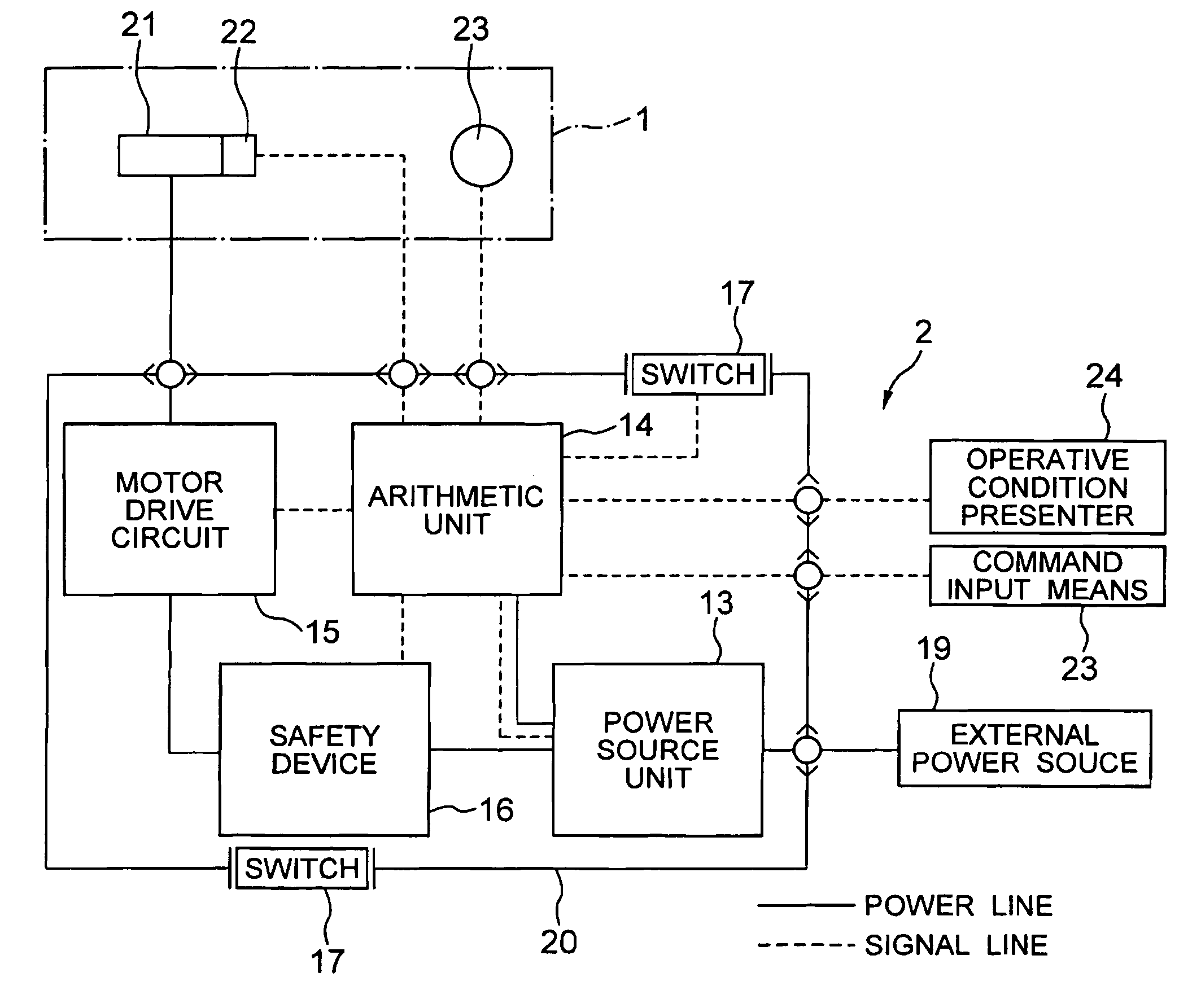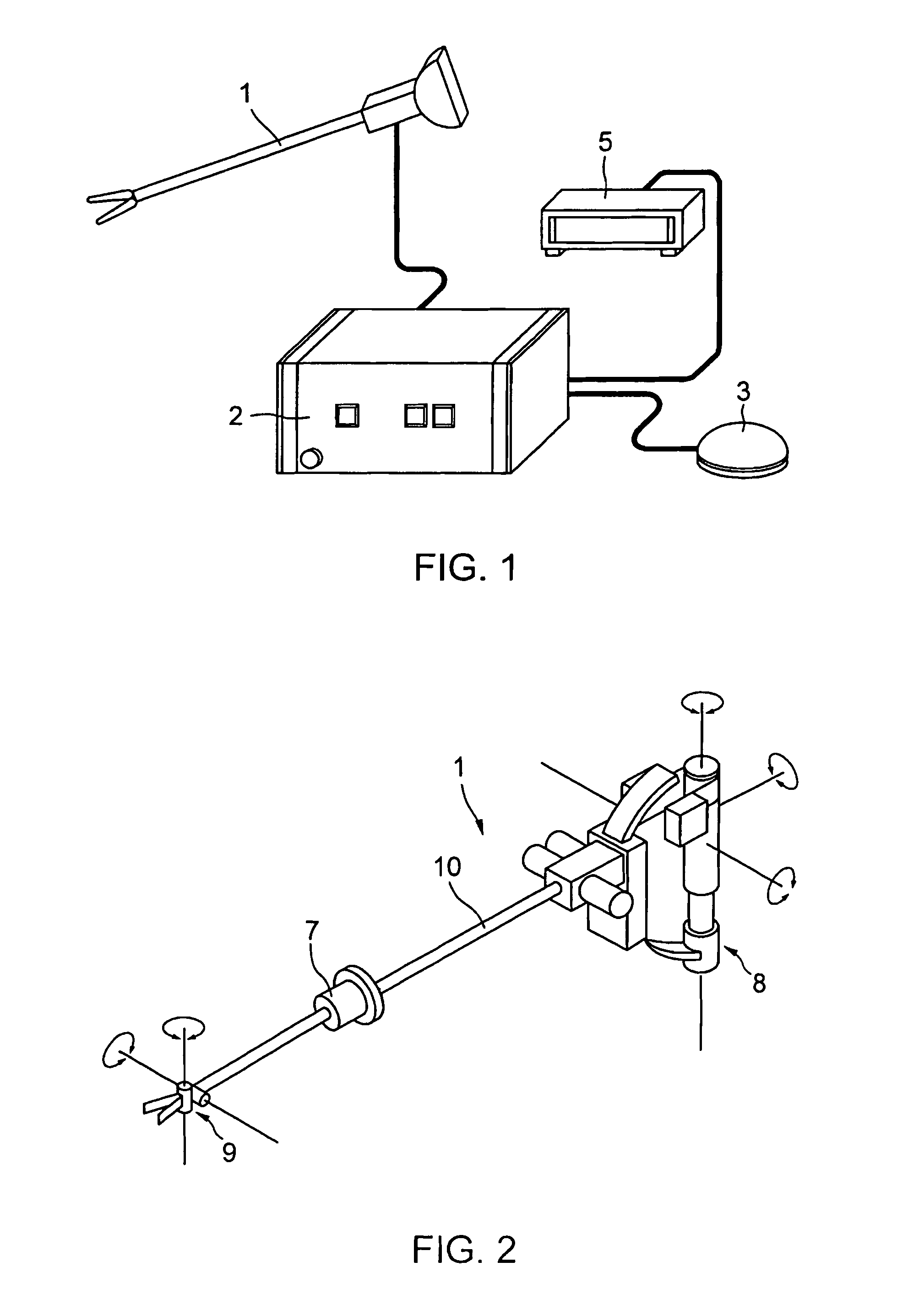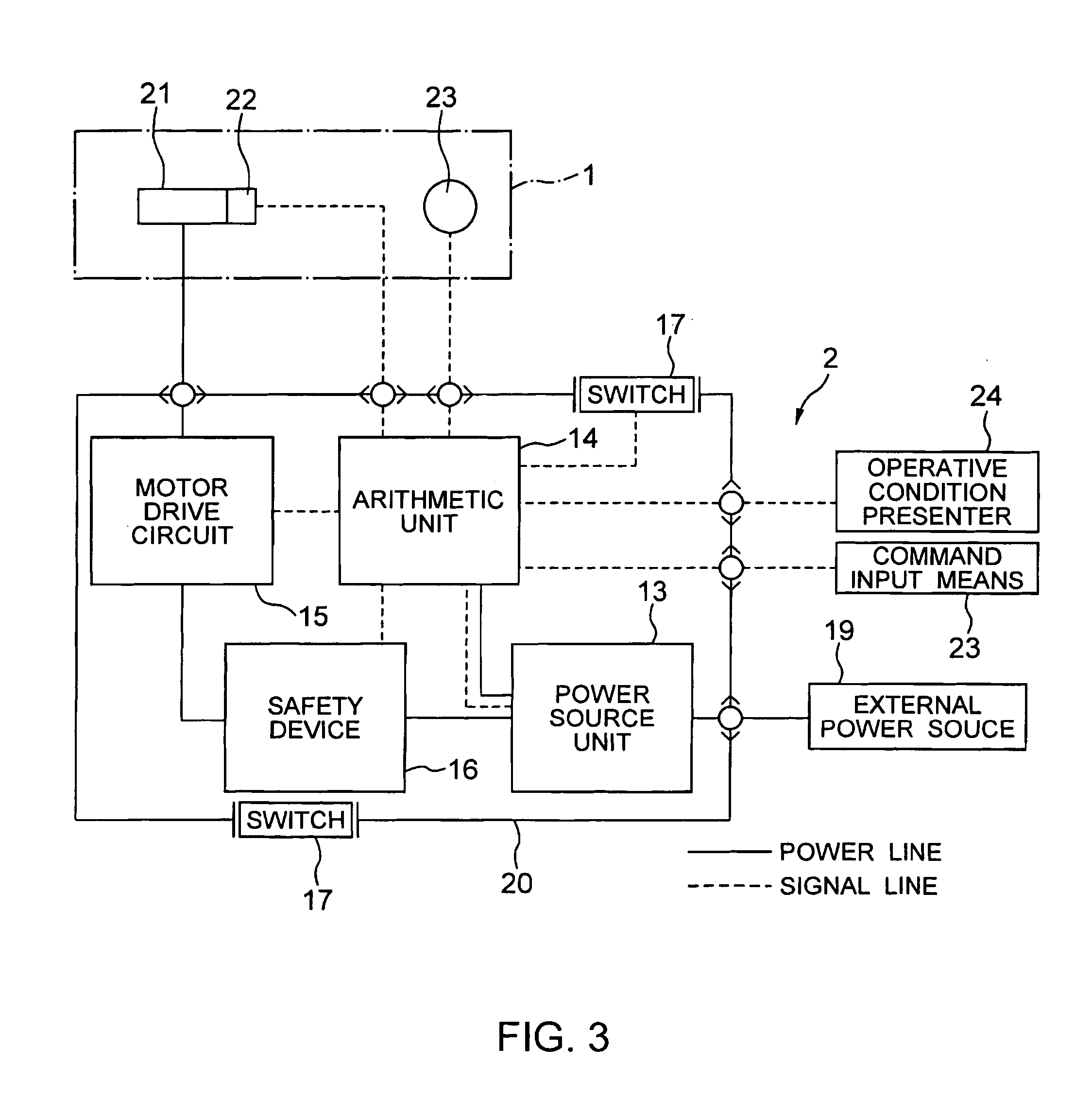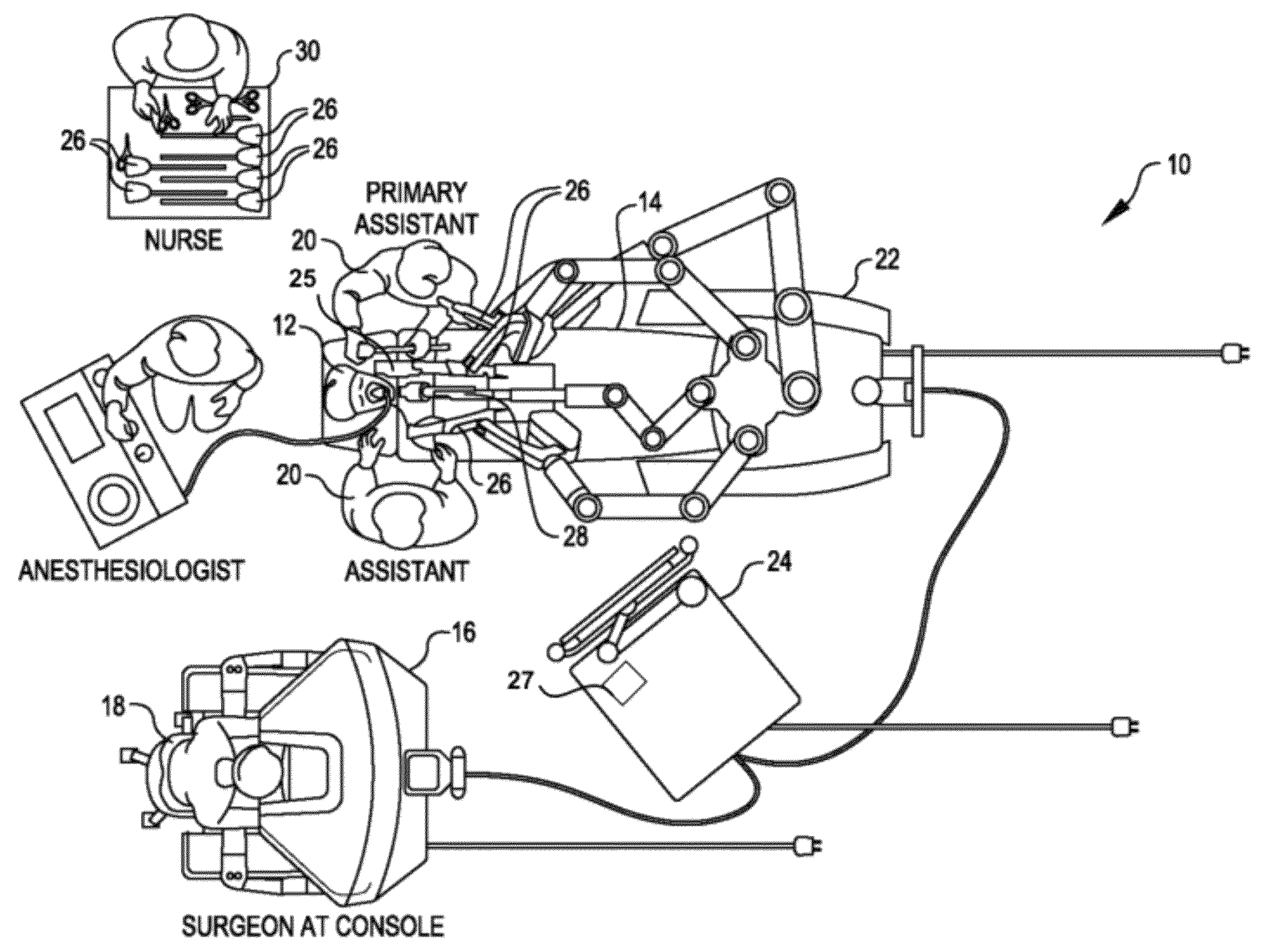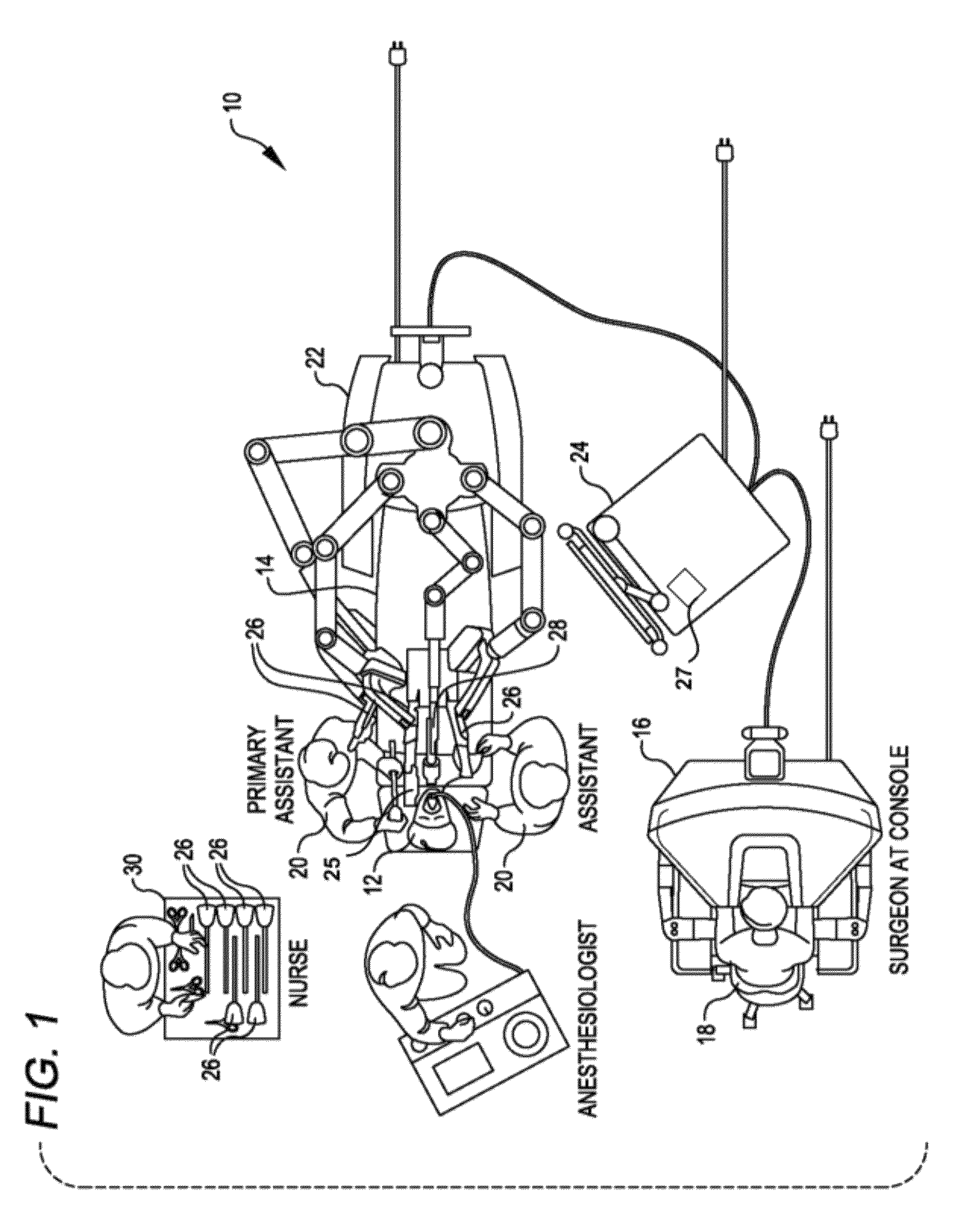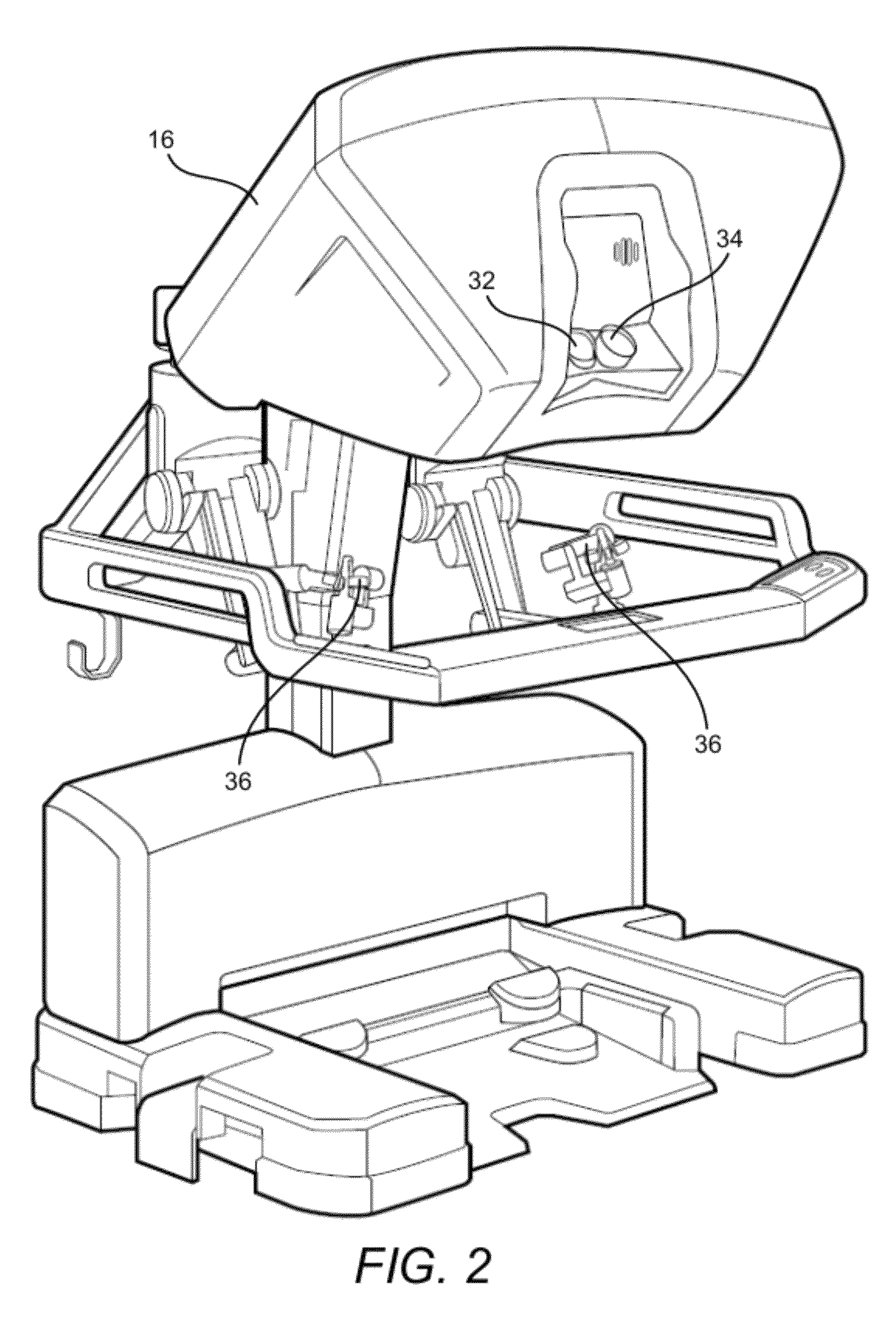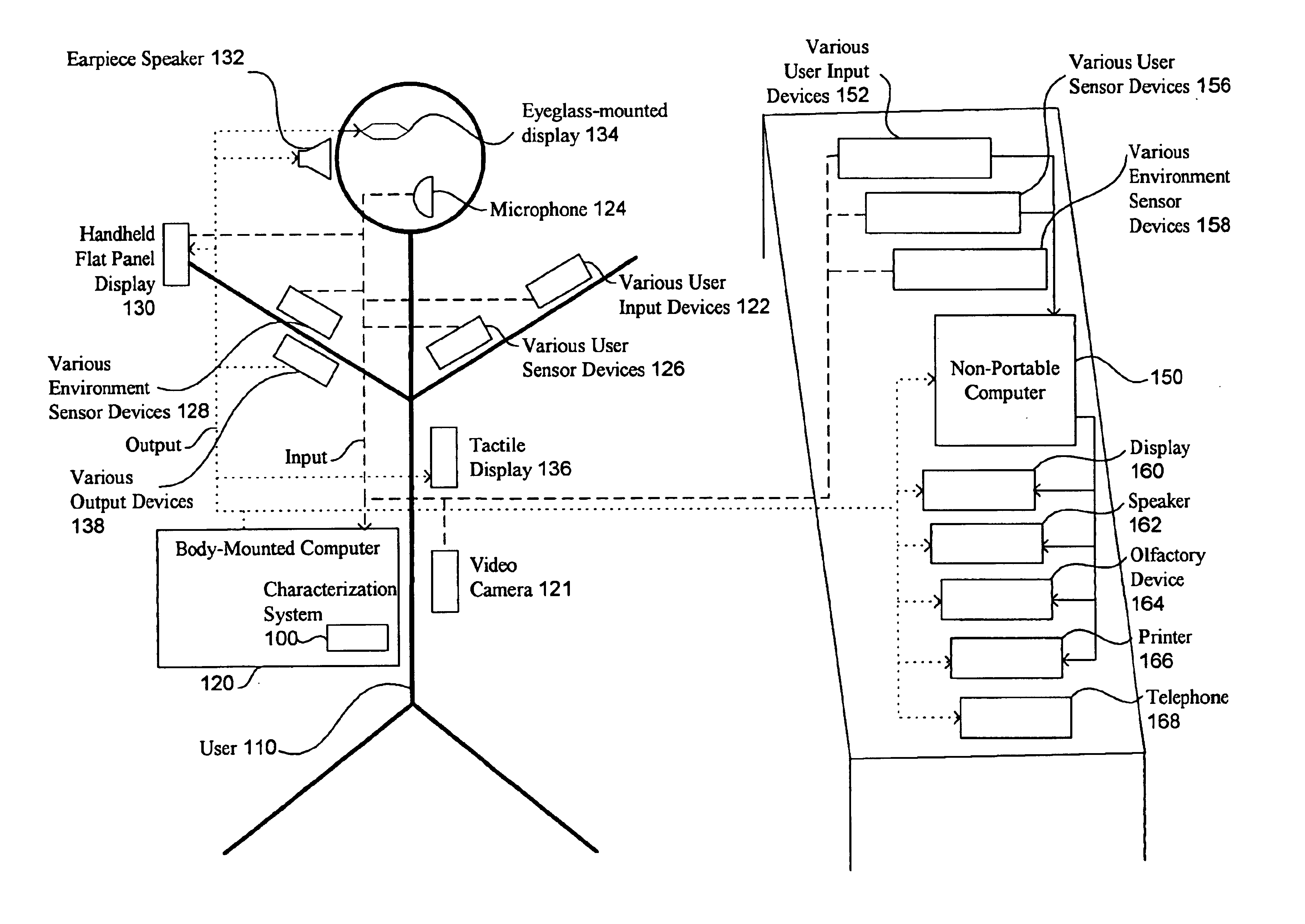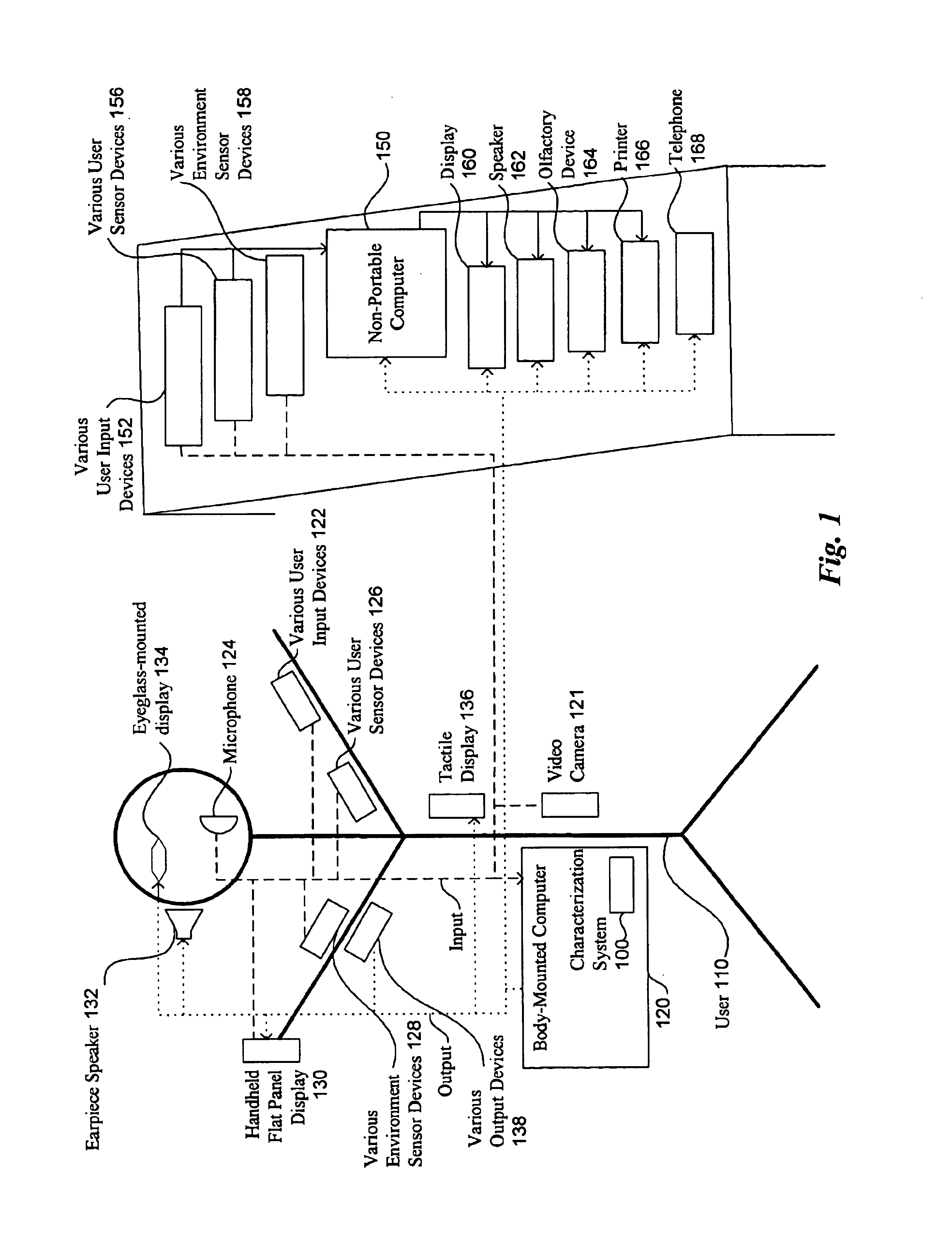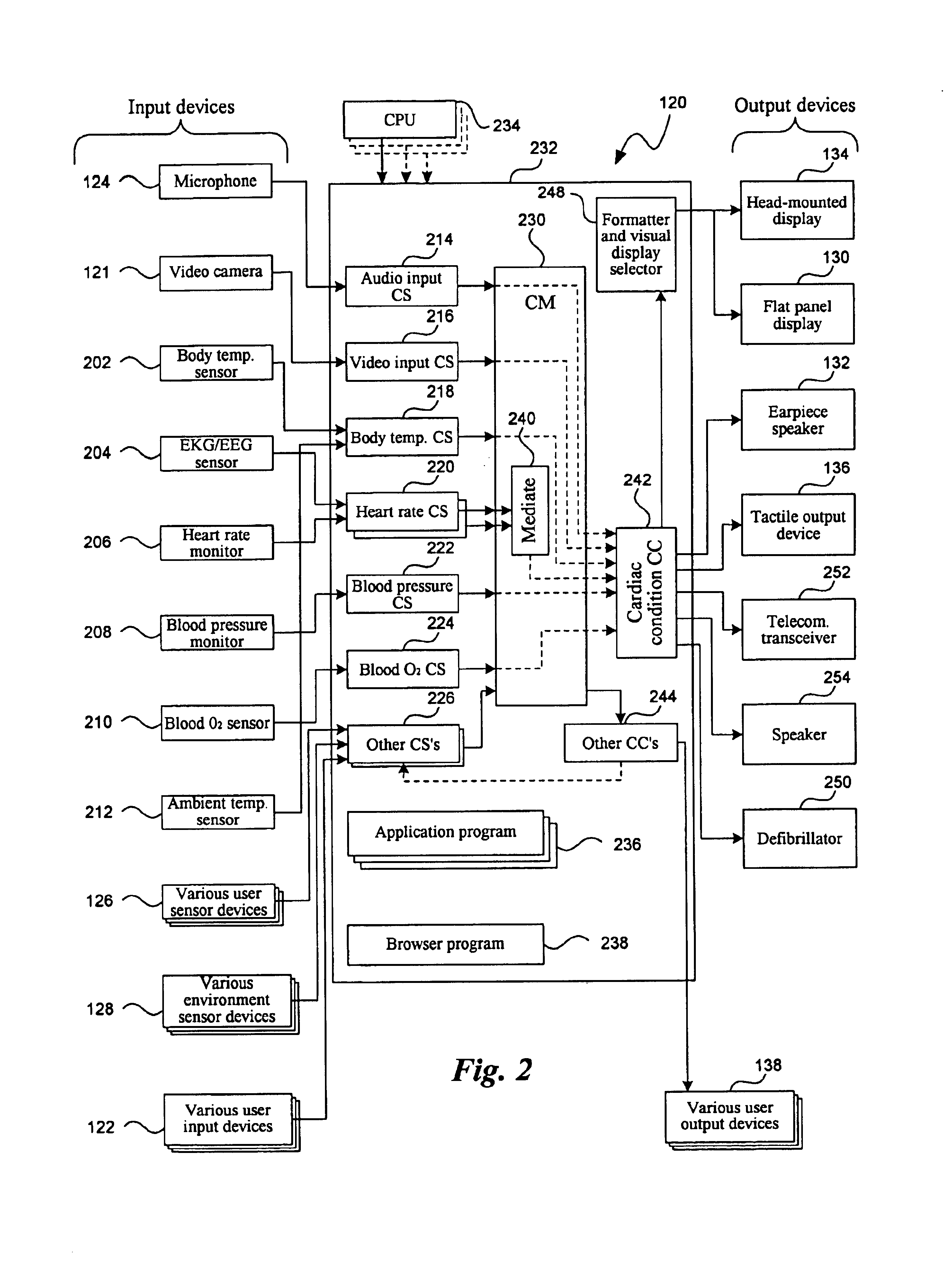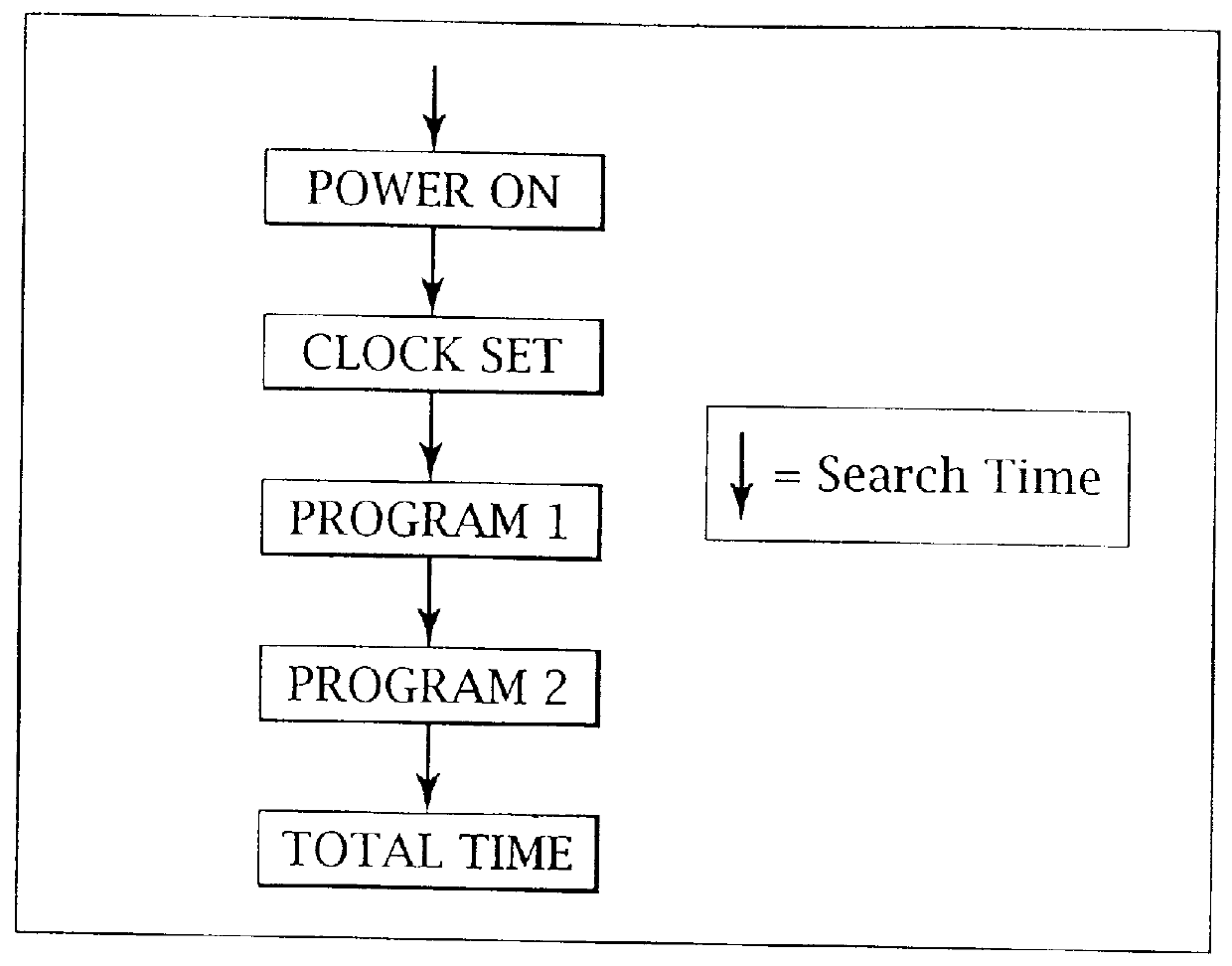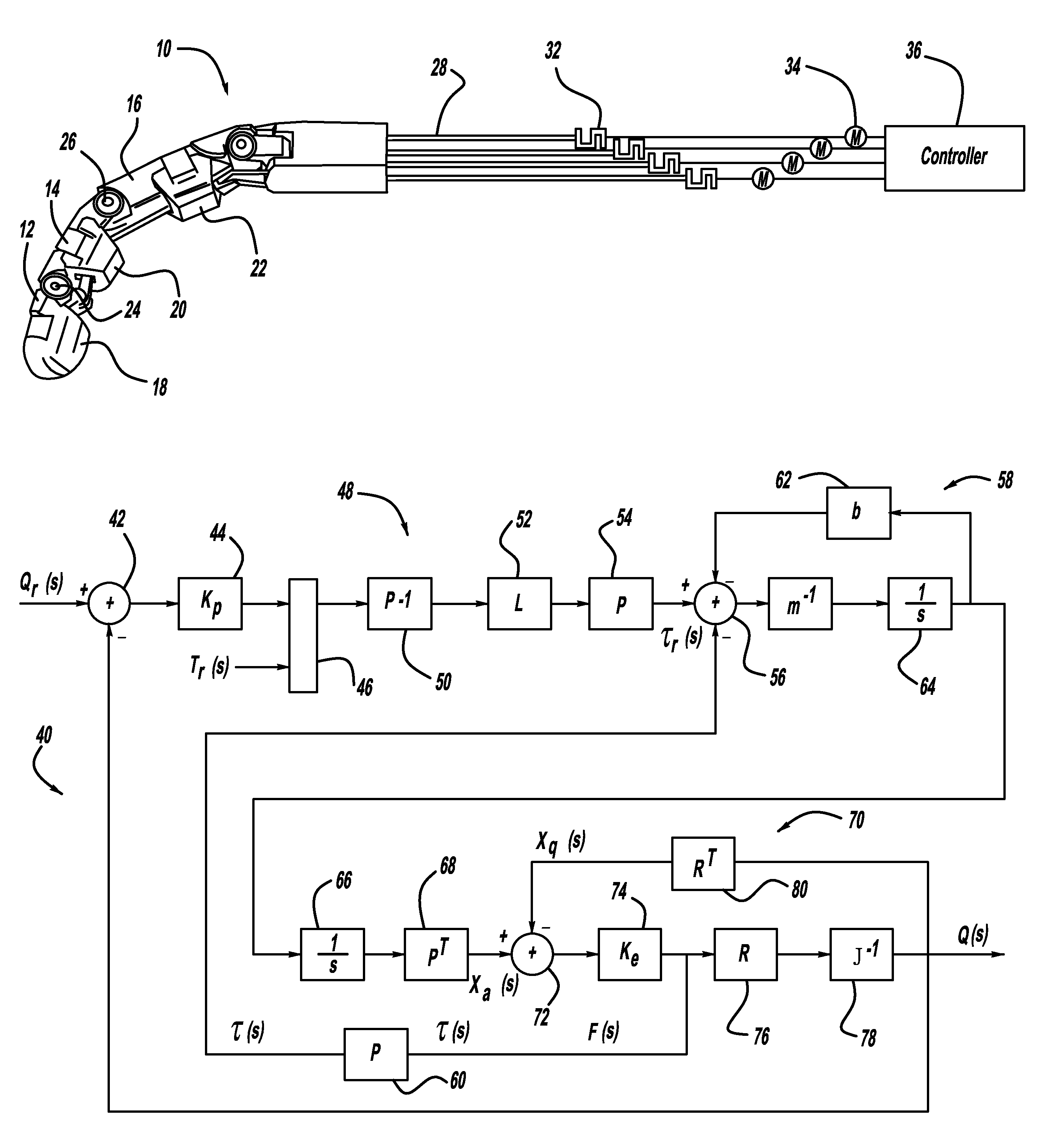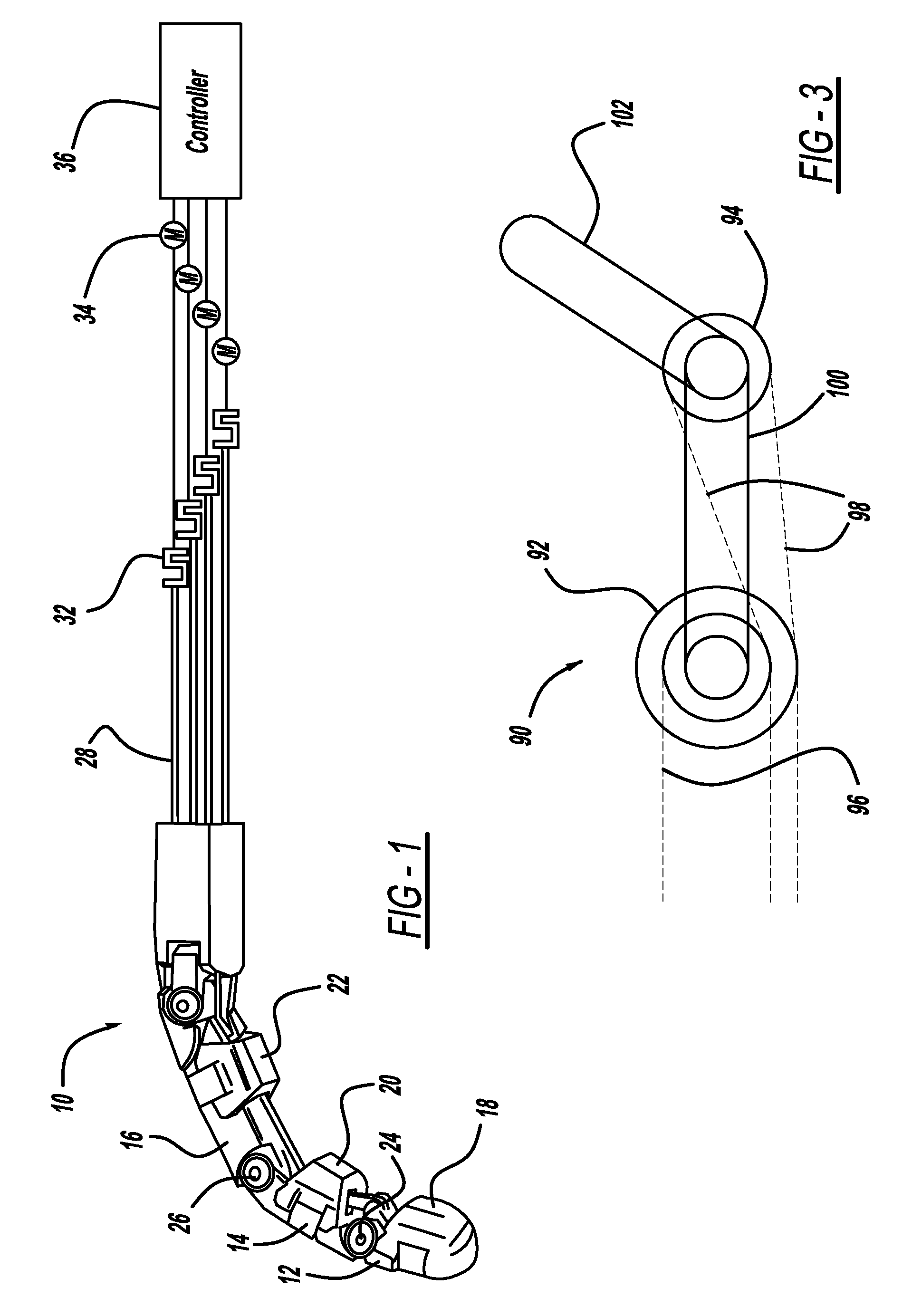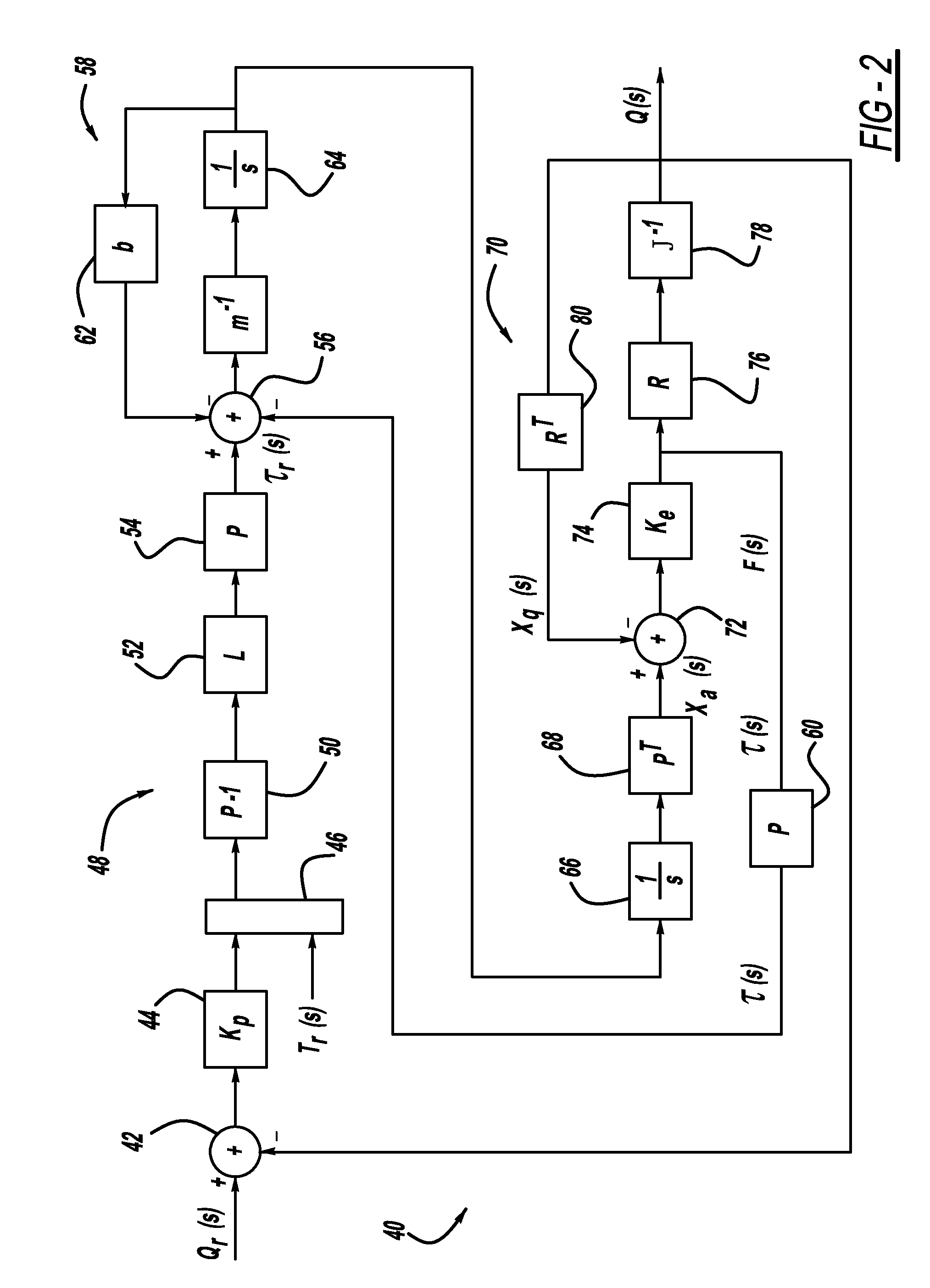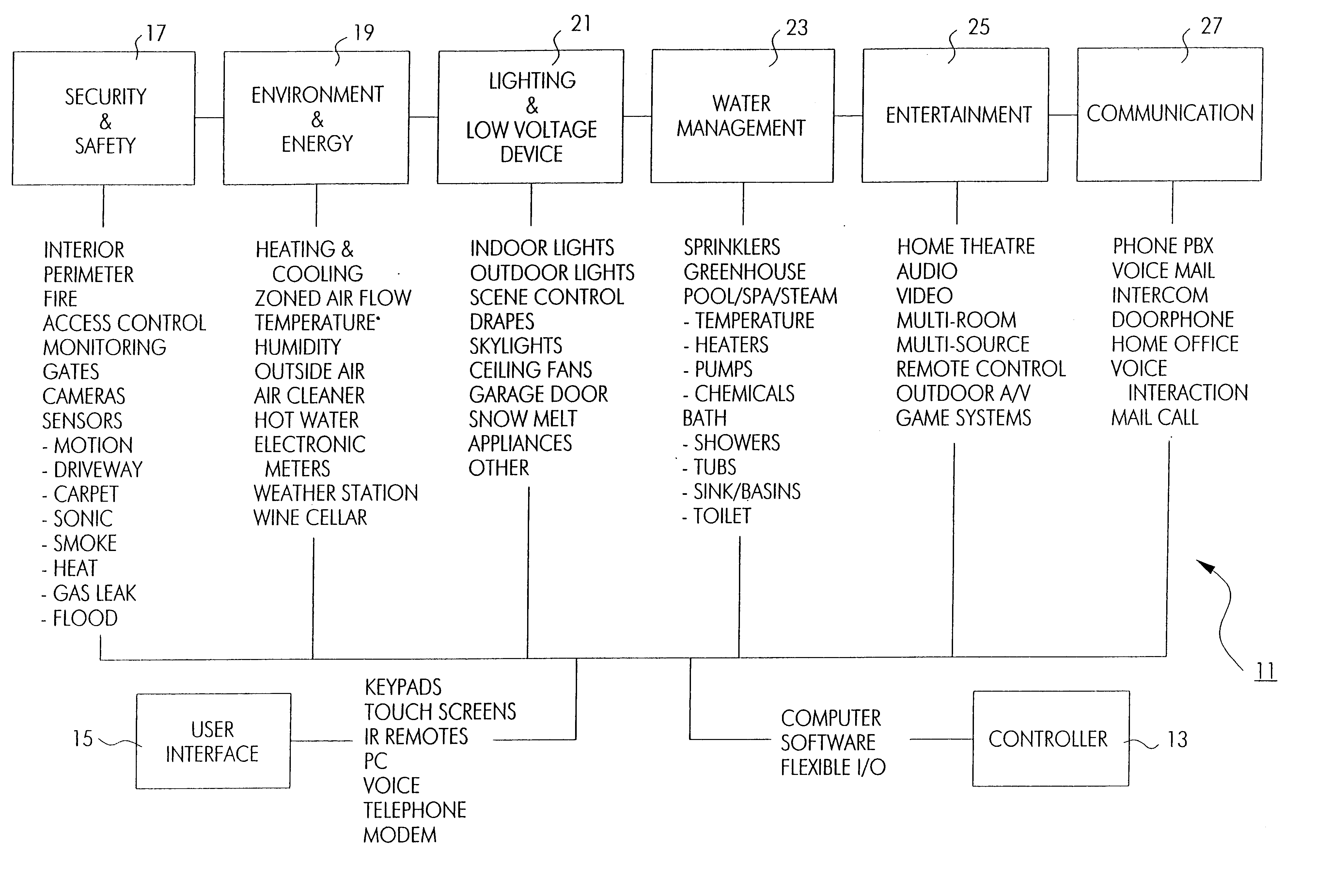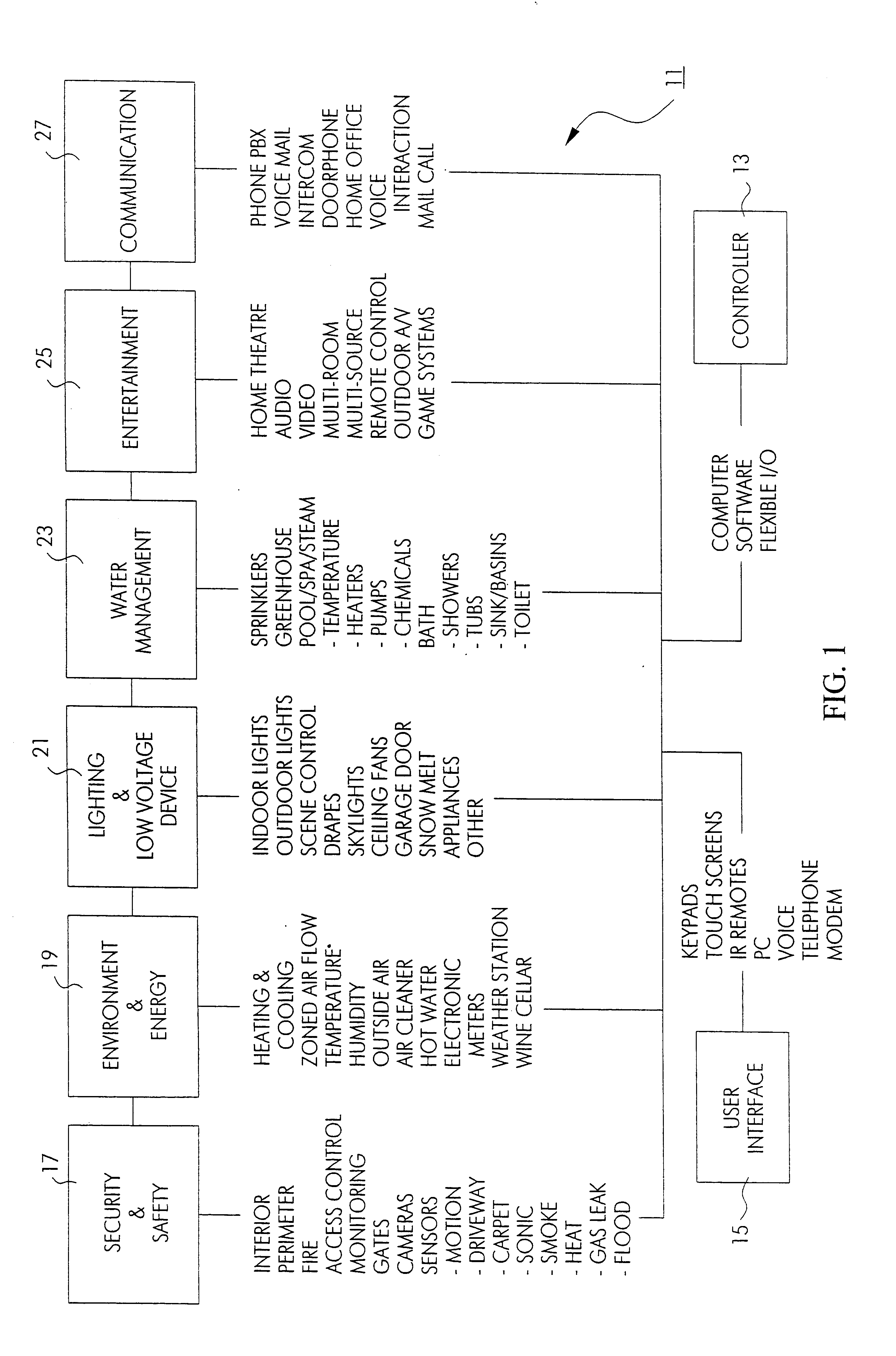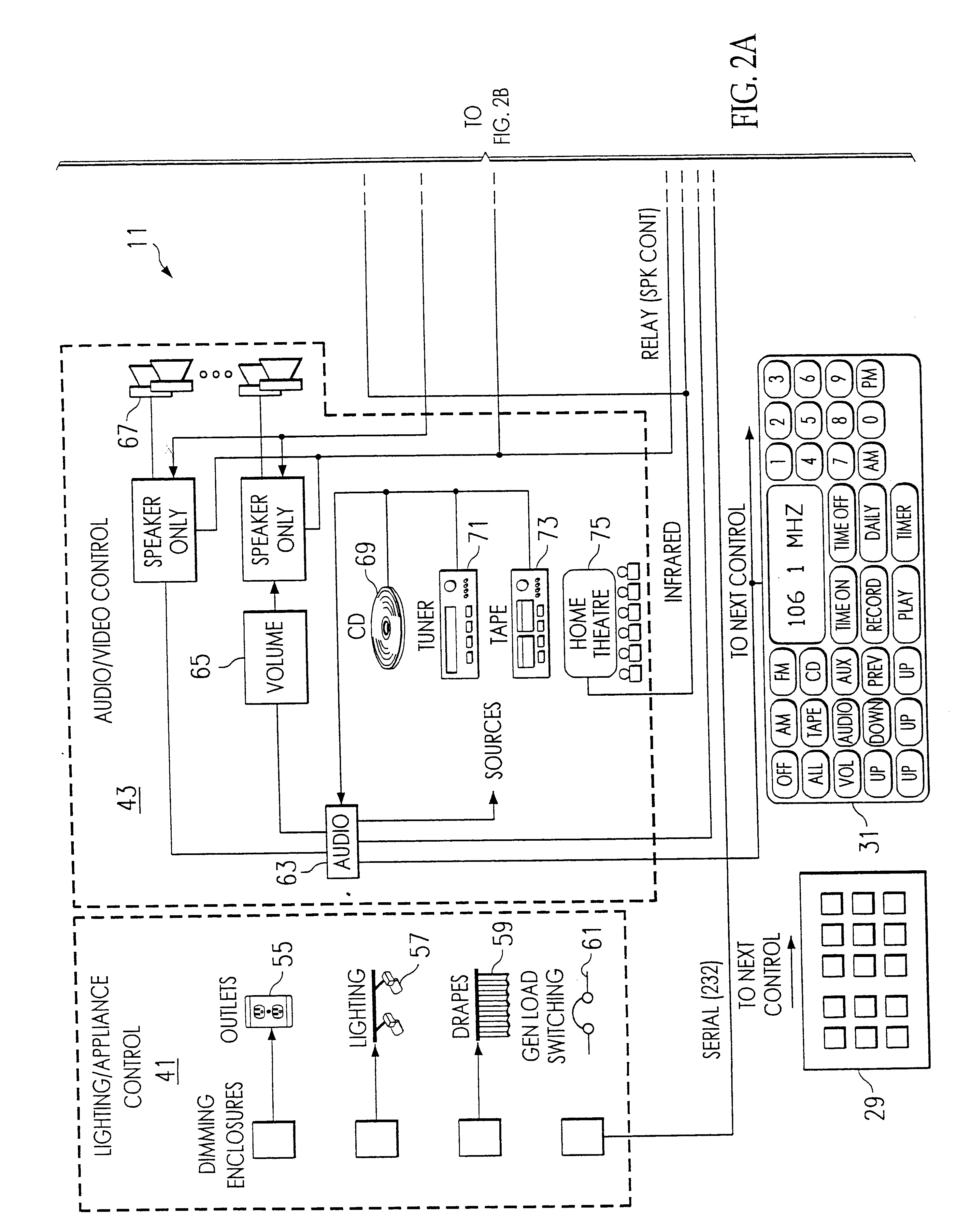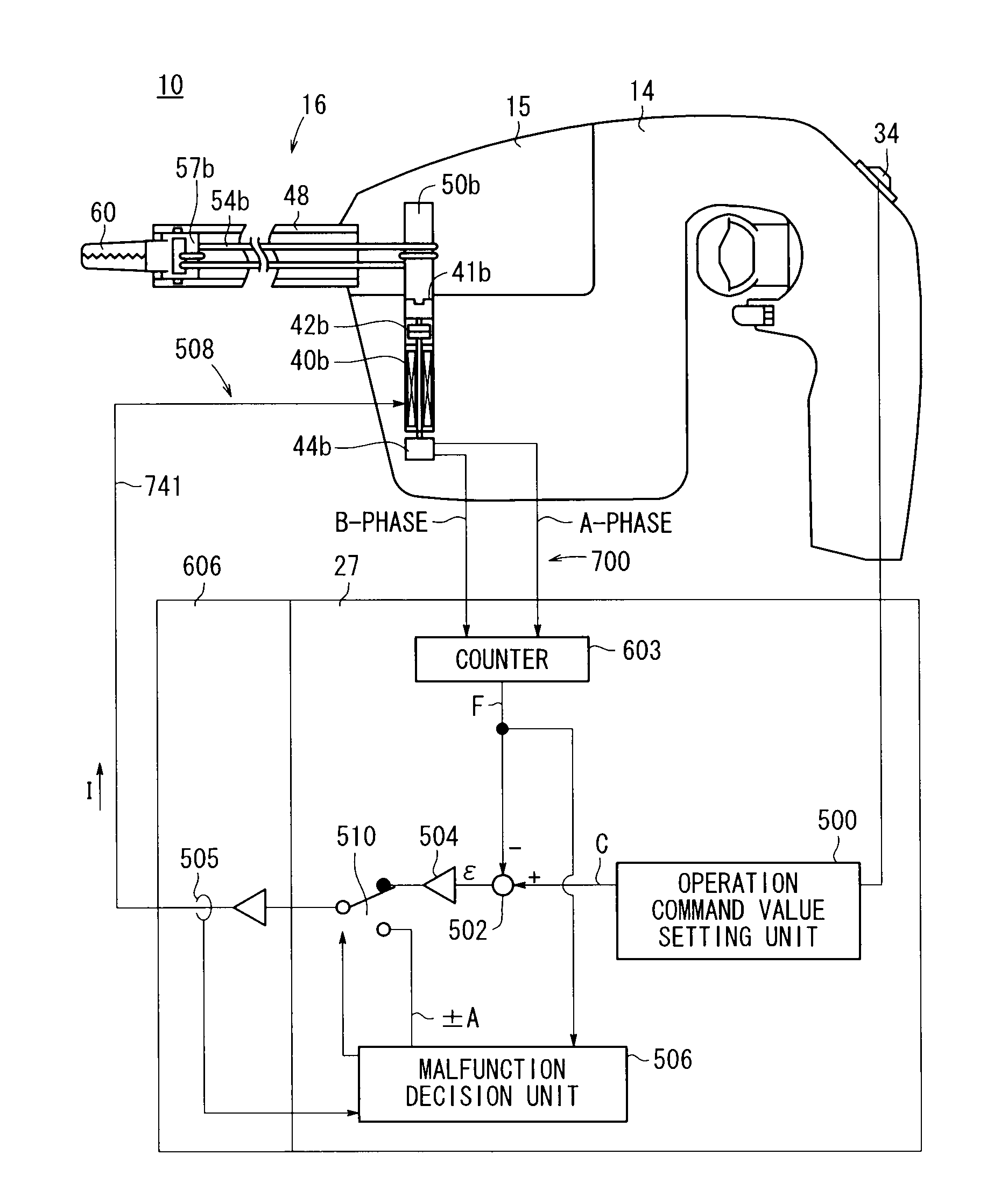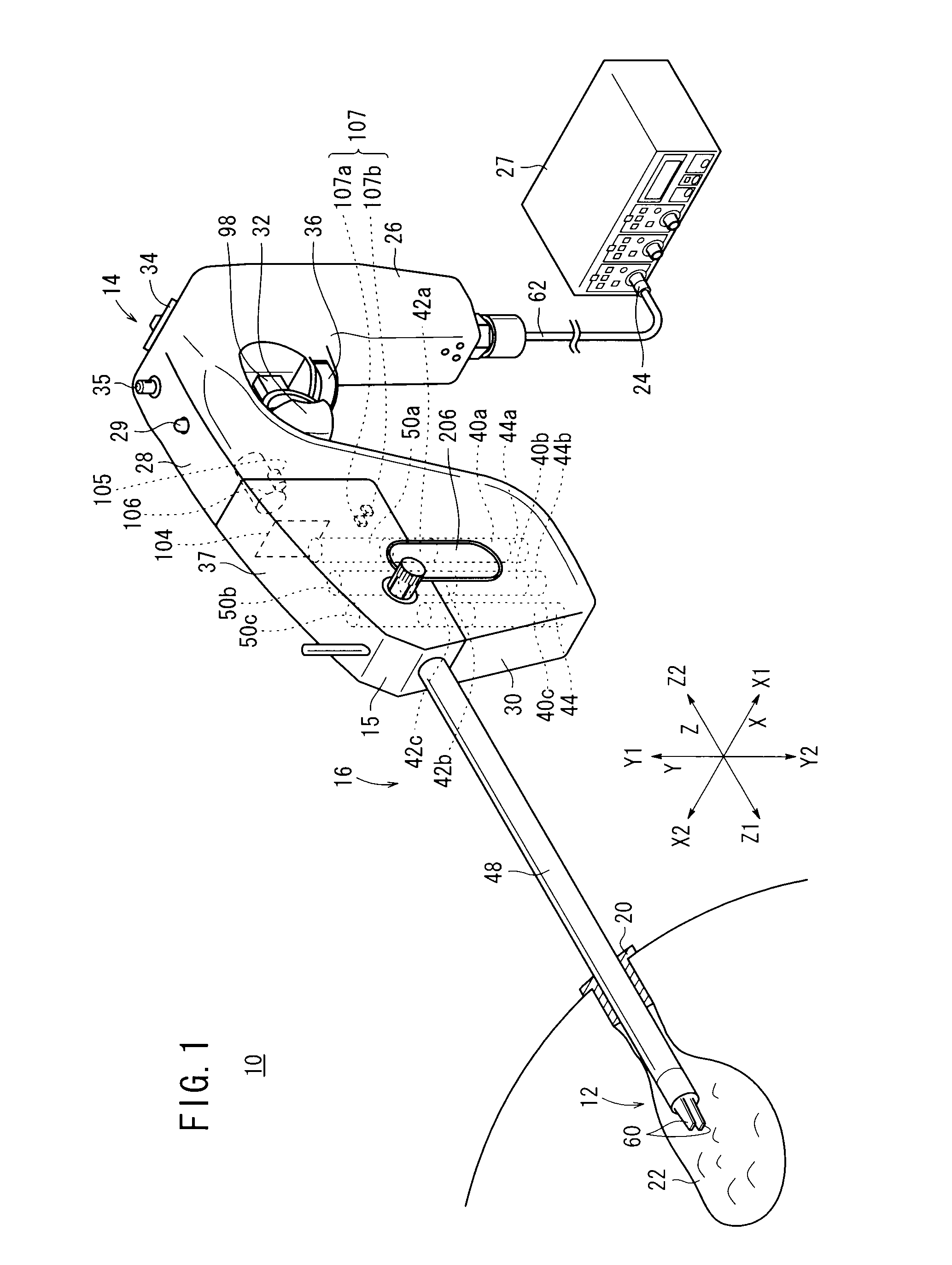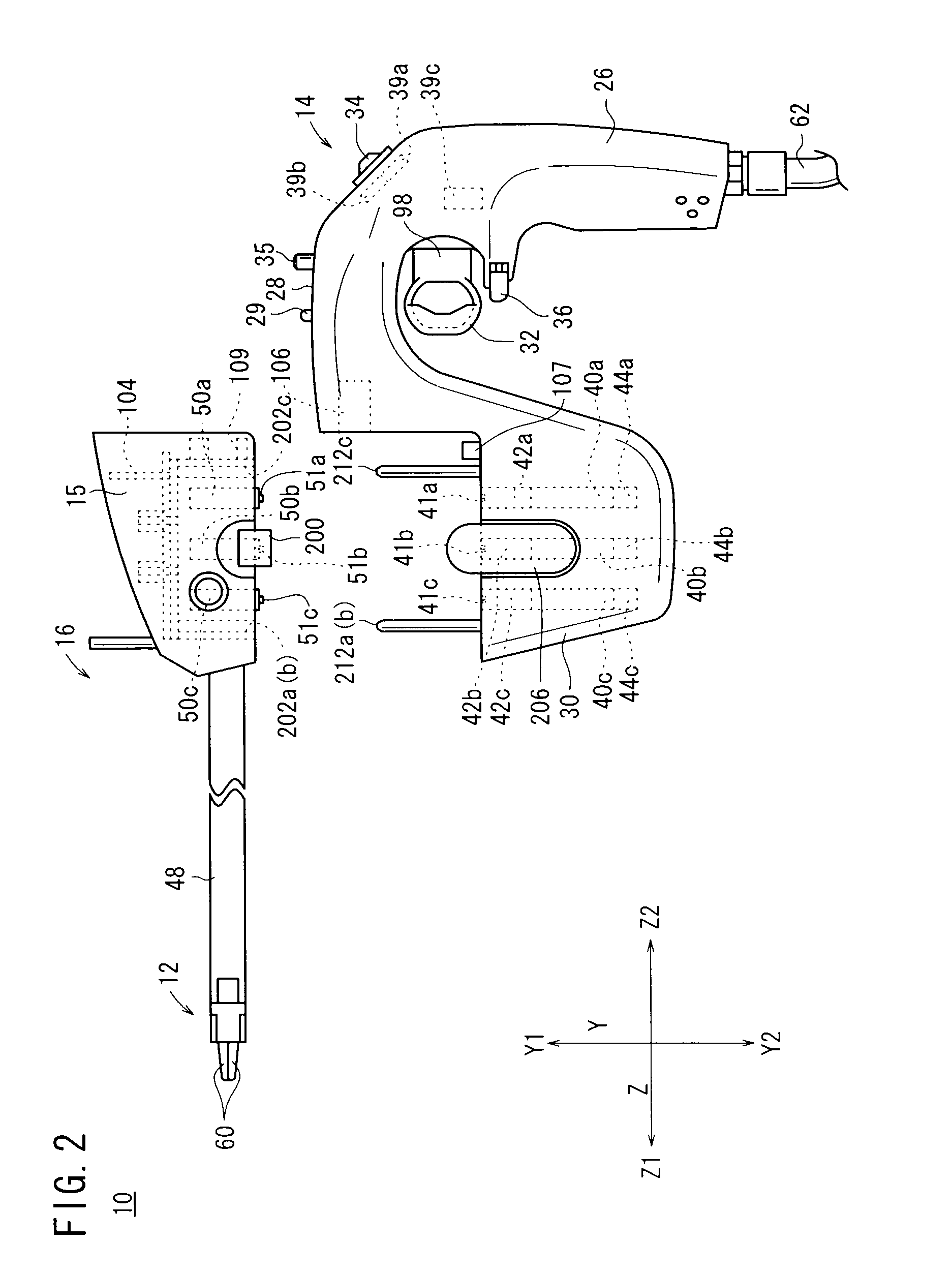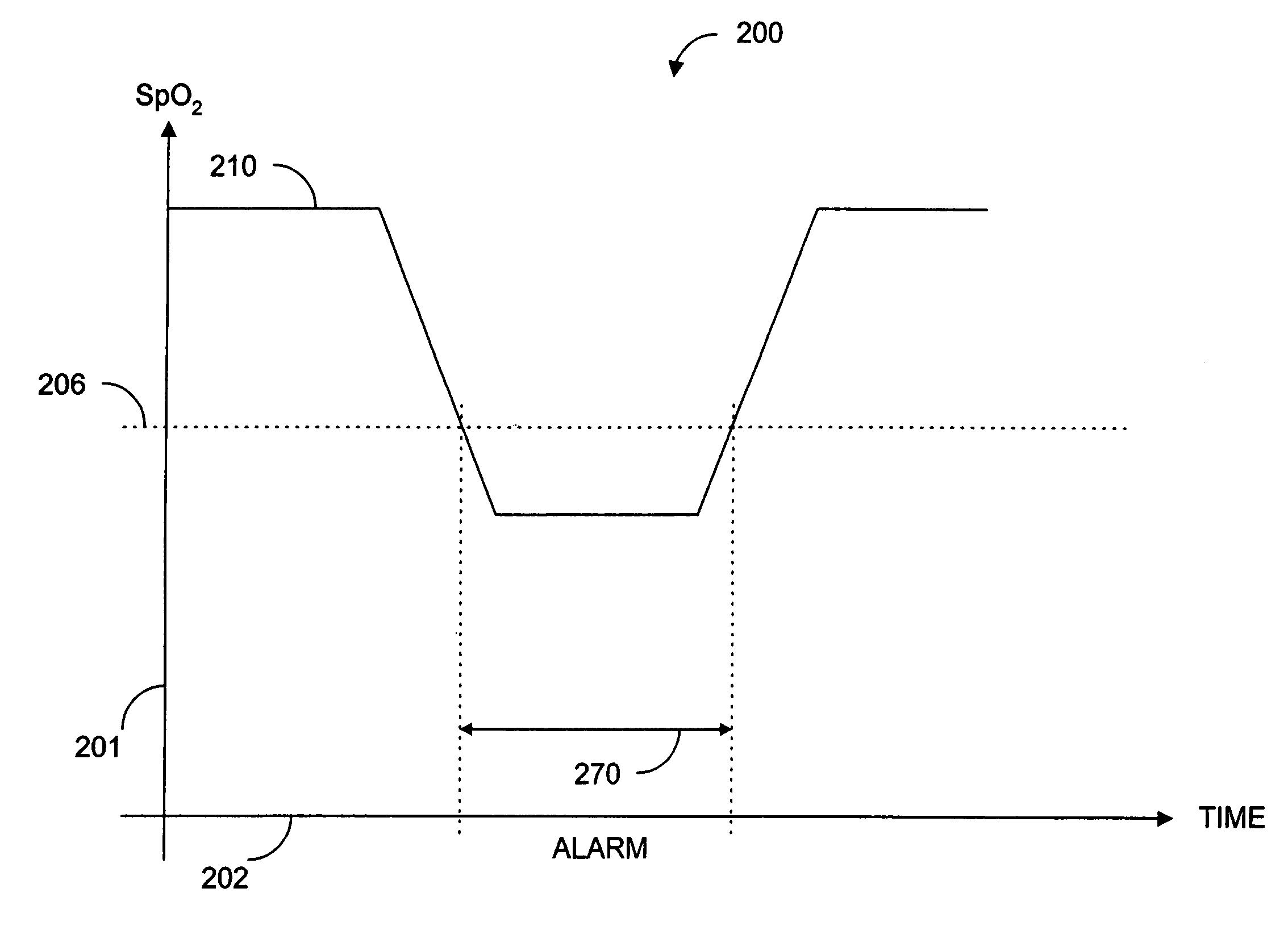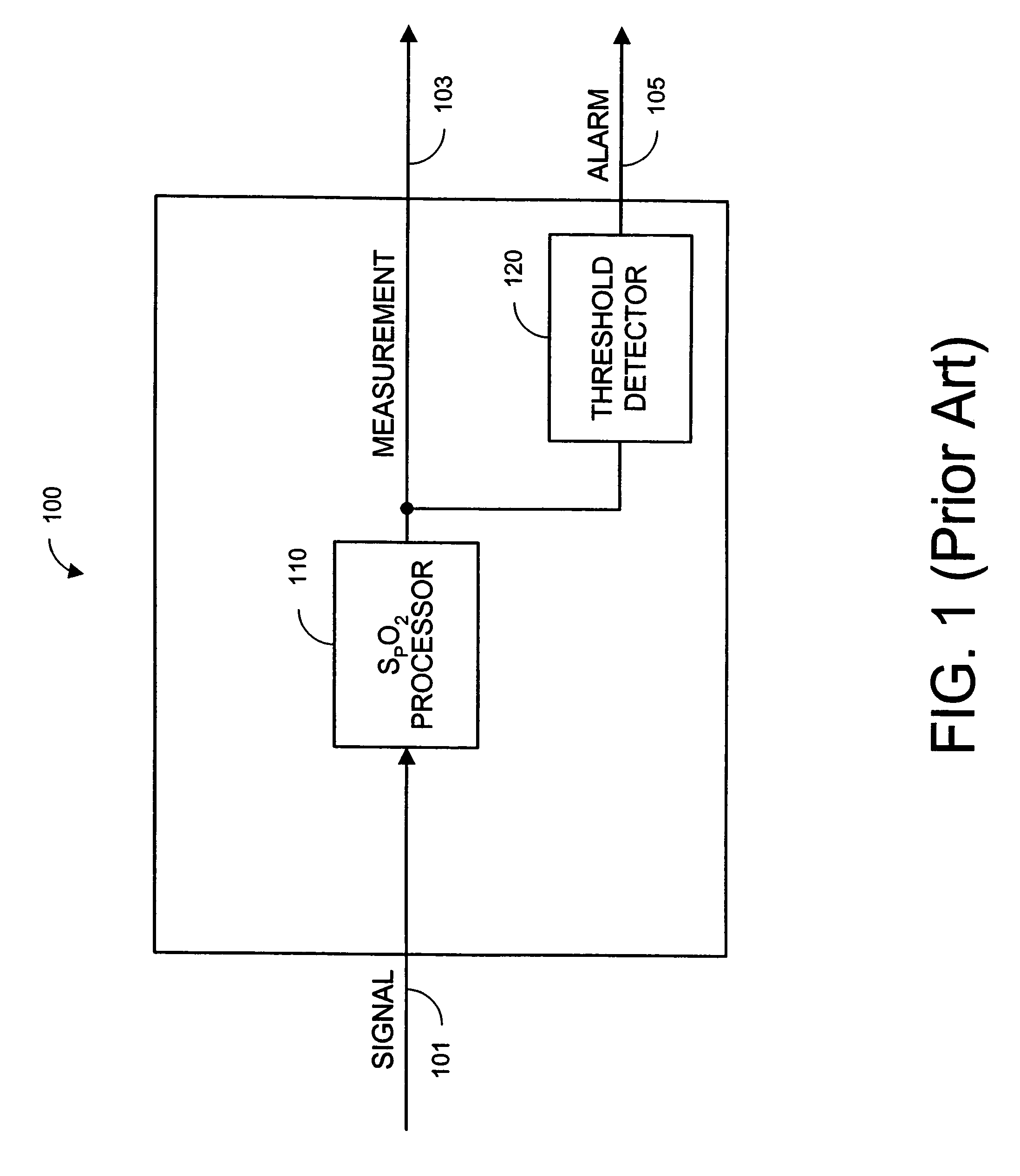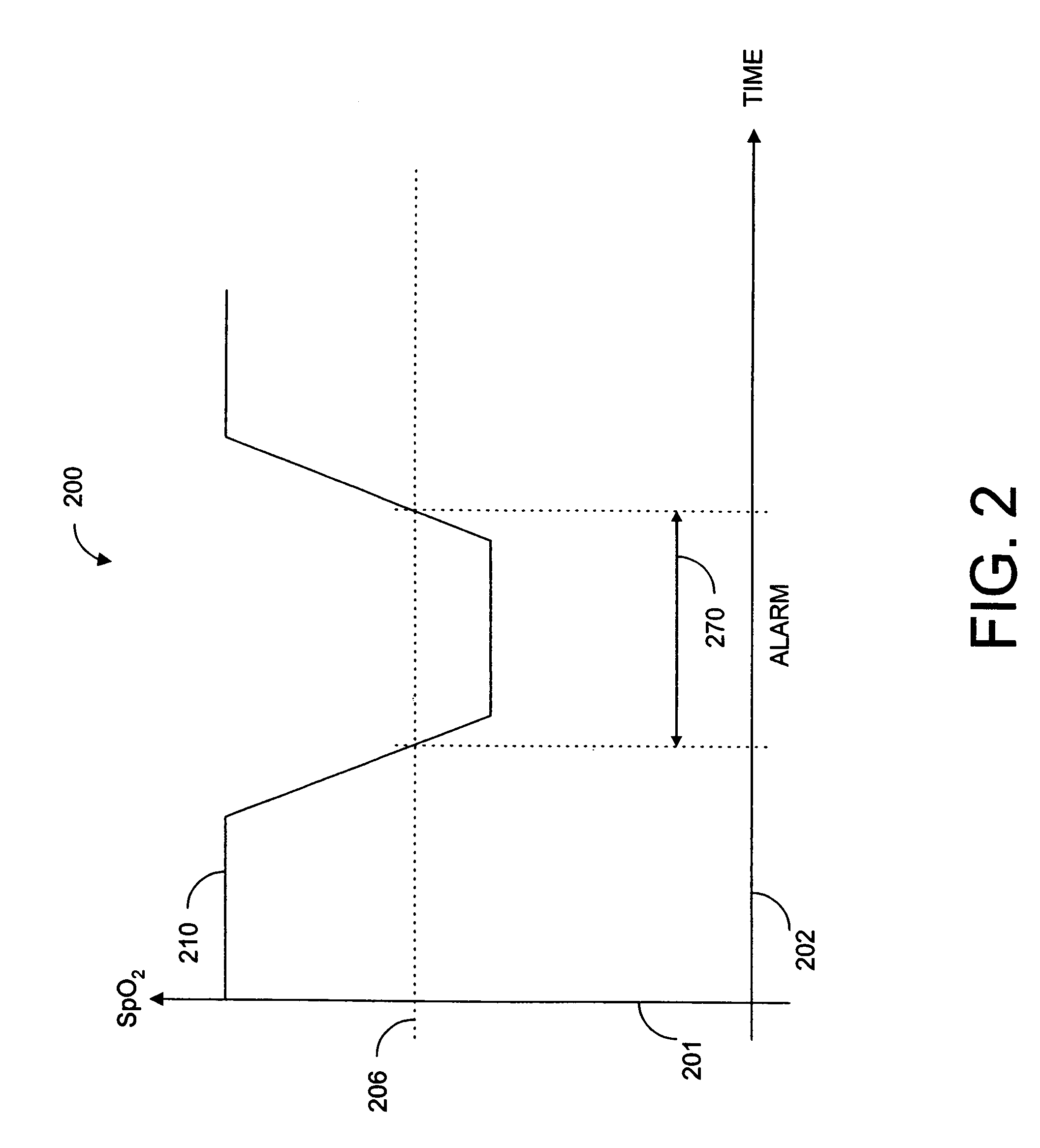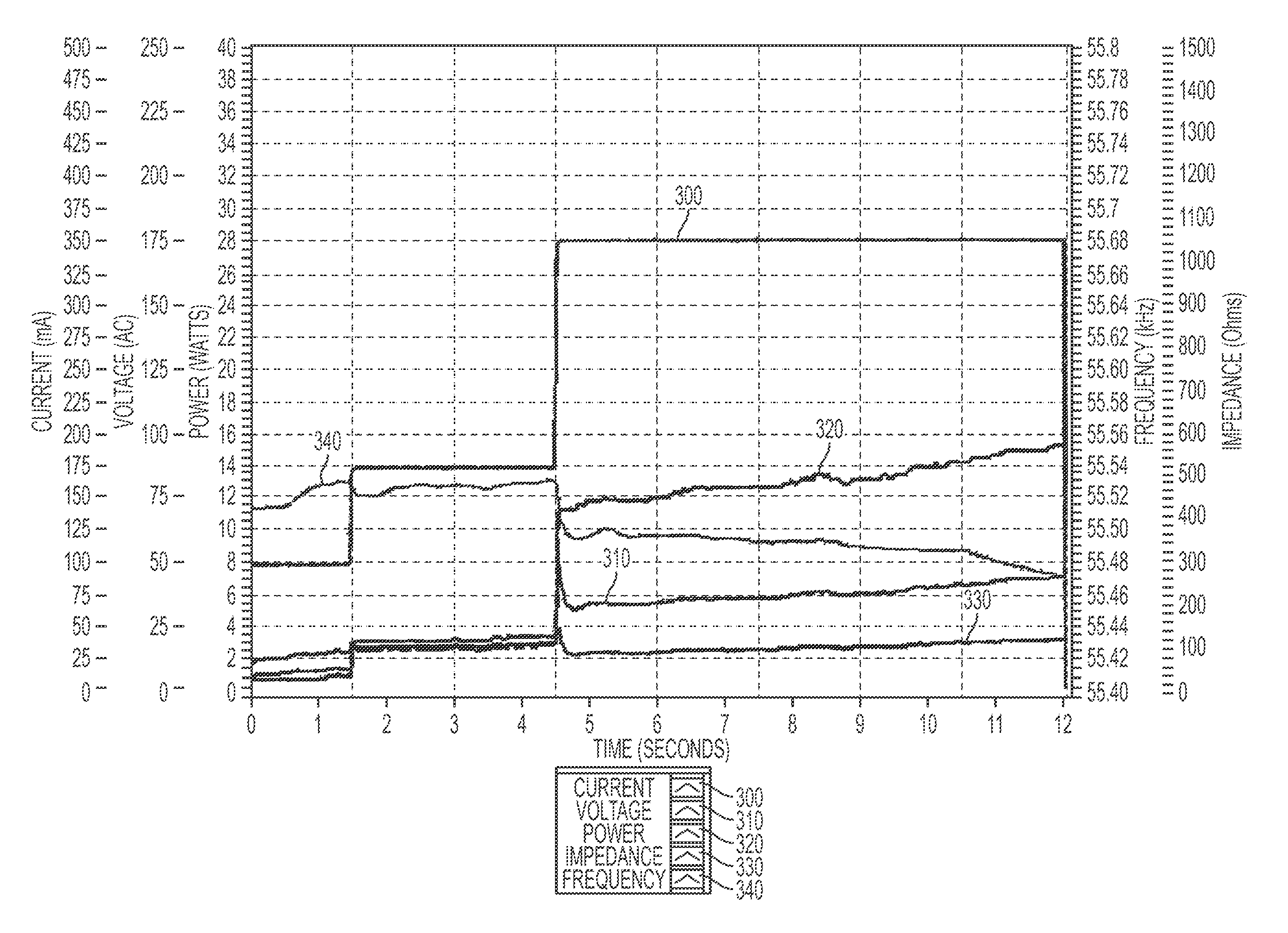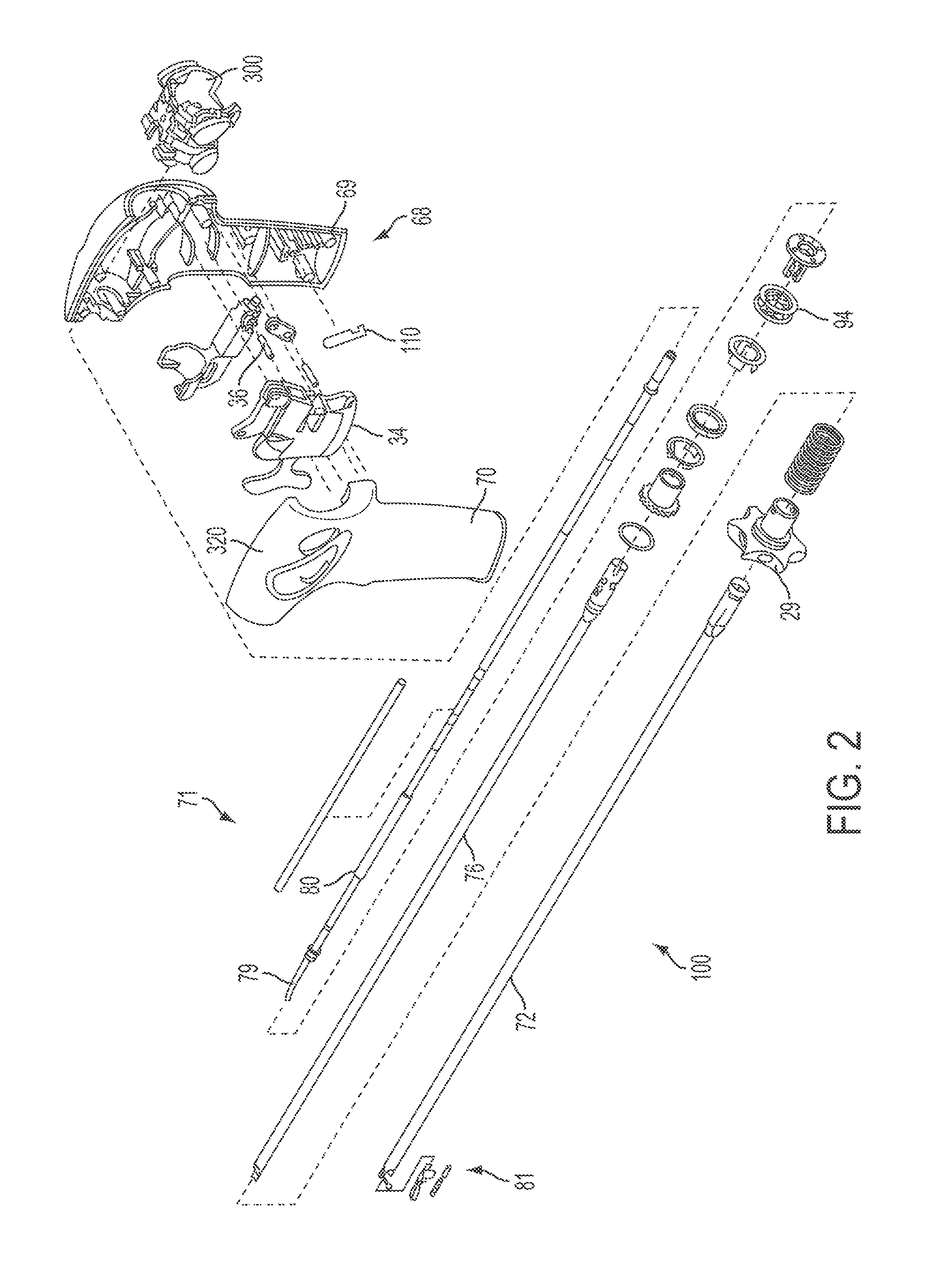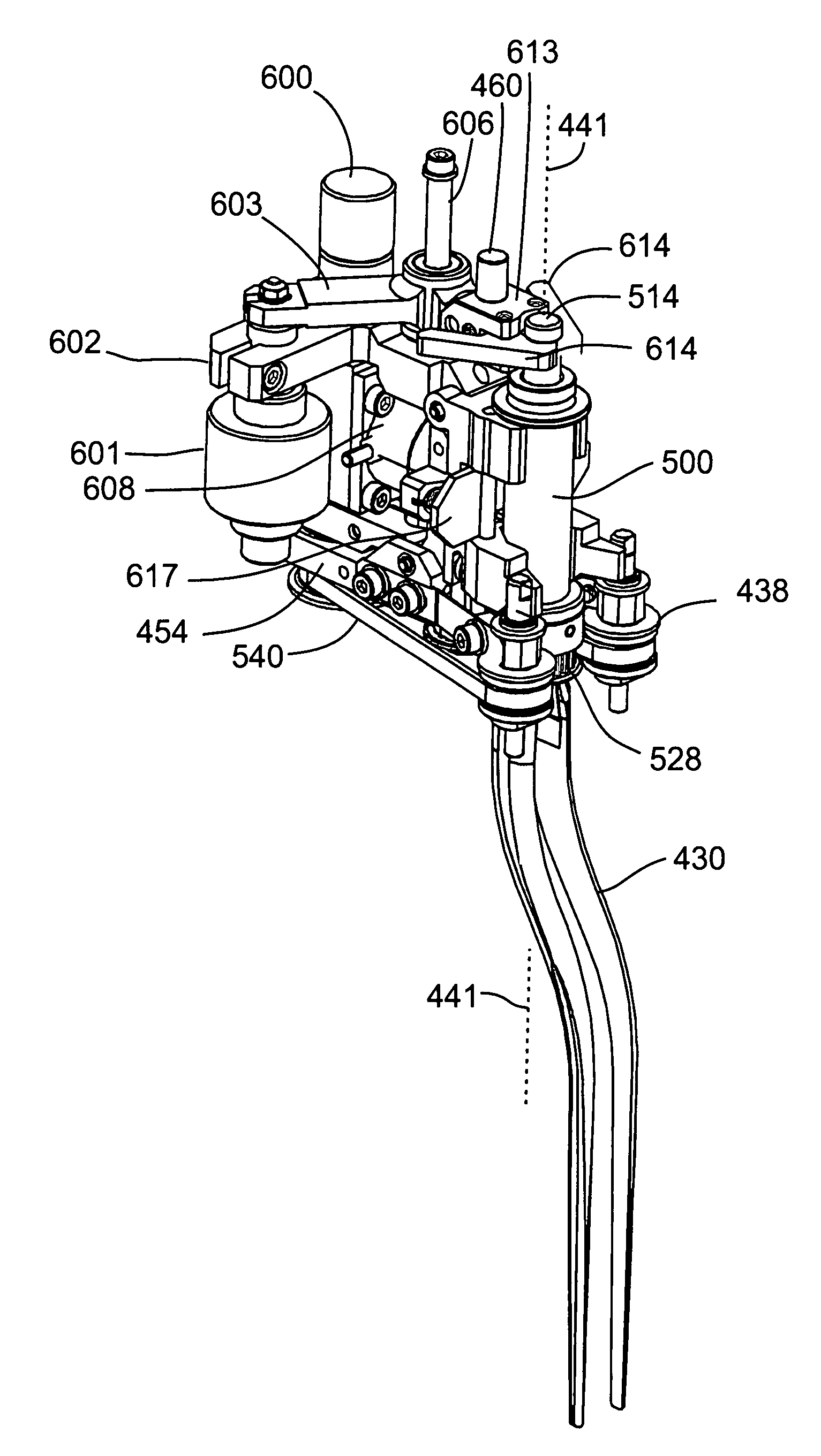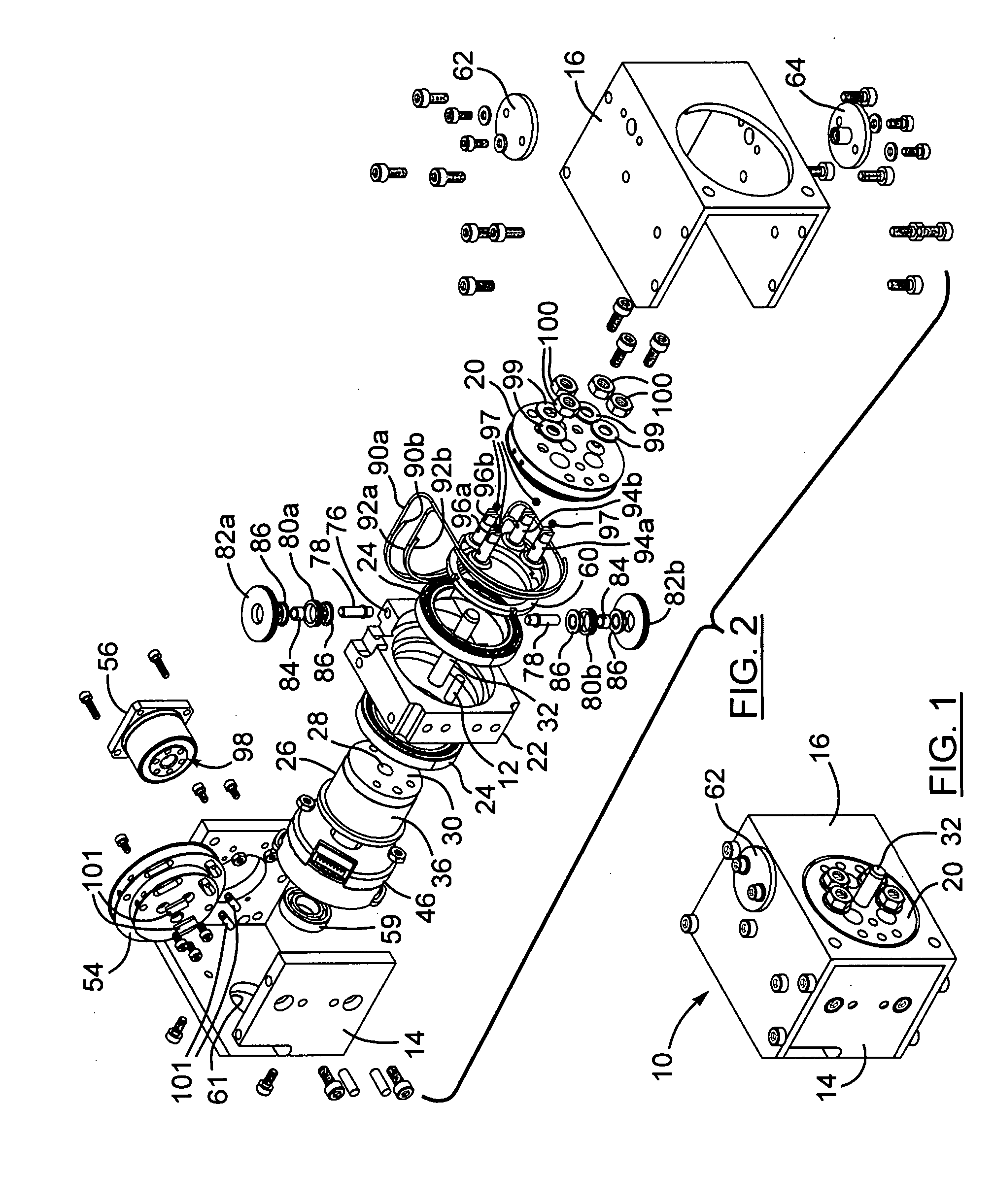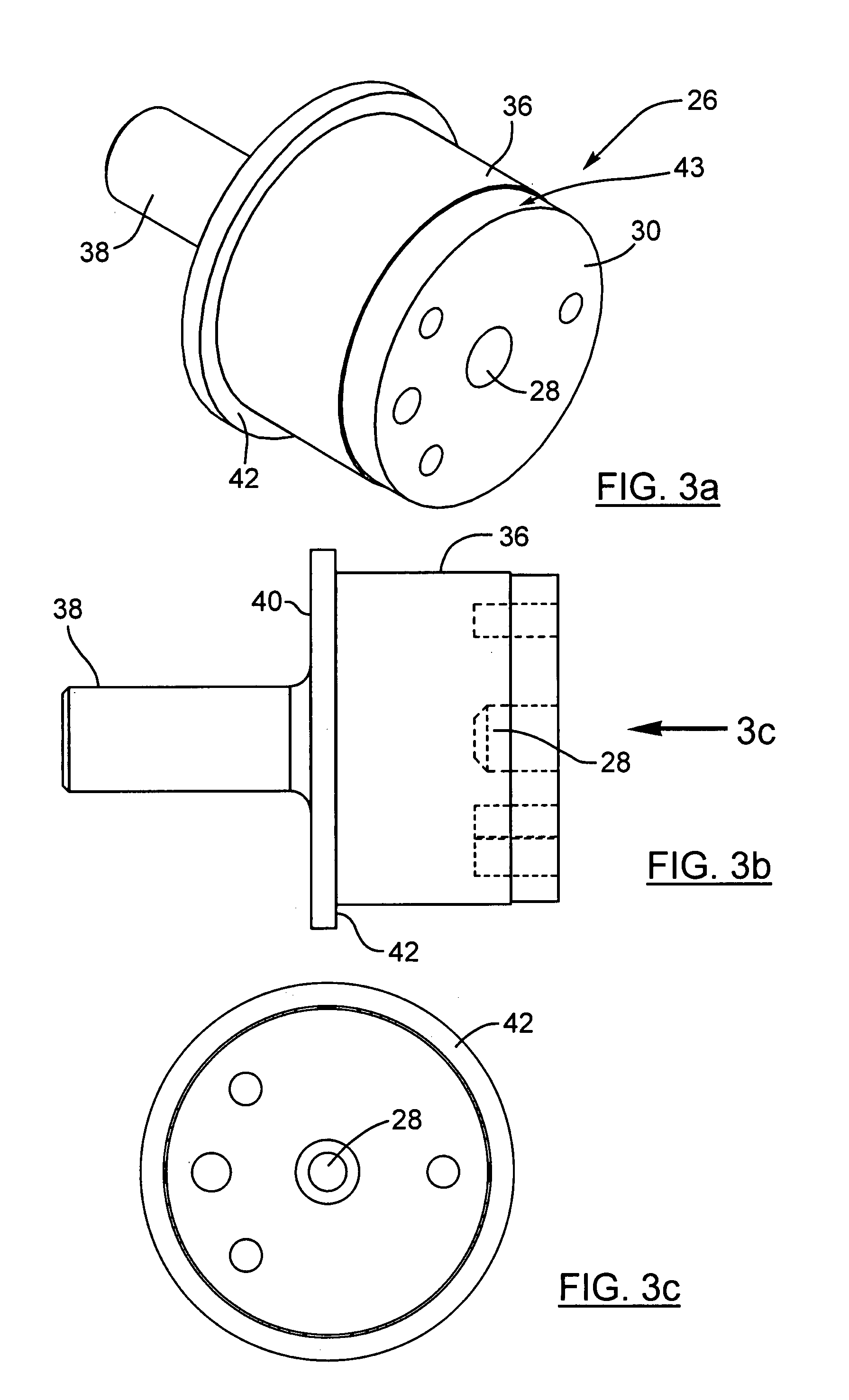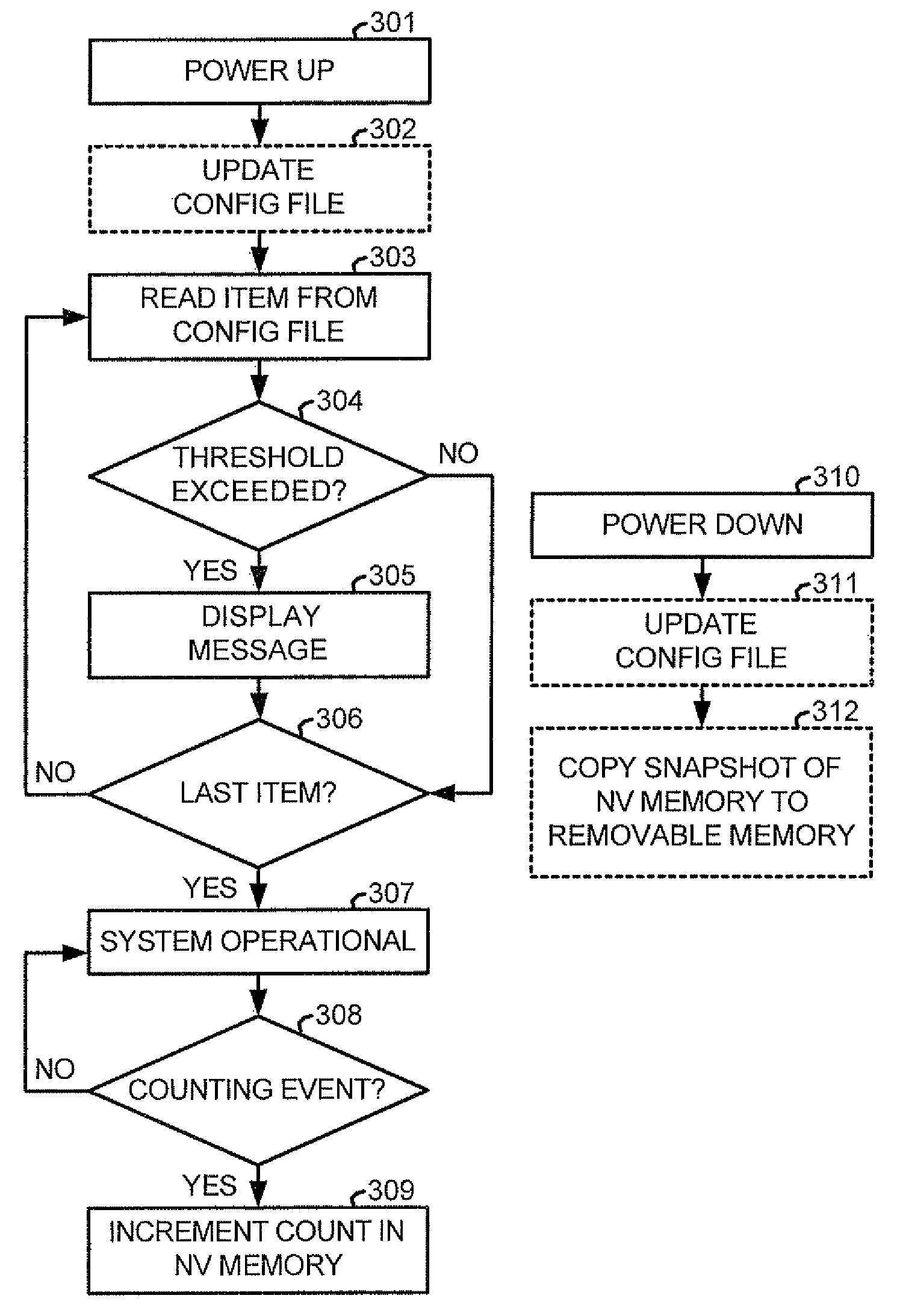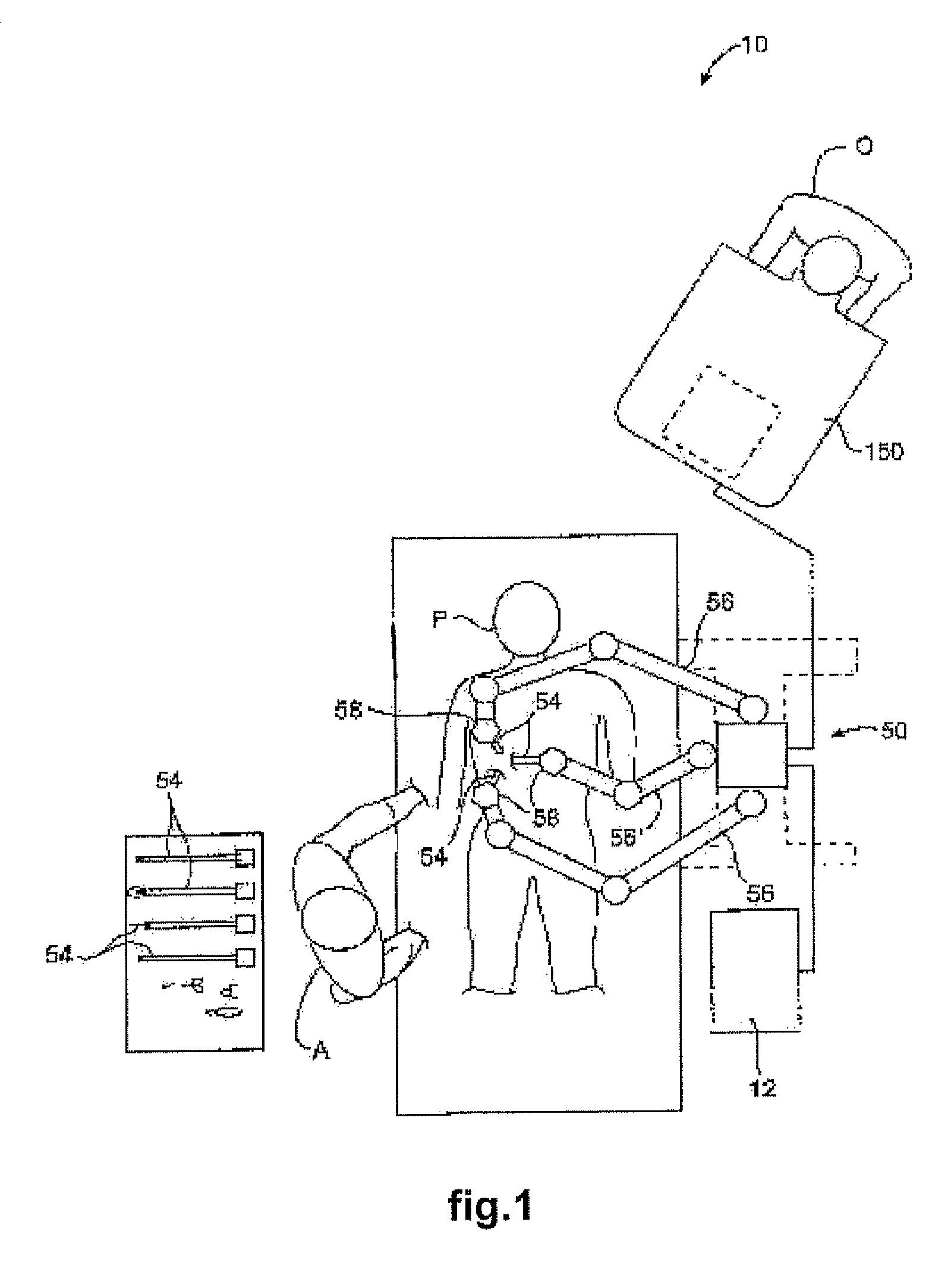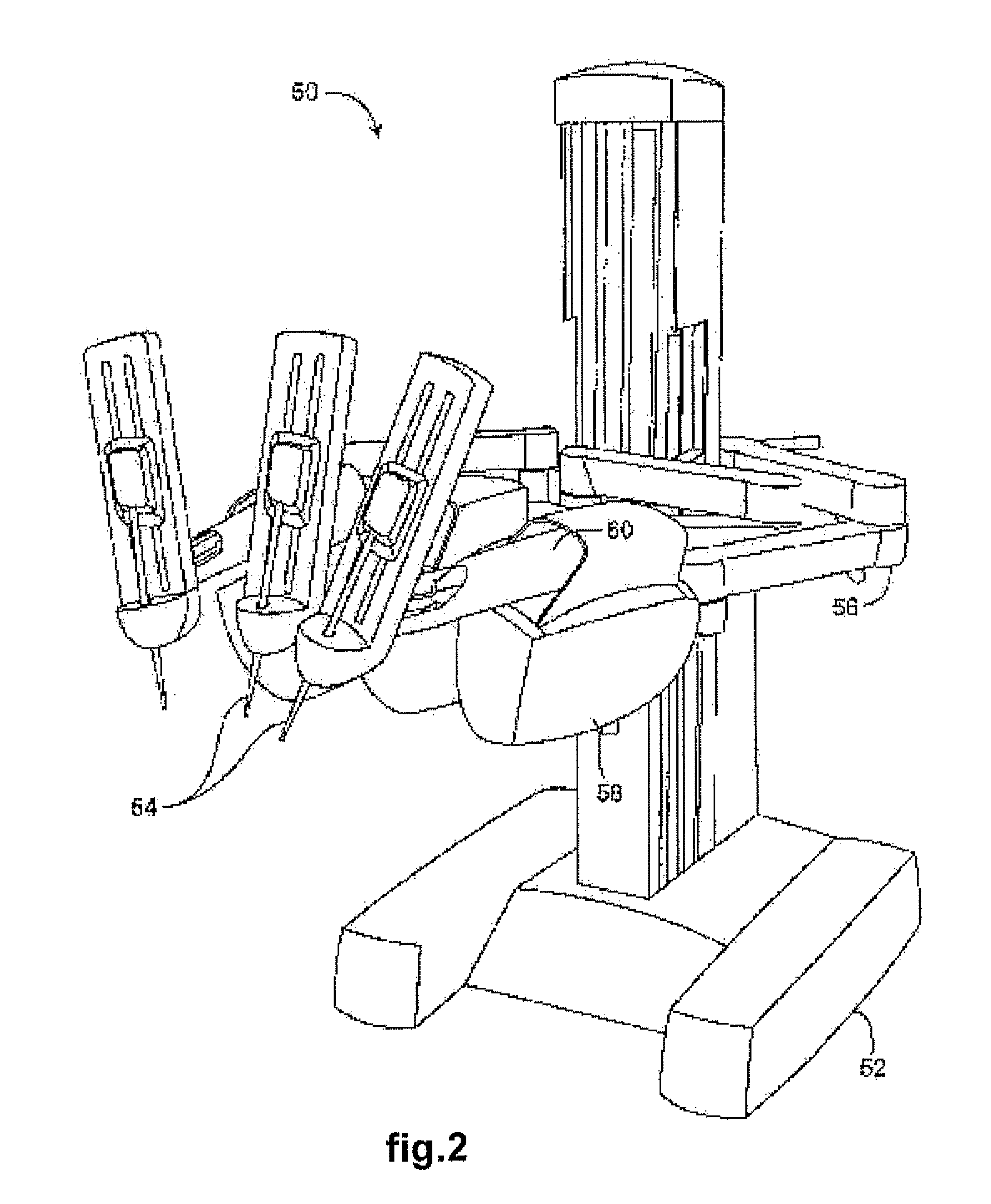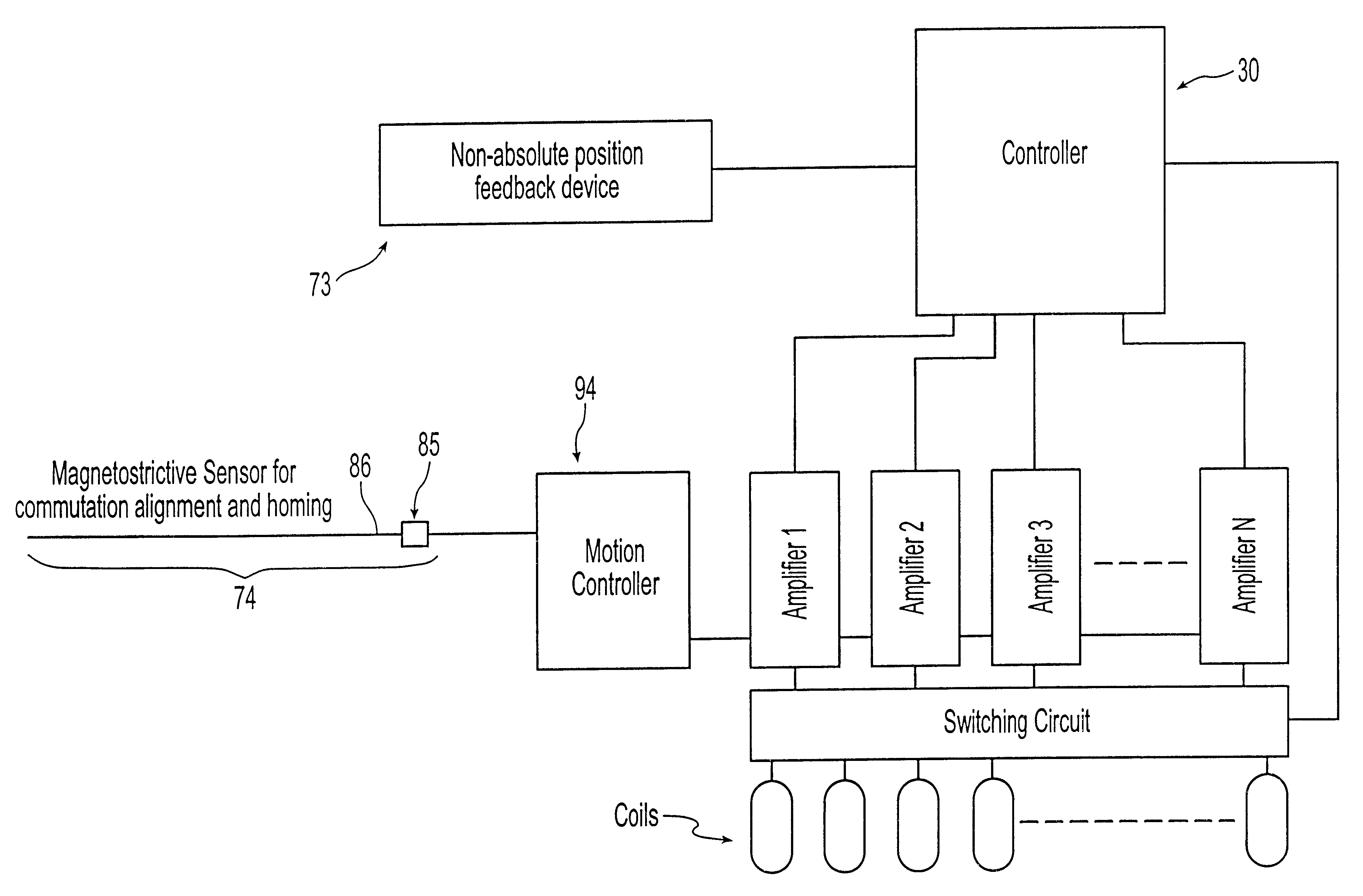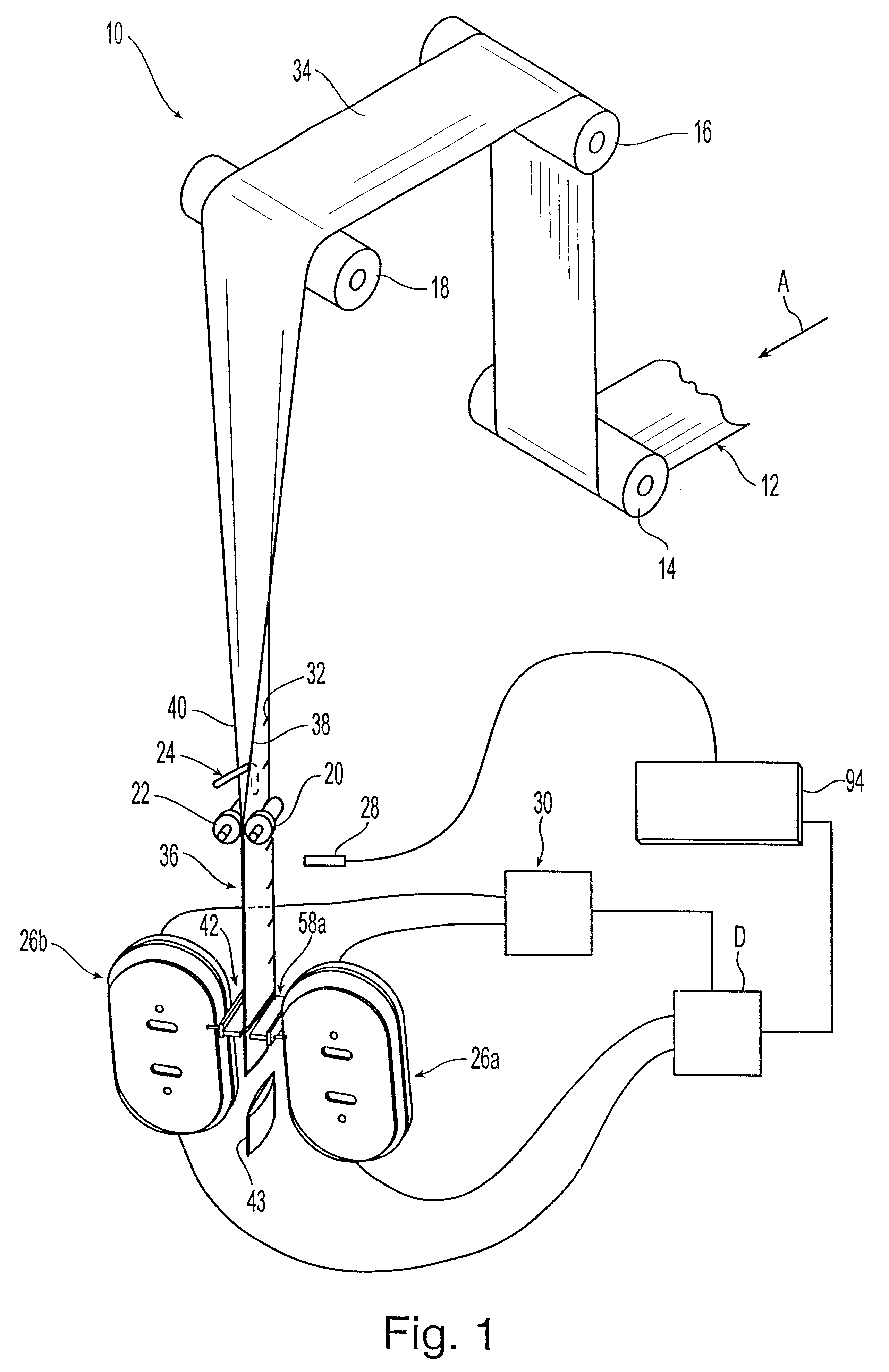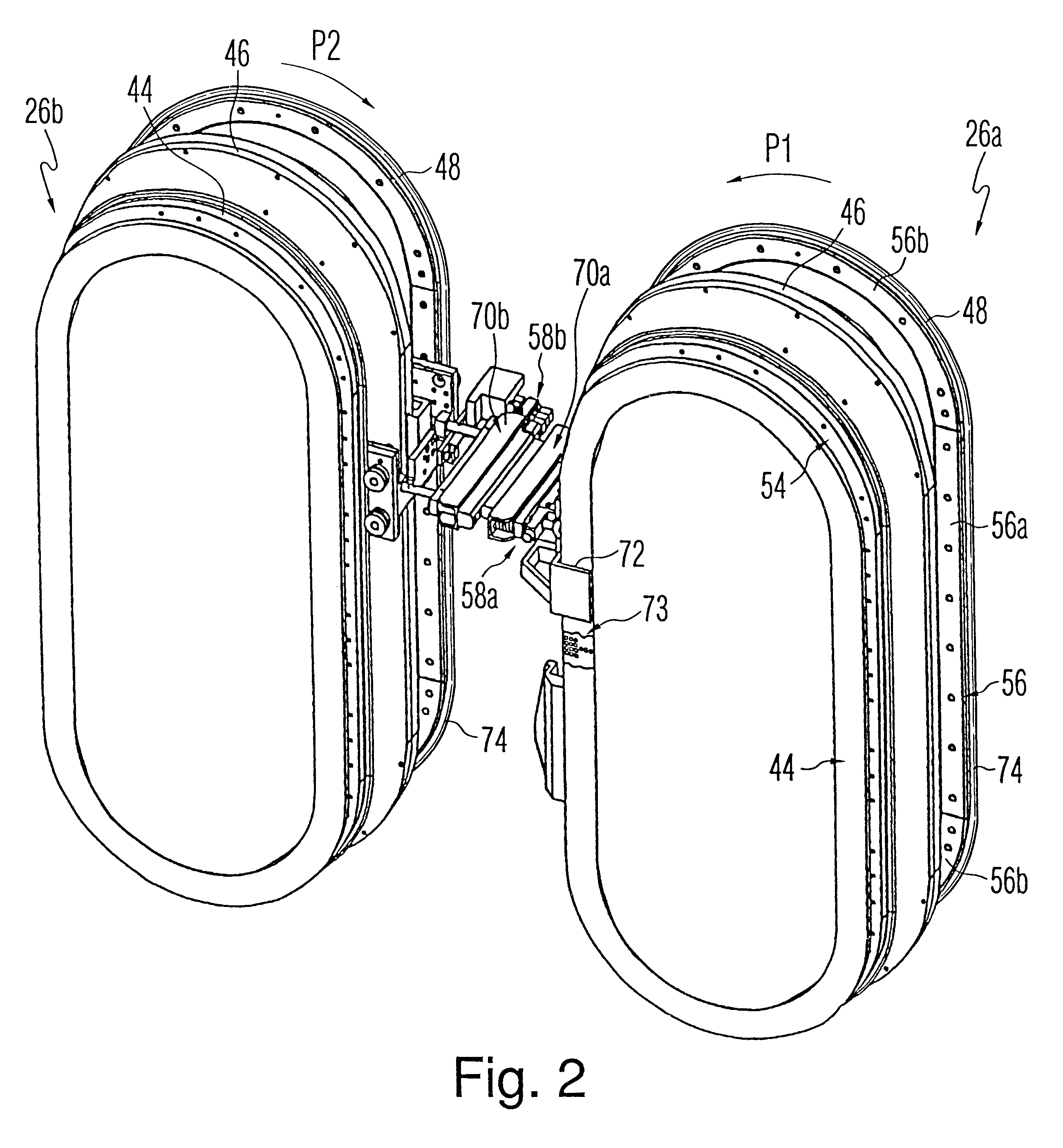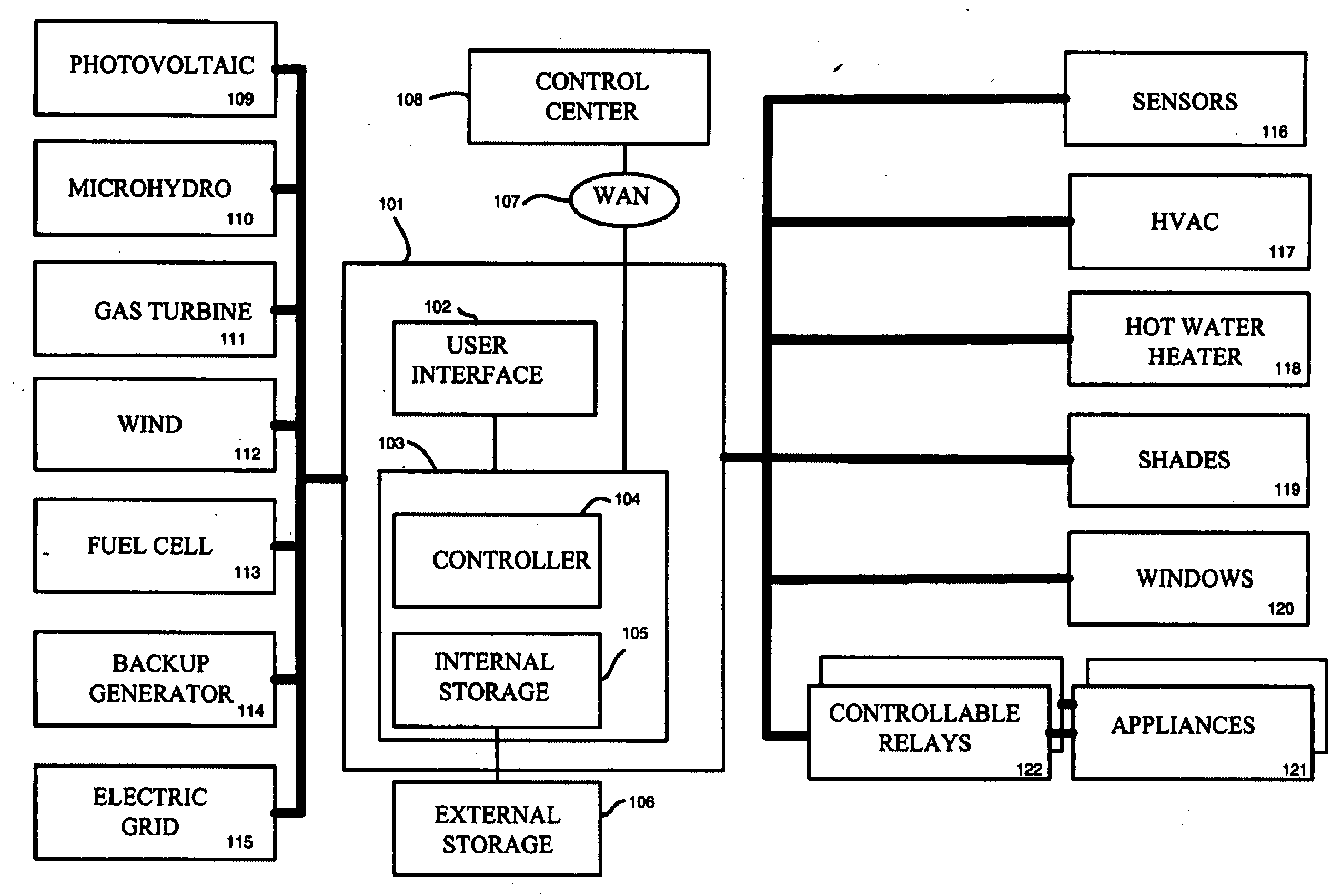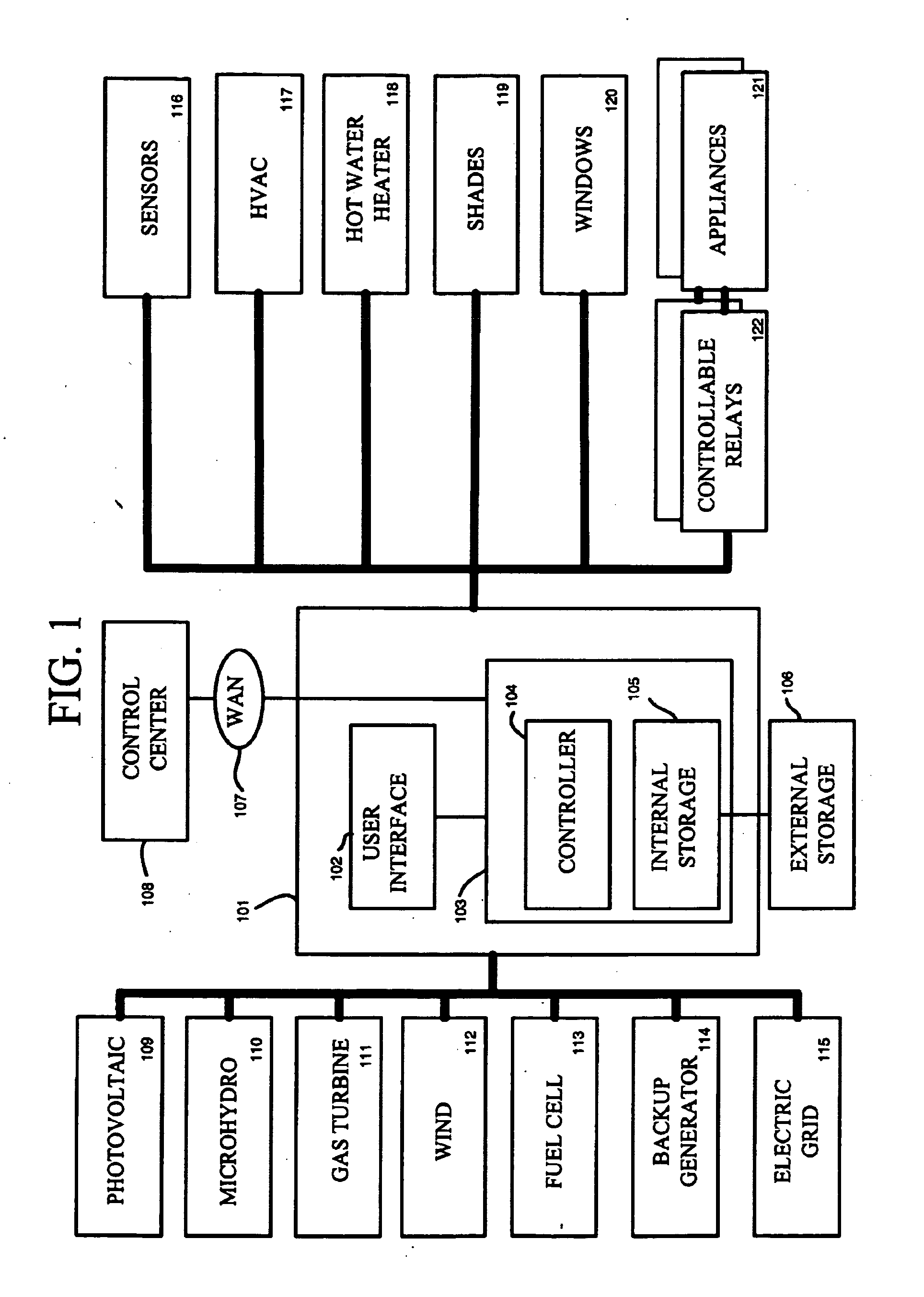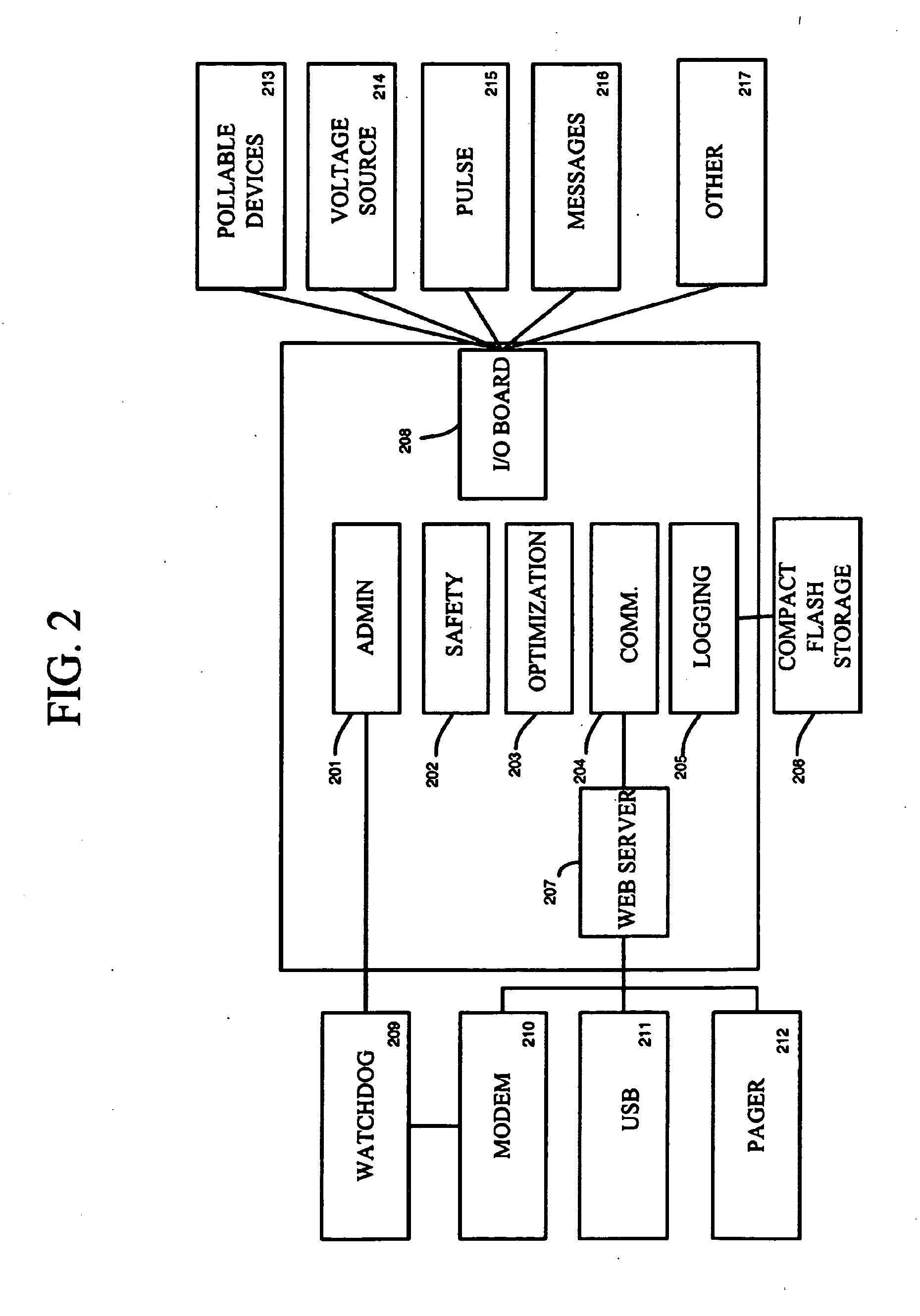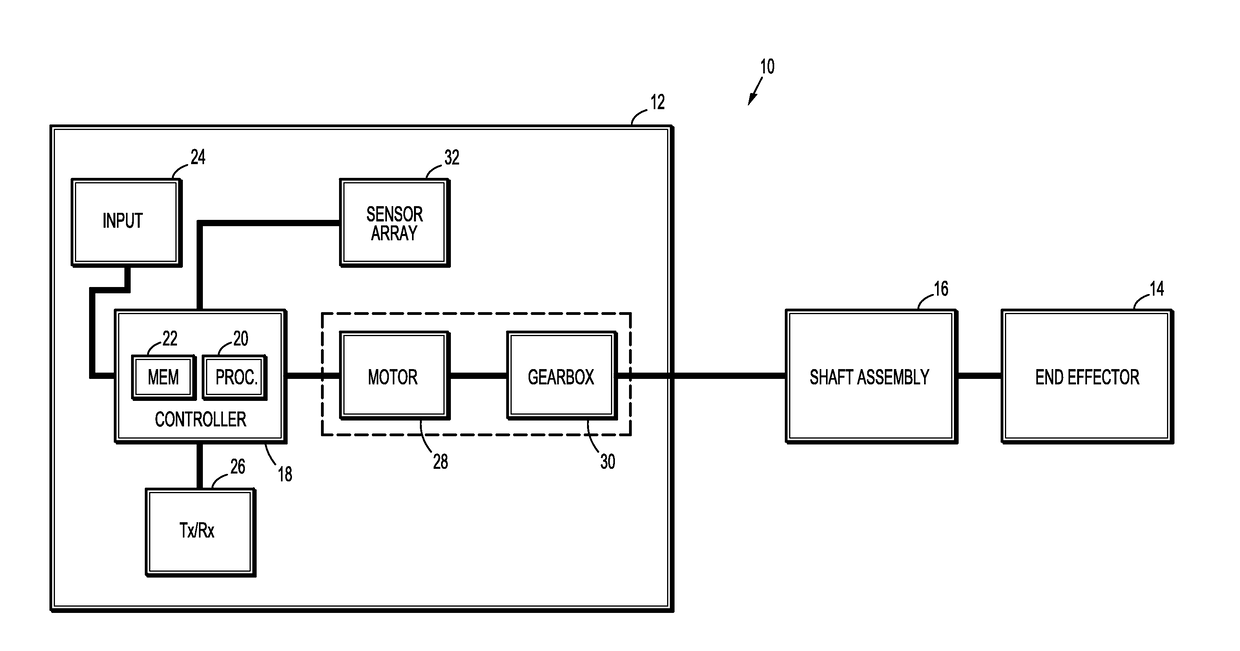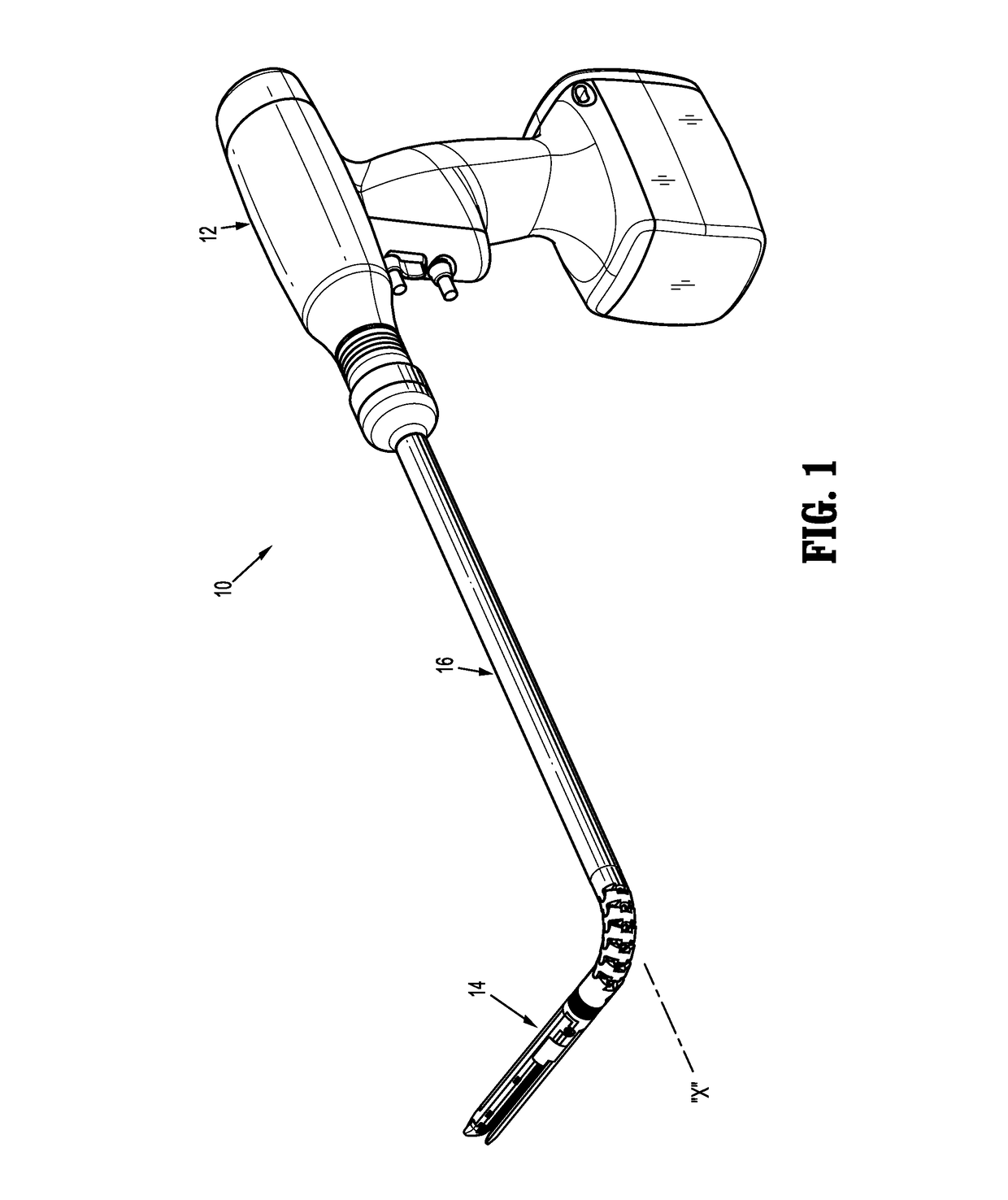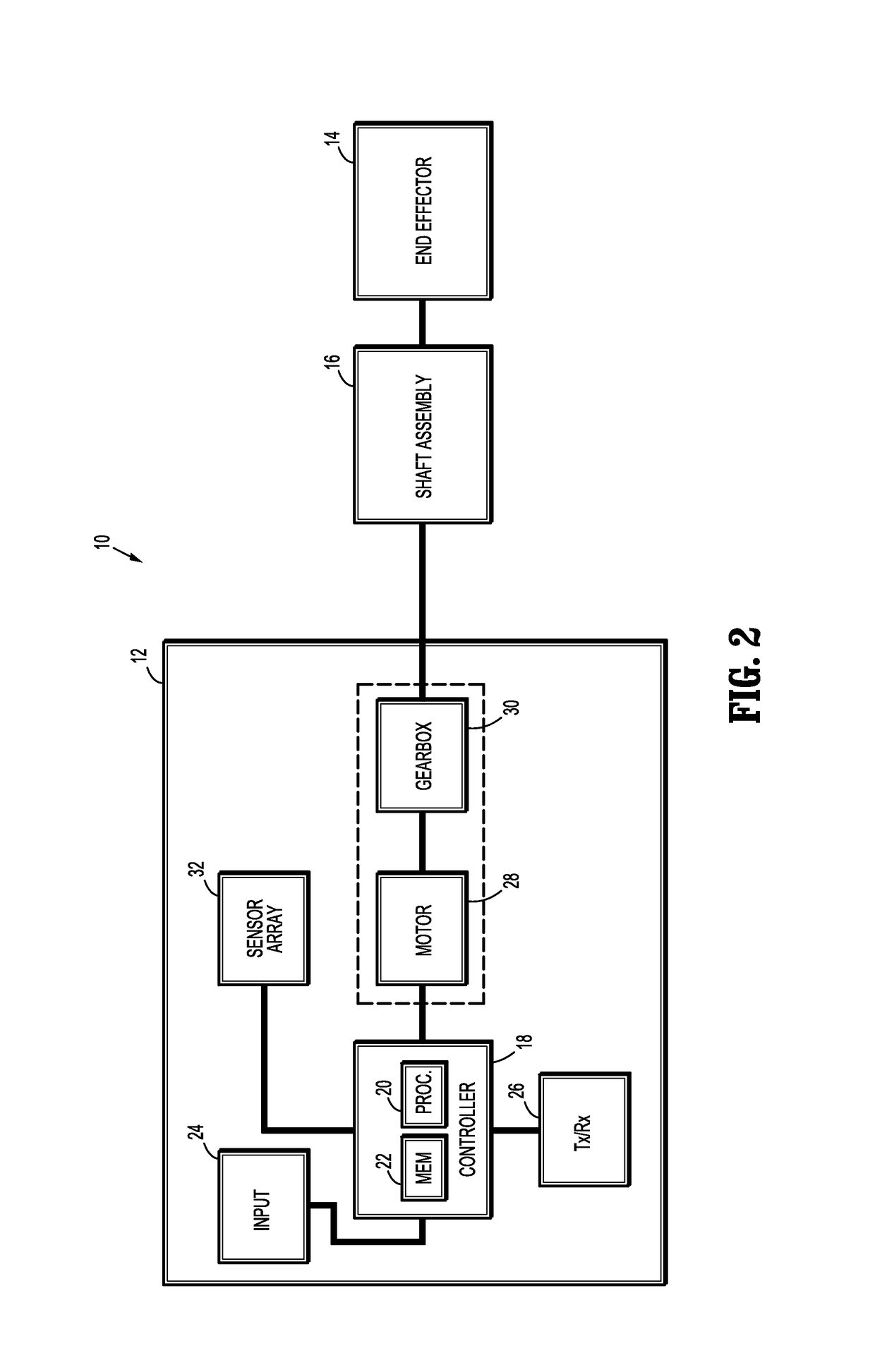Patents
Literature
82426results about "Computer control" patented technology
Efficacy Topic
Property
Owner
Technical Advancement
Application Domain
Technology Topic
Technology Field Word
Patent Country/Region
Patent Type
Patent Status
Application Year
Inventor
Adaptive pattern recognition based control system and method
InactiveUS6400996B1Minimize timeEasy to implementError preventionFrequency-division multiplex detailsData streamSmart house
An adaptive interface for a programmable system, for predicting a desired user function, based on user history, as well as machine internal status and context. The apparatus receives an input from the user and other data. A predicted input is presented for confirmation by the user, and the predictive mechanism is updated based on this feedback. Also provided is a pattern recognition system for a multimedia device, wherein a user input is matched to a video stream on a conceptual basis, allowing inexact programming of a multimedia device. The system analyzes a data stream for correspondence with a data pattern for processing and storage. The data stream is subjected to adaptive pattern recognition to extract features of interest to provide a highly compressed representation that may be efficiently processed to determine correspondence. Applications of the interface and system include a video cassette recorder (VCR), medical device, vehicle control system, audio device, environmental control system, securities trading terminal, and smart house. The system optionally includes an actuator for effecting the environment of operation, allowing closed-loop feedback operation and automated learning.
Owner:BLANDING HOVENWEEP
Manipulator
A manipulator comprises an operation command unit provided with an attitude adjusting unit and an end effector control unit, a connecting unit having one end connected to the operation command unit, a working unit connected to the other end of the connecting unit and provided with an end effector and a support unit supporting the end effector for motions, and a control unit that transmits an operation command provided by the attitude adjusting unit to the support unit to adjust the attitude of the end effector and transmits an operation command provided by the end effector control unit to the end effector to operate the end effector. The support unit includes a first joint capable of turning about a first axis perpendicular to the center axis of the connecting unit, and a second joint capable of turning about a second axis perpendicular to the first axis. The end effector can be turned for rolling about an axis substantially parallel to the second axis of the second joint. The attitude adjusting unit has a third joint having a third axis perpendicular to the center line of the connecting unit. The end effector control unit is formed such that the fingers of an operator gripping operating members included in the end effector control unit extend substantially in parallel to the fourth axis.
Owner:KARL STORZ GMBH & CO KG
Microsurgical robot system
ActiveUS7155316B2Minimize patient riskComplete efficientlyProgramme-controlled manipulatorEndoscopesMicroscopic observationDisplay device
A robot system for use in surgical procedures has two movable arms each carried on a wheeled base with each arm having a six of degrees of freedom of movement and an end effector which can be rolled about its axis and an actuator which can slide along the axis for operating different tools adapted to be supported by the effector. Each end effector including optical force sensors for detecting forces applied to the tool by engagement with the part of the patient. A microscope is located at a position for viewing the part of the patient. The position of the tool tip can be digitized relative to fiducial markers visible in an MRI experiment. The workstation and control system has a pair of hand-controllers simultaneously manipulated by an operator to control movement of a respective one or both of the arms. The image from the microscope is displayed on a monitor in 2D and stereoscopically on a microscope viewer. A second MRI display shows an image of the part of the patient the real-time location of the tool. The robot is MRI compatible and can be configured to operate within a closed magnet bore. The arms are driven about vertical and horizontal axes by piezoelectric motors.
Owner:DEERFIELD IMAGING INC
Methods and systems for robotic instrument tool tracking with adaptive fusion of kinematics information and image information
Owner:INTUITIVE SURGICAL OPERATIONS INC
Tool grip calibration for robotic surgery
ActiveUS7386365B2Limited tool lifeStringent manufacturing toleranceProgramme-controlled manipulatorDiagnosticsEngineeringActuator
Telerobotic, telesurgical, and surgical robotic devices, systems, and methods selectively calibrate end effector jaws by bringing the jaw elements into engagement with each other. Commanded torque signals may bring the end effector elements into engagement while monitoring the resulting position of a drive system, optionally using a second derivative of the torque / position relationship so as to identify an end effector engagement position. Calibration can allow the end effector engagement position to correspond to a nominal closed position of an input handle by compensating for wear on the end effector, the end effector drive system, then manipulator, the manipulator drive system, the manipulator / end effector interfacing, and manufacturing tolerances.
Owner:INTUITIVE SURGICAL OPERATIONS INC
Robot for surgical applications
The present invention provides a micro-robot for use inside the body during minimally-invasive surgery. The micro-robot includes an imaging devices, a manipulator, and in some embodiments a sensor.
Owner:BOARD OF RGT UNIV OF NEBRASKA
Adaptable integrated energy control system for electrosurgical tools in robotic surgical systems
A method for a minimally invasive surgical system is disclosed including reading first tool information from a storage device in a first robotic surgical tool mounted to a first robotic arm to at least determine a first tool type; reading equipment information about one or more remote controlled equipment for control thereof; comparing the first tool information with the equipment information to appropriately match a first remote controlled equipment of the one or more remote controlled equipment to the first robotic surgical tool; and mapping one or more user interface input devices of a first control console to control the first remote controlled equipment to support a function of the first robotic surgical tool.
Owner:INTUITIVE SURGICAL OPERATIONS INC
Medical manipulator and method of controlling the same
InactiveUS6853879B2Easy to operateWithout spoiling safetyProgramme-controlled manipulatorDigital data processing detailsOperabilityOperation mode
A medical master / slave manipulator is excellent in operability and capable of reducing burden on the operator. The medical master / slave manipulator includes a master unit provided with an operation control portion, a slave unit provided with a working device, an interlocking mechanism interlocking the slave unit with the master unit, an orientation difference measuring mechanism for measuring the orientation difference between the orientation of the master unit and that of the slave unit, and a control mechanism for controlling the slave unit to adjust the orientation of the slave unit to that of the master unit so that the orientation difference is reduced to zero in a transient master / slave operation mode in which an operation mode changes from an unrestricted operation mode to a master / slave operation mode.
Owner:TERUMO KK
Positive control of robotic surgical instrument end effector
A method of controlling an operation of a robotically-controlled surgical instrument can include receiving a first input signal at a controller indicative of a user's readiness to actuate the surgical instrument to perform a surgical procedure, outputting an output signal from the controller to provide feedback to the user in response to the received first input signal, receiving a second input signal at the controller confirming the user's readiness to actuate the surgical instrument, outputting an actuation signal from the controller in response to receiving the second input signal, and actuating the surgical instrument to perform the surgical procedure based on the actuation signal.
Owner:INTUITIVE SURGICAL OPERATIONS INC
Autofocus and/or autoscaling in telesurgery
ActiveUS8079950B2Enhance perceived correlationComputer controlSimulator controlRemote surgeryComputer graphics (images)
Robotic, telerobotic, and / or telesurgical devices, systems, and methods take advantage of robotic structures and data to calculate changes in the focus of an image capture device in response to movement of the image capture device, a robotic end effector, or the like. As the size of an image of an object shown in the display device varies with changes in a separation distance between that object and the image capture device used to capture the image, a scale factor between a movement command input may be changed in response to moving an input device or a corresponding master / slave robotic movement command of the system. This may enhance the perceived correlation between the input commands and the robotic movements as they appear in the image presented to the system operator.
Owner:INTUITIVE SURGICAL OPERATIONS INC
Maximum torque driving of robotic surgical tools in robotic surgical systems
ActiveUS9002518B2Programme-controlled manipulatorMechanical/radiation/invasive therapiesMaximum torqueMotor drive
In one embodiment of the invention, a control system for a robotic surgical instrument is provided including a torque saturation limiter, a torque to current converter coupled to the torque saturation limiter, and a motor coupled to the torque to current converter. The torque saturation limiter receives a desired torque signal for one or more end effectors and limits the desired torque to a range between an upper torque limit and a lower torque limit generating a bounded torque signal. The torque to current converter transforms a torque signal into a current signal. The motor drives an end effector of one or more end effectors to the bounded torque signal in response to the first current signal.
Owner:INTUITIVE SURGICAL OPERATIONS INC
Media recording device with remote graphic user interface
InactiveUS7006881B1Minimize timeTelevision system detailsAnalogue secracy/subscription systemsGraphicsGraphical user interface
An apparatus for processing digital media signals, comprising a digital processor for controlling the apparatus; a graphic user interface, having a wireless remote control providing a command input to the processor; a network interface for transmitting digital information from the processor to a remote location over a communications network, the information identifying a digital media signal for desired reproduction based, at least in part, on an input received from the remote control; and an output, controlled by, and local to, the processor, for transferring the desired digital media signals for reproduction thereof.
Owner:BLANDING HOVENWEEP
Surgical instrument with rapid post event detection
A surgical instrument is disclosed, the instrument including: a handle assembly; a jaw assembly including a staple cartridge containing a plurality of staples and an anvil to form the plurality of staples upon firing; a lockout mechanism configured to prevent reuse of the jaw assembly; a drive assembly at least partially located within the handle and connected to the jaw assembly; a motor operatively coupled to the drive assembly; and a controller operatively coupled to the motor, the controller configured to control supply of electrical current to the motor and to monitor a current draw of the motor, wherein the controller is further configured to terminate the supply of electrical current to the motor in response to a drop in the current draw.
Owner:TYCO HEALTHCARE GRP LP
Telepresence robot with a camera boom
A remote controlled robot with a head that supports a monitor and is coupled to a mobile platform. The mobile robot also includes an auxiliary camera coupled to the mobile platform by a boom. The mobile robot is controlled by a remote control station. By way of example, the robot can be remotely moved about an operating room. The auxiliary camera extends from the boom so that it provides a relatively close view of a patient or other item in the room. An assistant in the operating room may move the boom and the camera. The boom may be connected to a robot head that can be remotely moved by the remote control station.
Owner:TELADOC HEALTH INC +1
Manipulator and its control apparatus and method
ActiveUS6993413B2Improve controllabilityImprove securityProgramme-controlled manipulatorGripping headsWork unitManipulator
A manipulator operative in a master / slave operative mode, comprising: a master unit commanding an operation; a slave unit having a work unit; a detector detecting the orientation of the master unit and the orientation of the slave unit; and a control device controlling the slave unit in response to the command from the master unit, wherein the control device includes: a function of determining a non-mater / slave operative mode or a master / slave operative mode; a function of calculating a difference between the orientation of the master unit and the orientationof the slave unit; and a function of comparing the absolute value of the difference with a preset reference value; and depending upon the result of the comparison, determining a normal master / slave operative mode or a transitional master / slave operative mode, in the master / slave operative mode, the transitional master / slave operative mode is a transitional mode from the non-master / slave operative mode to the master / slave operative mode.
Owner:TERUMO KK
Medical robotic system adapted to inhibit motions resulting in excessive end effector forces
ActiveUS7843158B2Reduce the average velocityProgramme-controlled manipulatorSafety arrangmentsRobotic armEngineering
A medical robotic system includes a surgical instrument, a robotic arm assembly, an input device, and a processor. The surgical instrument has an end effector and a sensor for sensing a force exerted by the end effector, and is operatively mounted on the robotic arm assembly. The processor is configured to receive commanded movement of the end effector from the input device, receive information of the force from the sensor, determine a reduced velocity of the commanded movement that would inhibit damage causing motion of the end effector, and control robotic manipulation of the surgical instrument in response to the commanded movement of the end effector while restricting the velocity of the commanded movement to the reduced velocity.
Owner:INTUITIVE SURGICAL OPERATIONS INC
Manipulator and its control apparatus and method
ActiveUS7295893B2Improve safety and controllabilityProgramme-controlled manipulatorComputer controlEngineeringWork unit
A manipulator operative in a master / slave operative mode includes a master unit commanding an operation; a slave unit having a work unit; a detector detecting the orientation of the master unit and the orientation of the slave unit; and a control device controlling the slave unit in response to a command from the master unit. The control device determines a non-master / slave operative mode or a master / slave operative mode, and calculates a difference between the orientation of the master unit and the orientation of the slave unit. The absolute value of the calculated difference is compared with a preset reference value, and depending upon the result of the comparison, a normal master / slave operative mode or a transitional master / slave operative mode is determined, wherein in the master / slave operative mode, the transitional master / slave operative mode is a transitional mode from the non-master / slave operative mode to the master / slave operative mode.
Owner:TERUMO KK
Methods and systems for indicating a clamping prediction
ActiveUS8989903B2Reduce the amount requiredReduce bleeding during staplingProgramme-controlled manipulatorDiagnosticsUser interfaceBody tissue
Owner:INTUITIVE SURGICAL OPERATIONS INC
Contextual responses based on automated learning techniques
InactiveUS6842877B2Input/output for user-computer interactionComputer security arrangementsRepetitive taskUser interface
Techniques are disclosed for using a combination of explicit and implicit user context modeling techniques to identify and provide appropriate computer actions based on a current context, and to continuously improve the providing of such computer actions. The appropriate computer actions include presentation of appropriate content and functionality. Feedback paths can be used to assist automated machine learning in detecting patterns and generating inferred rules, and improvements from the generated rules can be implemented with or without direct user control. The techniques can be used to enhance software and device functionality, including self-customizing of a model of the user's current context or situation, customizing received themes, predicting appropriate content for presentation or retrieval, self-customizing of software user interfaces, simplifying repetitive tasks or situations, and mentoring of the user to promote desired change.
Owner:MICROSOFT TECH LICENSING LLC
Ergonomic man-machine interface incorporating adaptive pattern recognition based control system
InactiveUS6081750ADecrease productivityImprove the environmentComputer controlSimulator controlHuman–machine interfaceData stream
An adaptive interface for a programmable system, for predicting a desired user function, based on user history, as well as machine internal status and context. The apparatus receives an input from the user and other data. A predicted input is presented for confirmation by the user, and the predictive mechanism is updated based on this feedback. Also provided is a pattern recognition system for a multimedia device, wherein a user input is matched to a video stream on a conceptual basis, allowing inexact programming of a multimedia device. The system analyzes a data stream for correspondence with a data pattern for processing and storage. The data stream is subjected to adaptive pattern recognition to extract features of interest to provide a highly compressed representation which may be efficiently processed to determine correspondence. Applications of the interface and system include a VCR, medical device, vehicle control system, audio device, environmental control system, securities trading terminal, and smart house. The system optionally includes an actuator for effecting the environment of operation, allowing closed-loop feedback operation and automated learning.
Owner:BLANDING HOVENWEEP
Method and apparatus for improved building automation
InactiveUS6192282B1Large modularityCommunicationMechanical power/torque controlElectric signal transmission systemsModularityEngineering
An improved building automation system is provided which is modular in design thus minimizing the amount of instruction necessary to affect control of a particular building system. A relatively small set of interprocess control commands define an interprocess control protocol which is utilized in relatively high level scripts and control applications. The improved building automation system operates to translate control instructions in one particular control protocol to control instructions in a second control protocol. A text parsing program routes interprocess communication commands between modular communication programs to affect control over the automated building systems. The text parsing program includes executable instructions which allow for conditional communication of interprocess control commands depending upon system events.
Owner:INTELIHOME +2
Medical manipulator
ActiveUS8154239B2Improve reliabilityAccurately respondProgramme-controlled manipulatorComputer controlEngineeringActuator
A medical manipulator includes an actuator block having a motor, a coupler detachably mounted on the actuator block and having a rotor connected to a rotatable shaft of the motor, a distal-end working unit mounted on a distal end of a joint shaft, which extends from the coupler and is operatively connected to the rotor by a wire, an encoder for detecting an angular displacement of the motor, and a controller for reading a signal from the encoder and comparing the read signal with an operation command value for energizing the motor through a feedback loop. The controller outputs a signal having a level greater than the resolution of the encoder and a lower operation limit of the motor within a range in which the distal-end working unit remains still, and monitors the angular displacement of the motor for thereby determining whether the feedback loop is malfunctioning or not.
Owner:KARL STORZ GMBH & CO KG
Parallel measurement alarm processor
InactiveUS7030749B2Waste caregiver resourcesReduce false alarm rateComputer controlResistance/reactance/impedenceNormal rangeComputer science
An alarm processor suppresses alarms when a physiological parameter is below a predetermined value but recovering toward a normal range.
Owner:JPMORGAN CHASE BANK NA
Devices and techniques for cutting and coagulating tissue
Various embodiments are directed to an apparatus and method of driving an end effector coupled to an ultrasonic drive system of a surgical instrument. The method comprises generating at least one electrical signal. The at least one electrical signal is monitored against a first set of logic conditions.
Owner:CILAG GMBH INT
Surgical manipulator
The present invention provides a surgical manipulator including a manipulator arm, an end-effector held by the robotic arm, surgical tools held by the end-effector and manipulator joints, particularly right-angle drive devices for transmitting rotational motion in one axis to a perpendicular axis.
Owner:MACDONALD DETTWILER & ASSOC INC
Method for tracking and reporting usage events to determine when preventive maintenance is due for a medical robotic system
A medical robotic system comprises a number of components that may be monitored to determine their preventive maintenance needs by recording usage-related information for the monitored components into associated non-volatile memories. When usage of the component exceeds a specified usage threshold, the system displays a warning message on its display screen to have preventive maintenance performed for the component. If the usage continues without such maintenance and exceeds a higher usage threshold, the system displays an error message on its display screen and the system transitions into an error state during which medical procedures are not allowed to be performed. The usage-related information may also be communicated to a remote computer which gathers and processes usage-related information from a number of medical robotic systems to estimate resource requirements for timely performing preventive maintenance on the medical robotic systems, and anticipated service revenues from such maintenance.
Owner:INTUITIVE SURGICAL OPERATIONS INC
Position feedback system and method for use thereof
InactiveUS6625517B1Solid-state devicesSpecial data processing applicationsEngineeringVirtual sensors
The present invention is directed to a machine with a position feedback system and a method for use thereof. The machine includes at least one movable element mounted for movement on a path and at least one programmable controller. The machine further includes at least two absolute or magnetostrictive sensors or the machine includes an absolute sensor and a non-absolute sensor. The programmable controller uses positional information from the sensors to determine the position of the movable elements on the path and control the movable elements. The method includes determining a known position for the movable elements, linking at least two magnetostrictive sensors into one virtual sensor, and / or performing commutation alignment for the movable elements. Determining the position and commutation alignment can occur when the movable elements are stationary or moving.
Owner:TETRA LAVAL HLDG & FINANCE SA
Optimized energy management system
Methods and systems are provided for optimizing the control of energy supply and demand. An energy control unit includes one or more algorithms for scheduling the control of energy consumption devices on the basis of variables relating to forecast energy supply and demand. Devices for which energy consumption can be scheduled or deferred are activated during periods of cheapest energy usage. Battery storage and alternative energy sources (e.g., photovoltaic cells) are activated to sell energy to the power grid during periods that are determined to correspond to favorable cost conditions.
Owner:GRIDPOINT
Systems and methods for determining an end of life state for surgical devices
The present disclosure is directed to systems and methods for determining an end of life state for an electromechanical surgical system. The system includes an end effector configured to perform at least one function and a shaft assembly being arranged for selectively interconnecting the end effector and a hand-held surgical instrument. The hand-held surgical instrument includes an instrument housing defining a connecting portion for selectively connecting with the shaft assembly. The hand-held surgical instrument also includes a motor assembly, a sensor array configured to obtain an operational parameter of the hand-held surgical instrument, and a controller configured to control operation of the hand-held surgical instrument based on the operational parameter obtained by the sensor array.
Owner:TYCO HEALTHCARE GRP LP
Popular searches
Character and pattern recognition Multiprogramming arrangements Multiple digital computer combinations Programme control in sequence/logic controllers Recording and playback systems Transmission systems Error detection/correction Time-division multiplex Electric controllers Ignition automatic control
Features
- R&D
- Intellectual Property
- Life Sciences
- Materials
- Tech Scout
Why Patsnap Eureka
- Unparalleled Data Quality
- Higher Quality Content
- 60% Fewer Hallucinations
Social media
Patsnap Eureka Blog
Learn More Browse by: Latest US Patents, China's latest patents, Technical Efficacy Thesaurus, Application Domain, Technology Topic, Popular Technical Reports.
© 2025 PatSnap. All rights reserved.Legal|Privacy policy|Modern Slavery Act Transparency Statement|Sitemap|About US| Contact US: help@patsnap.com
